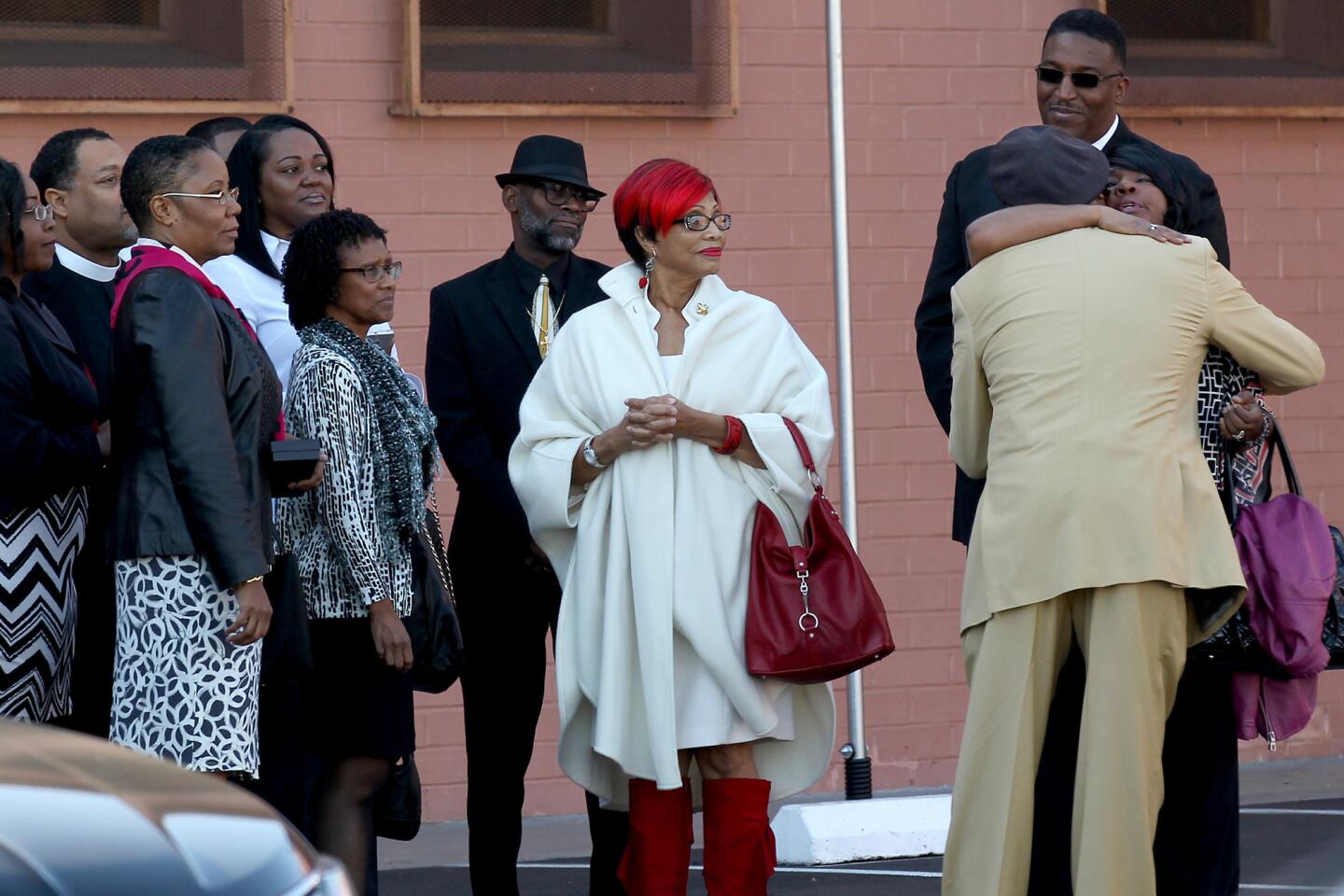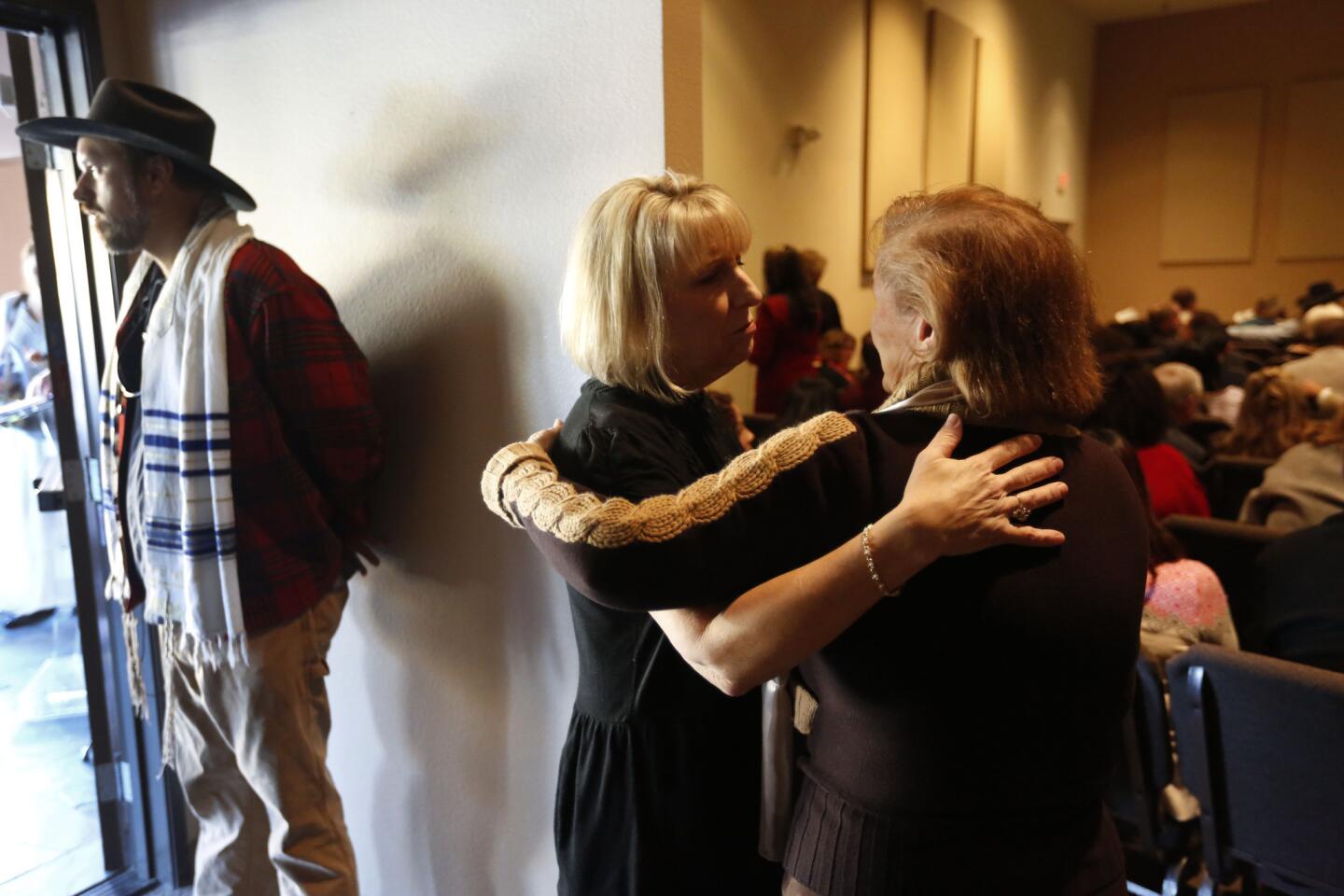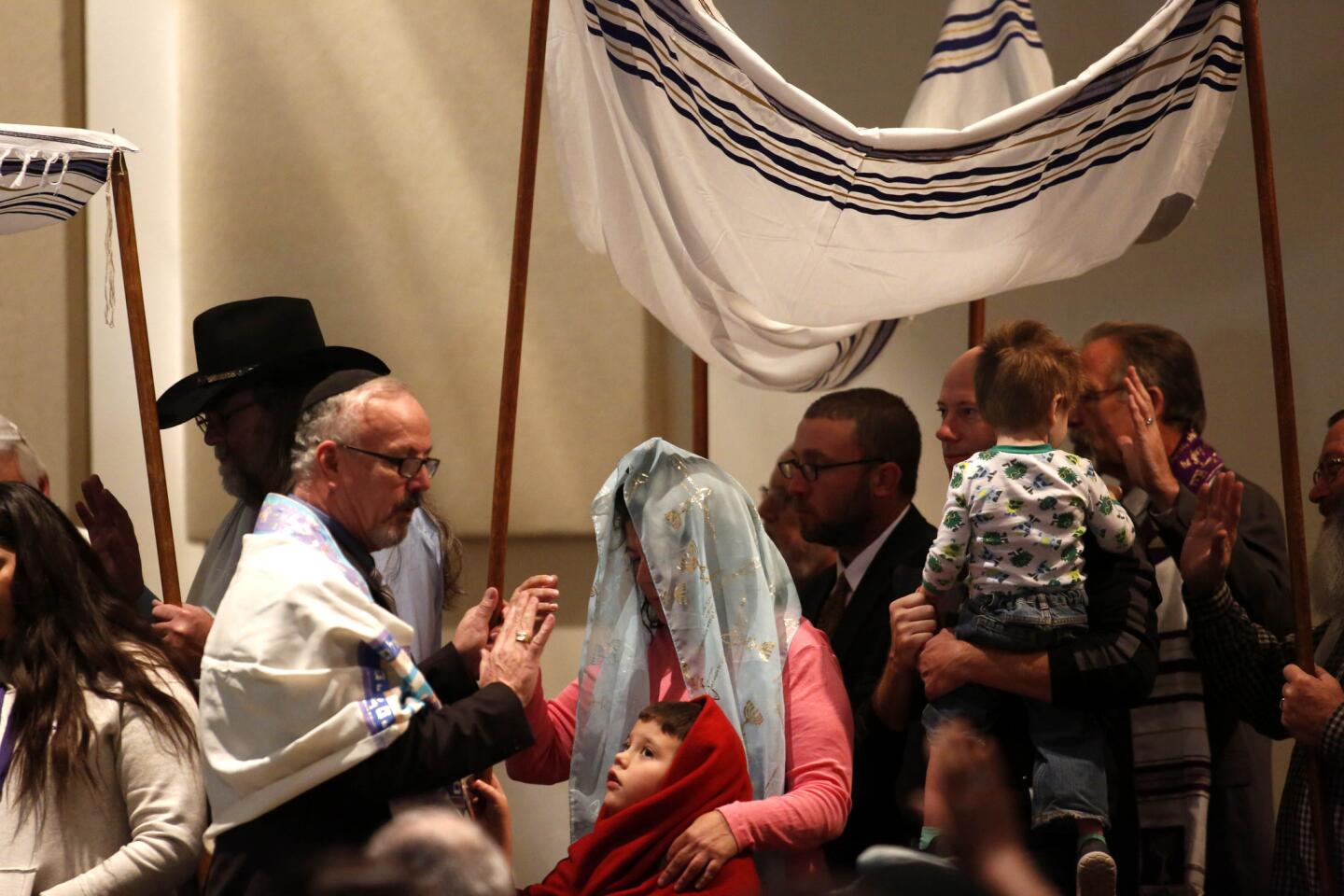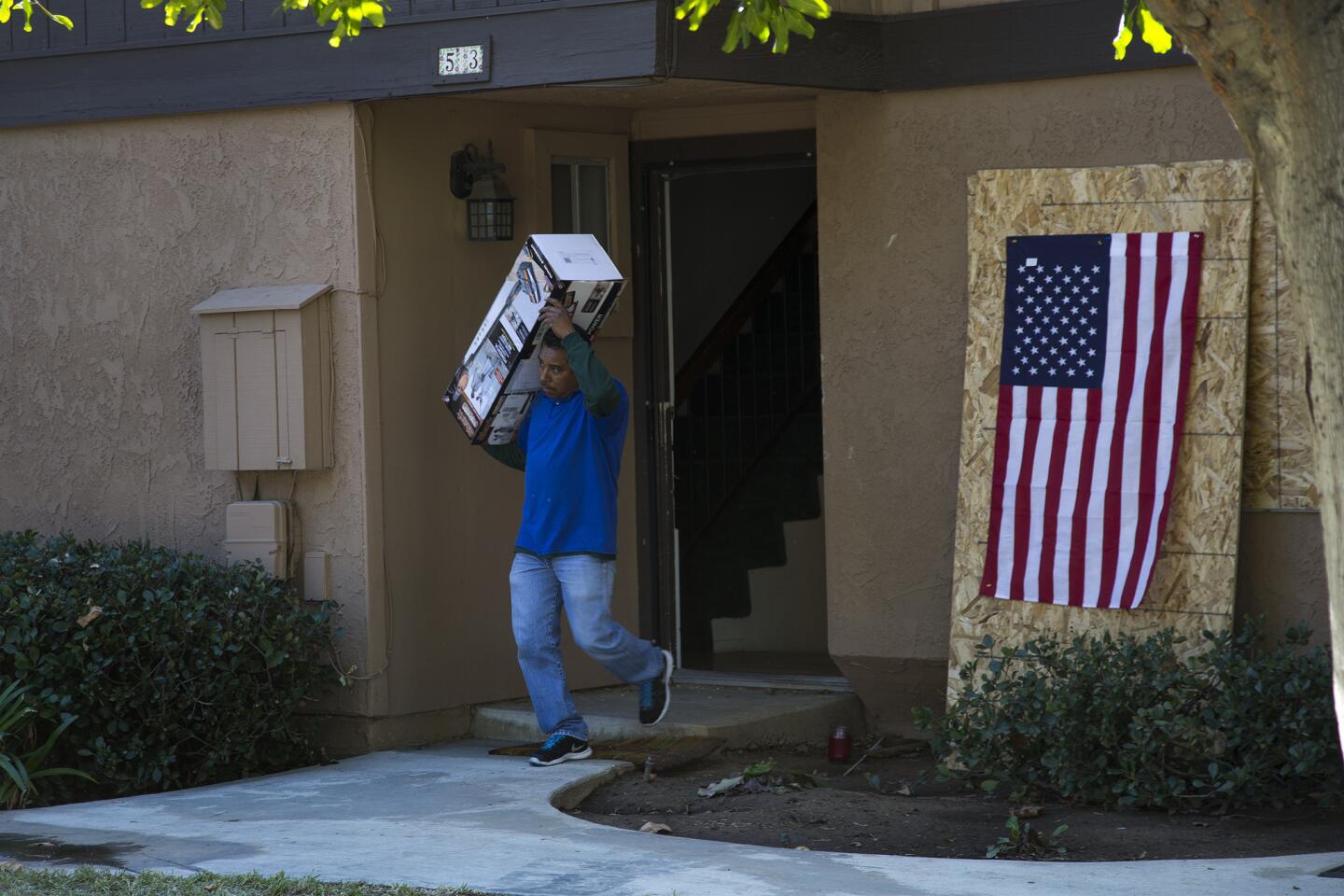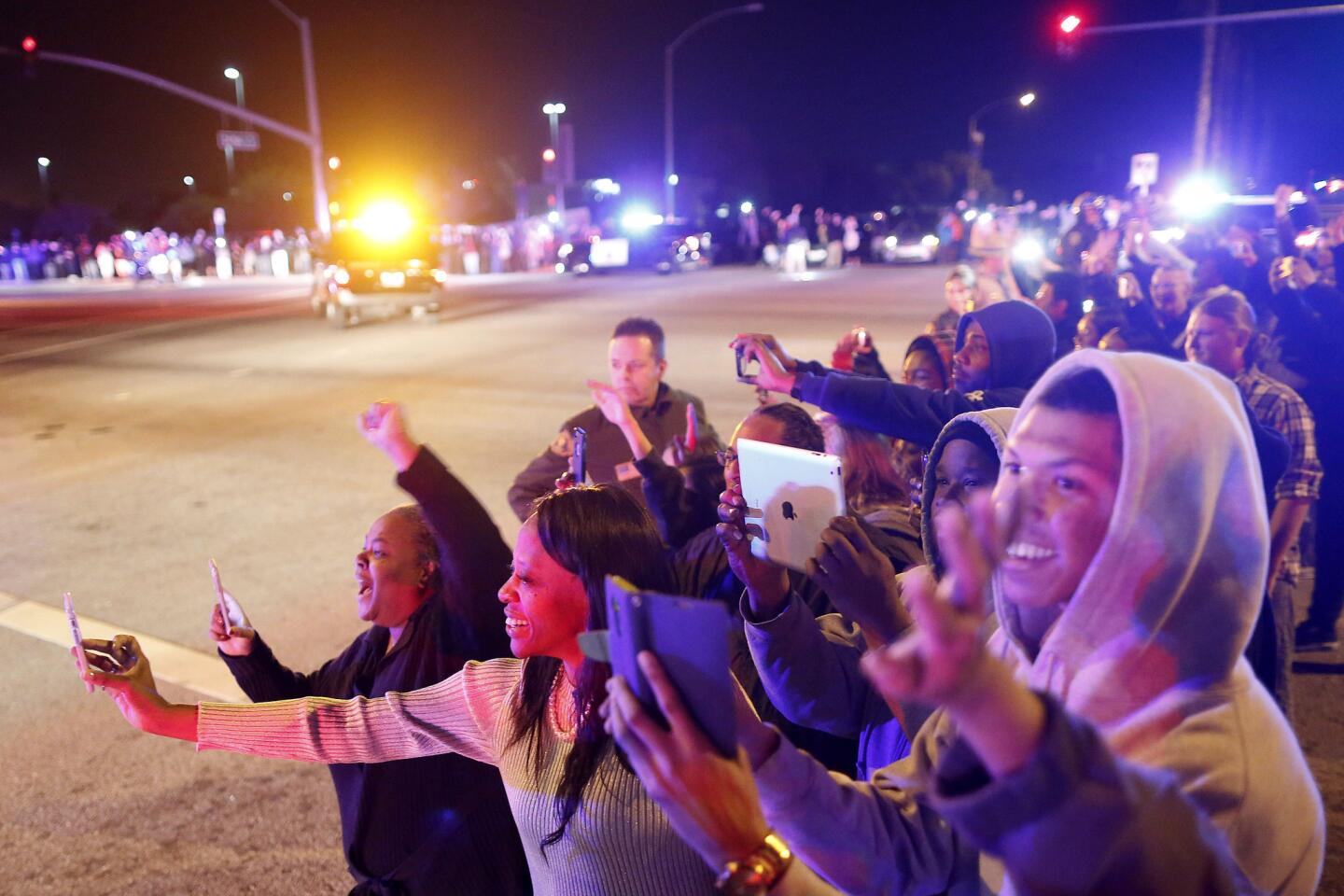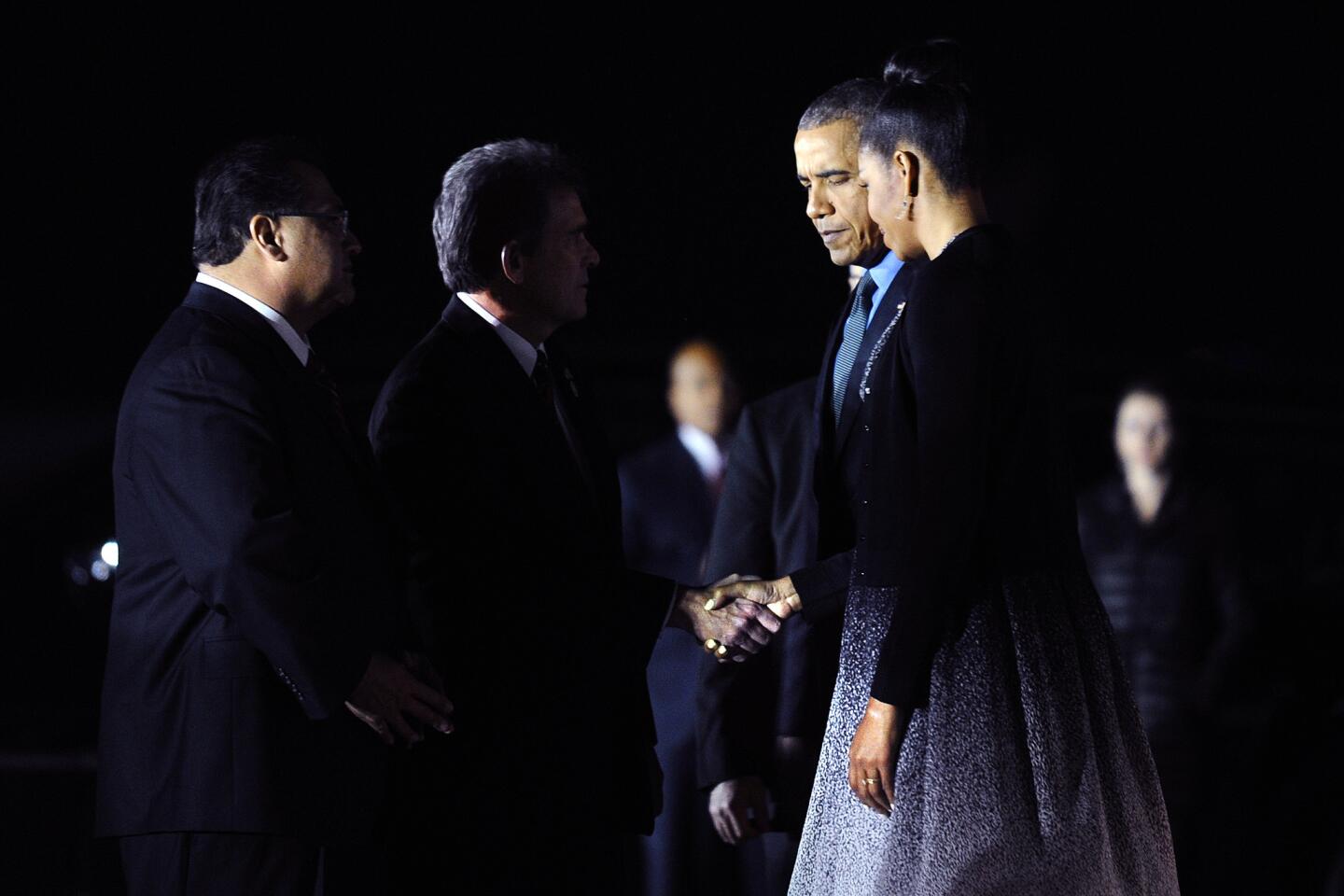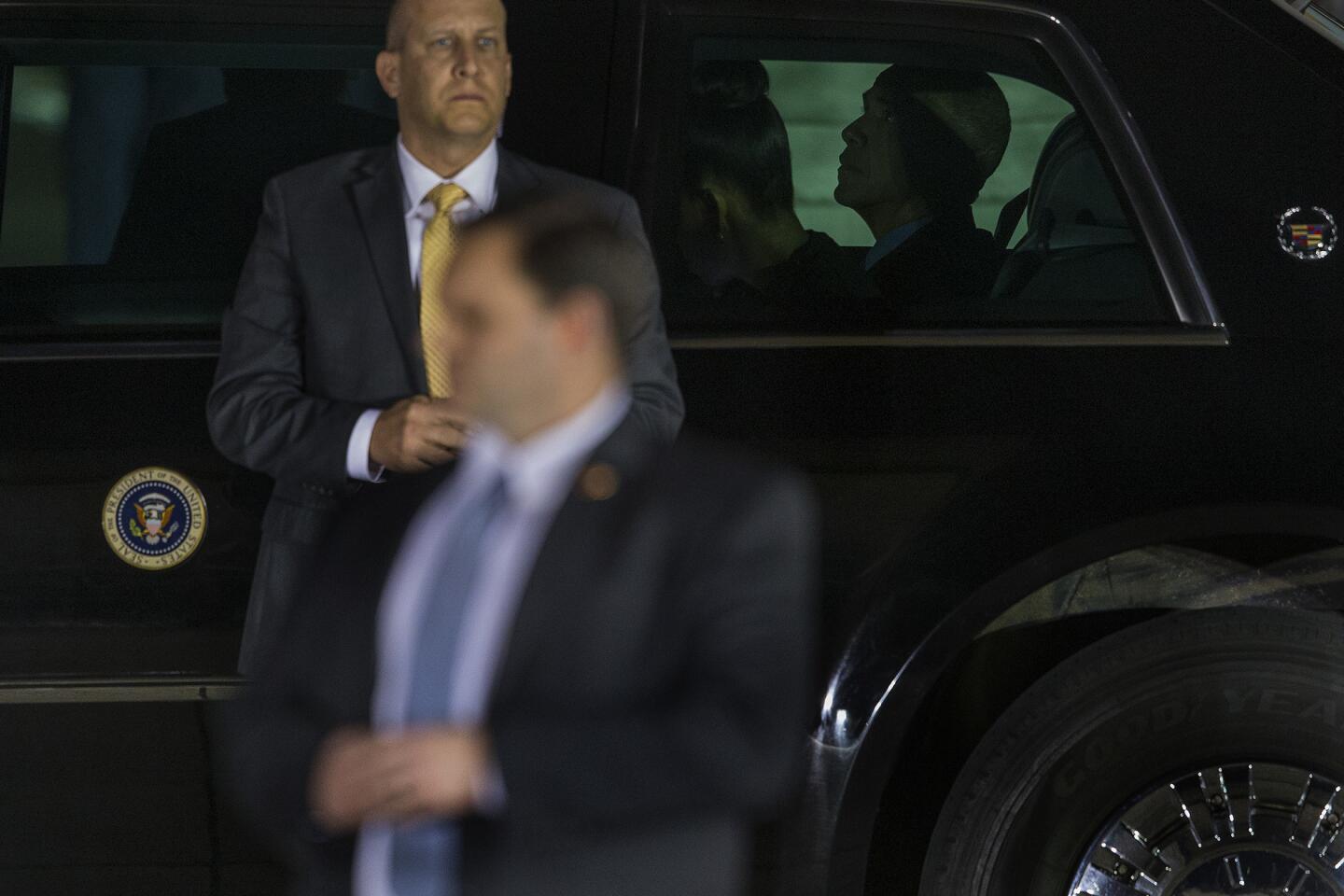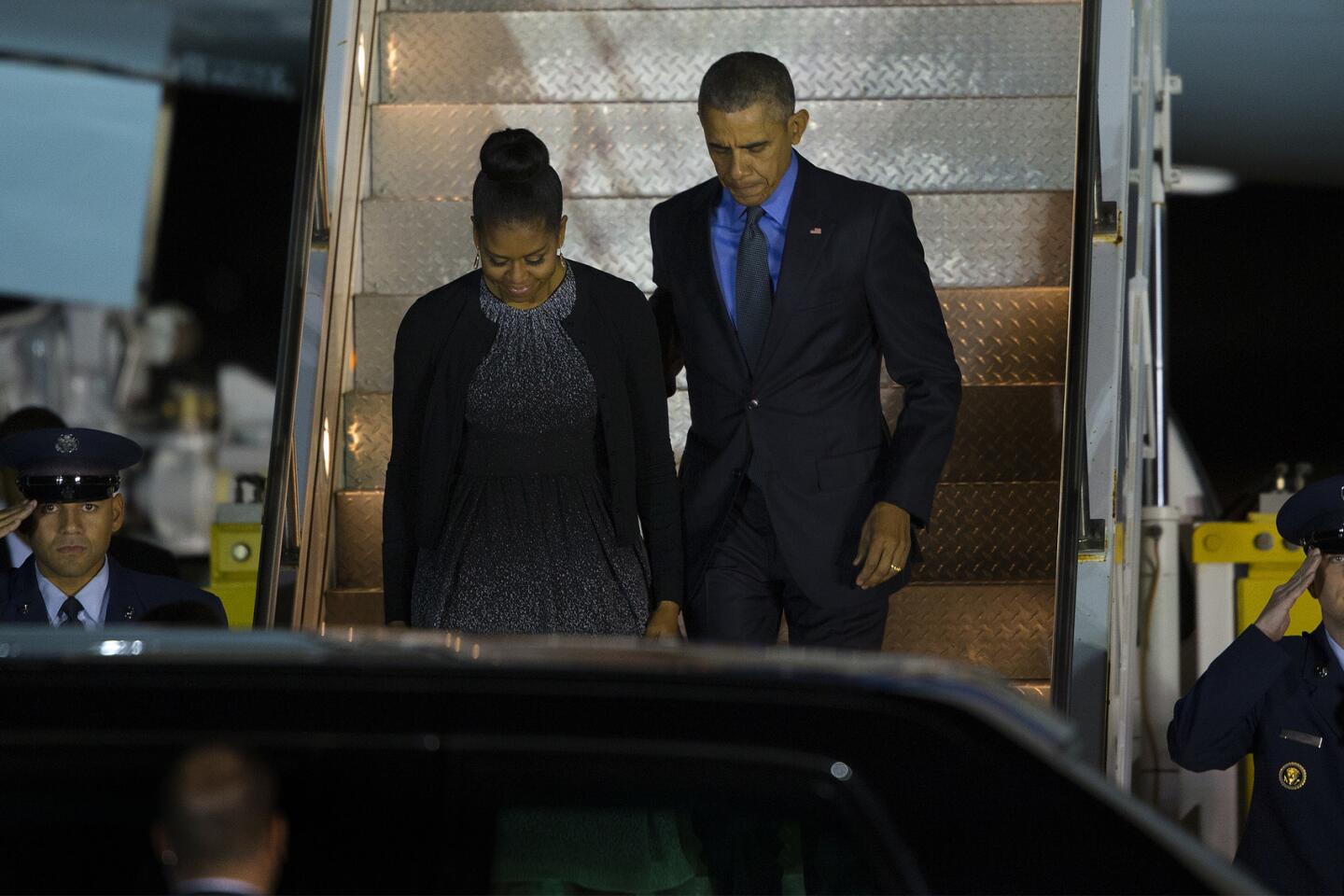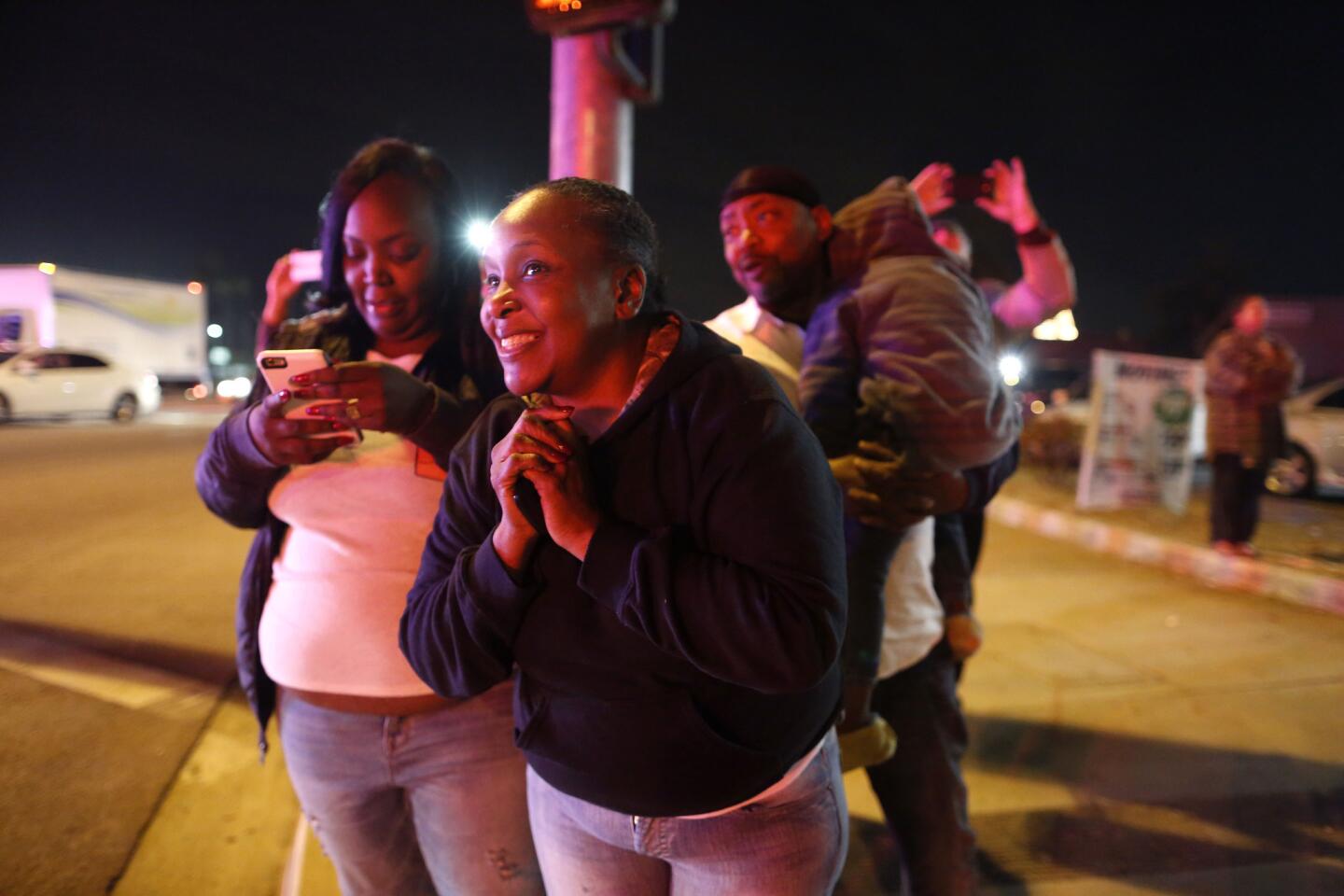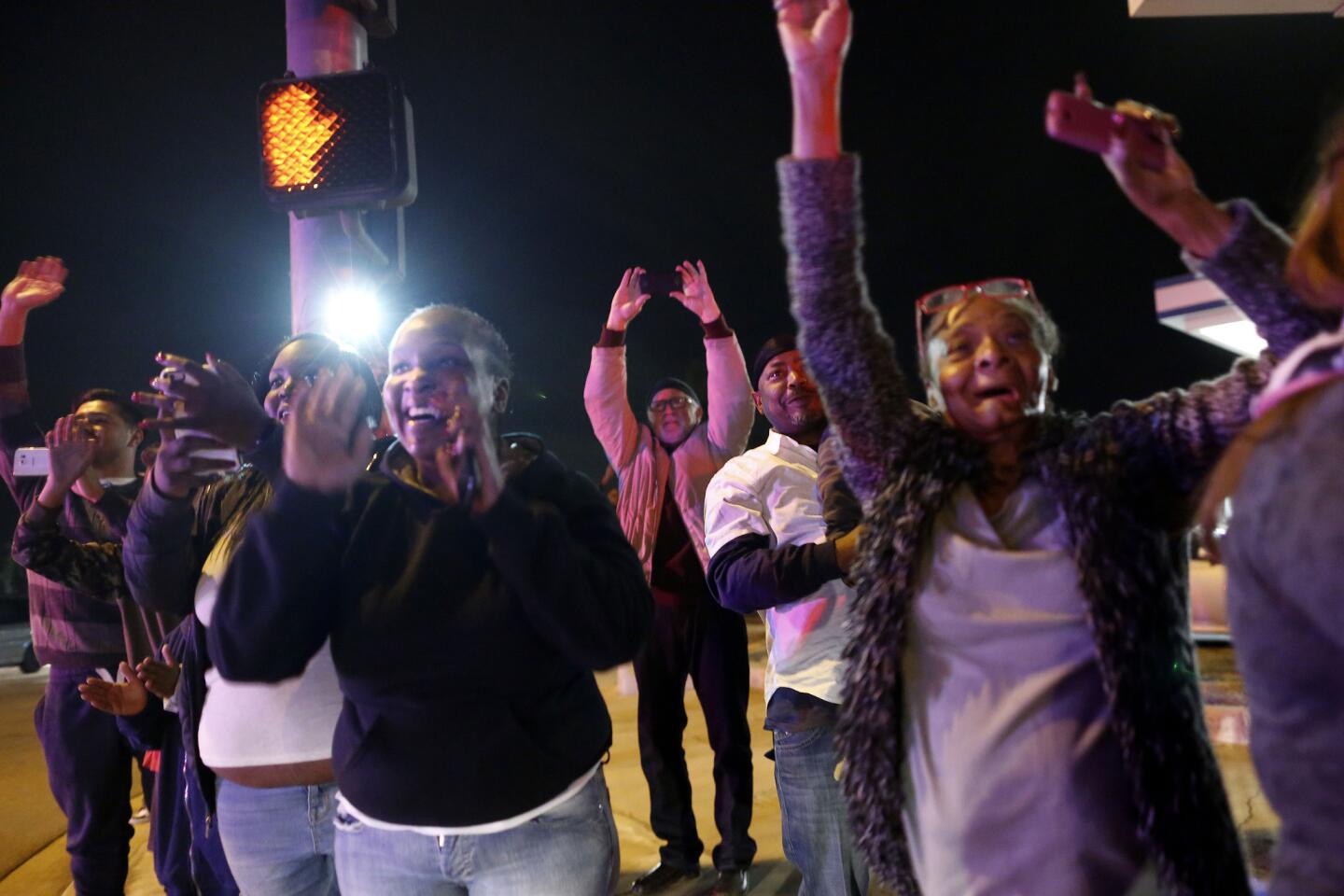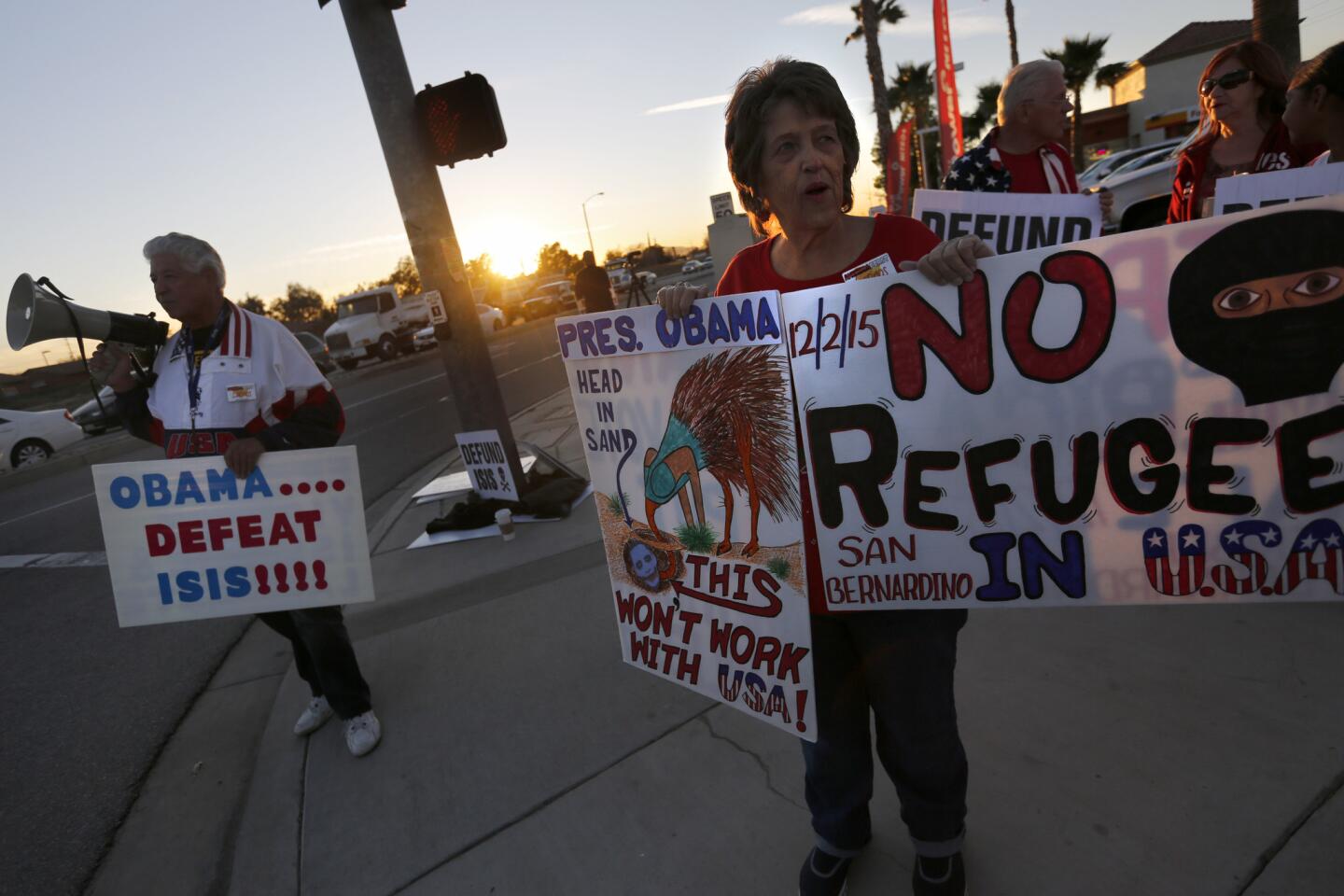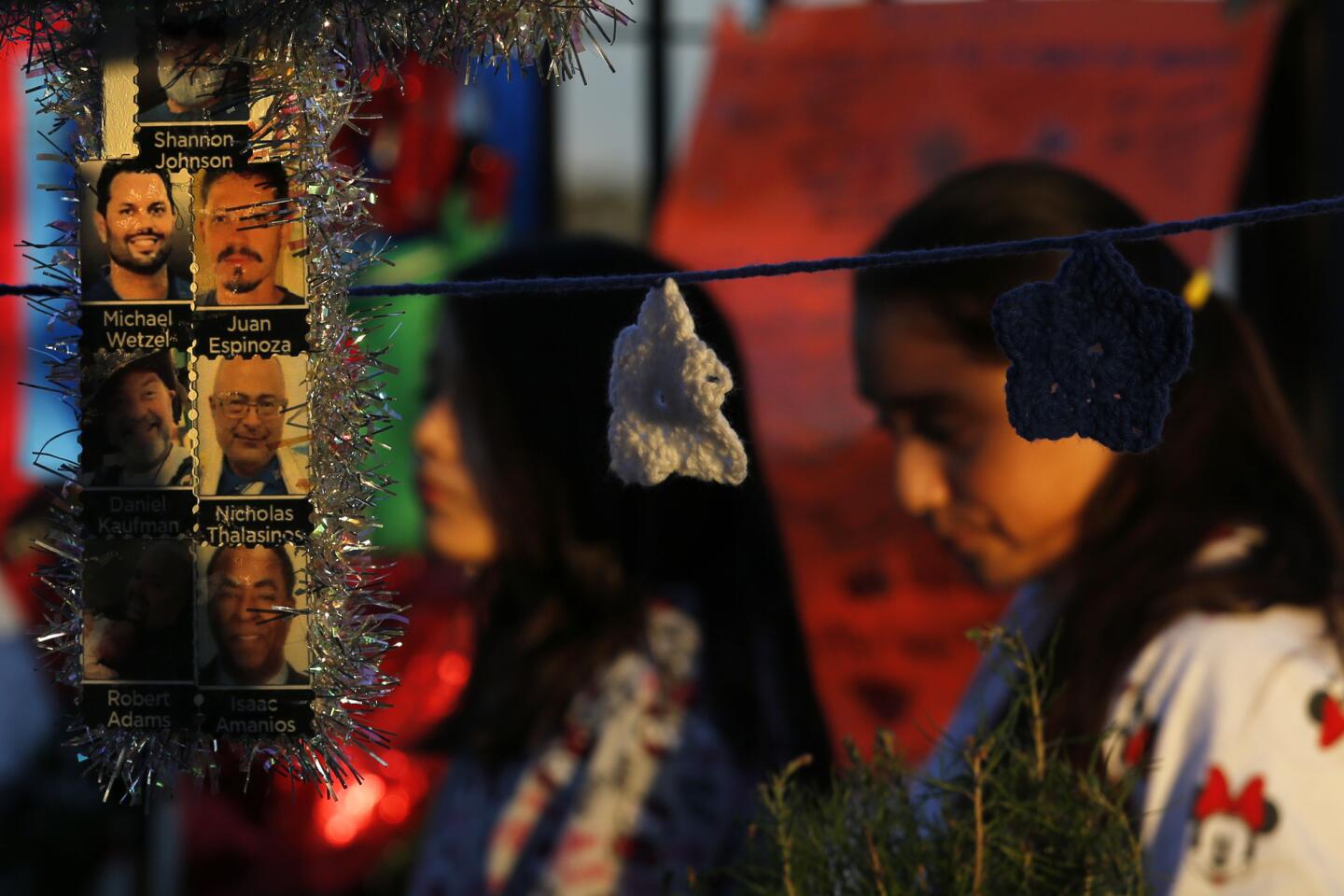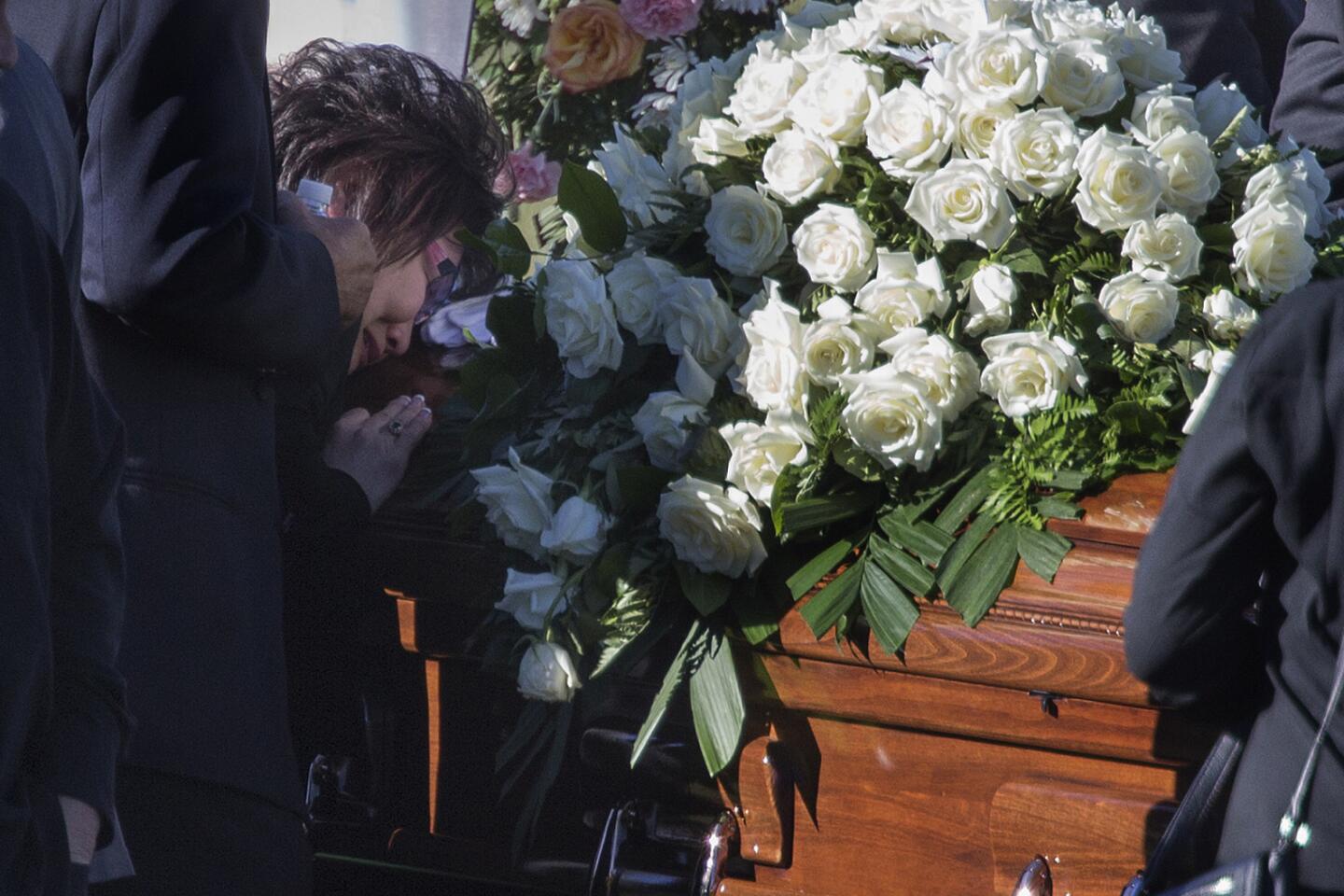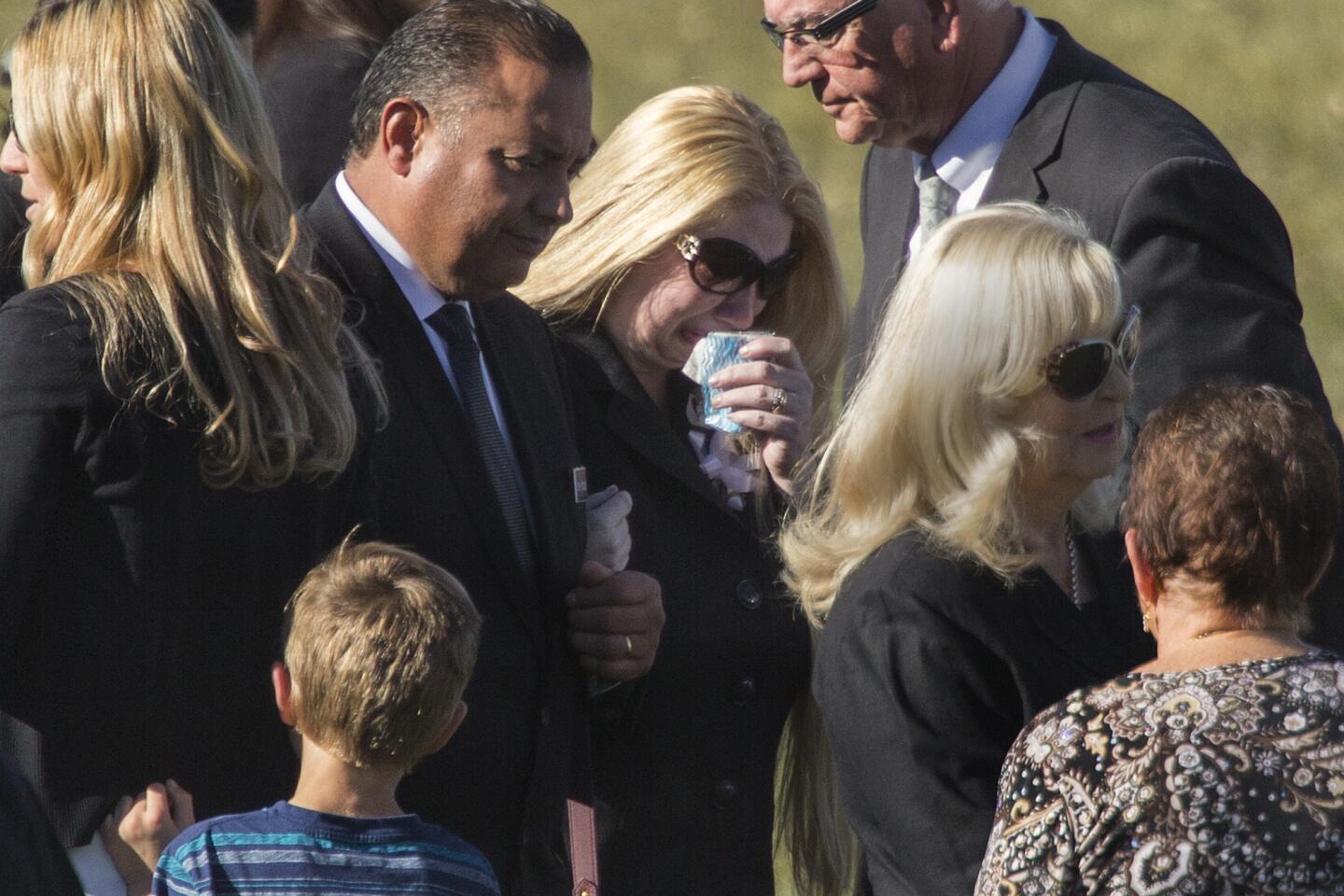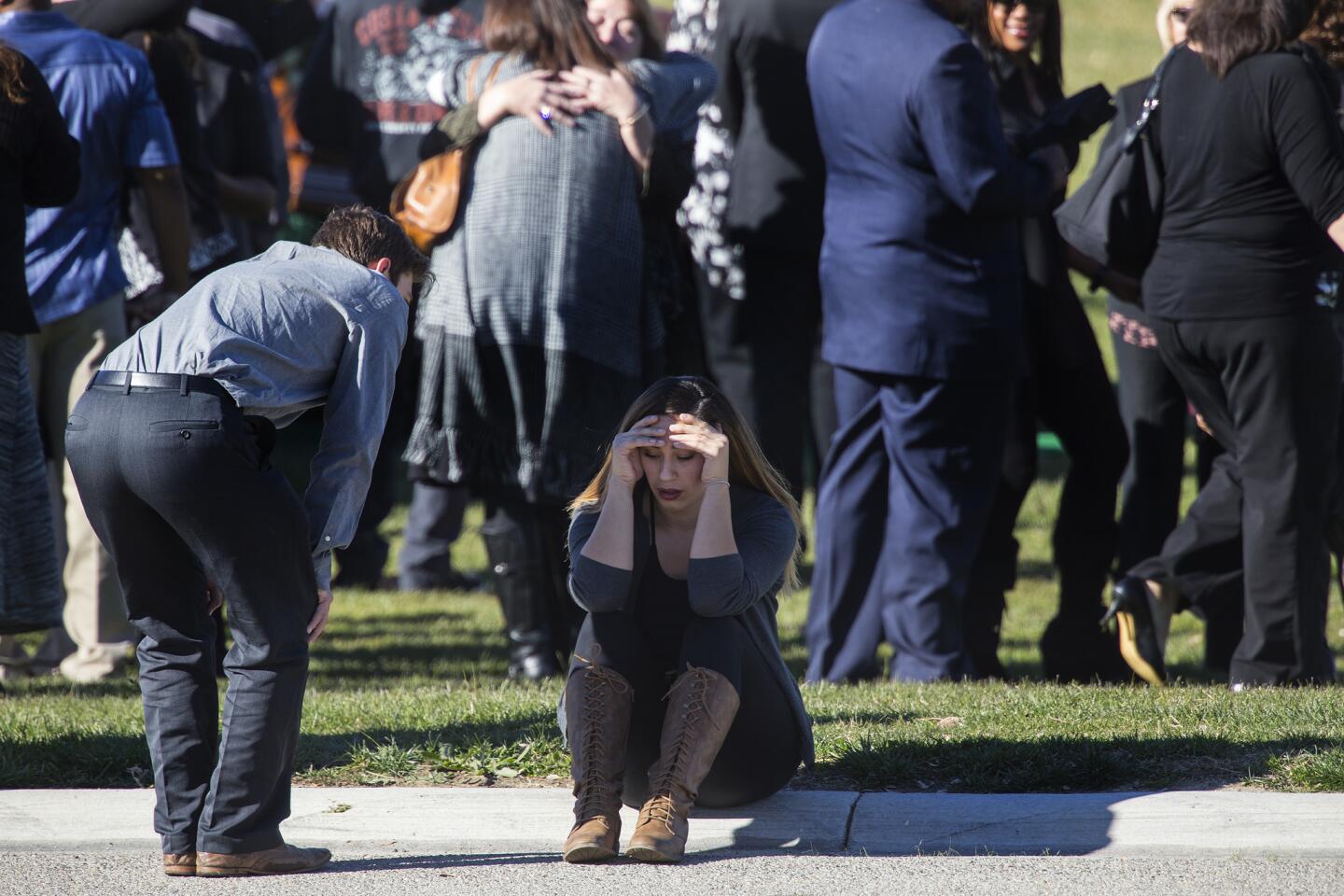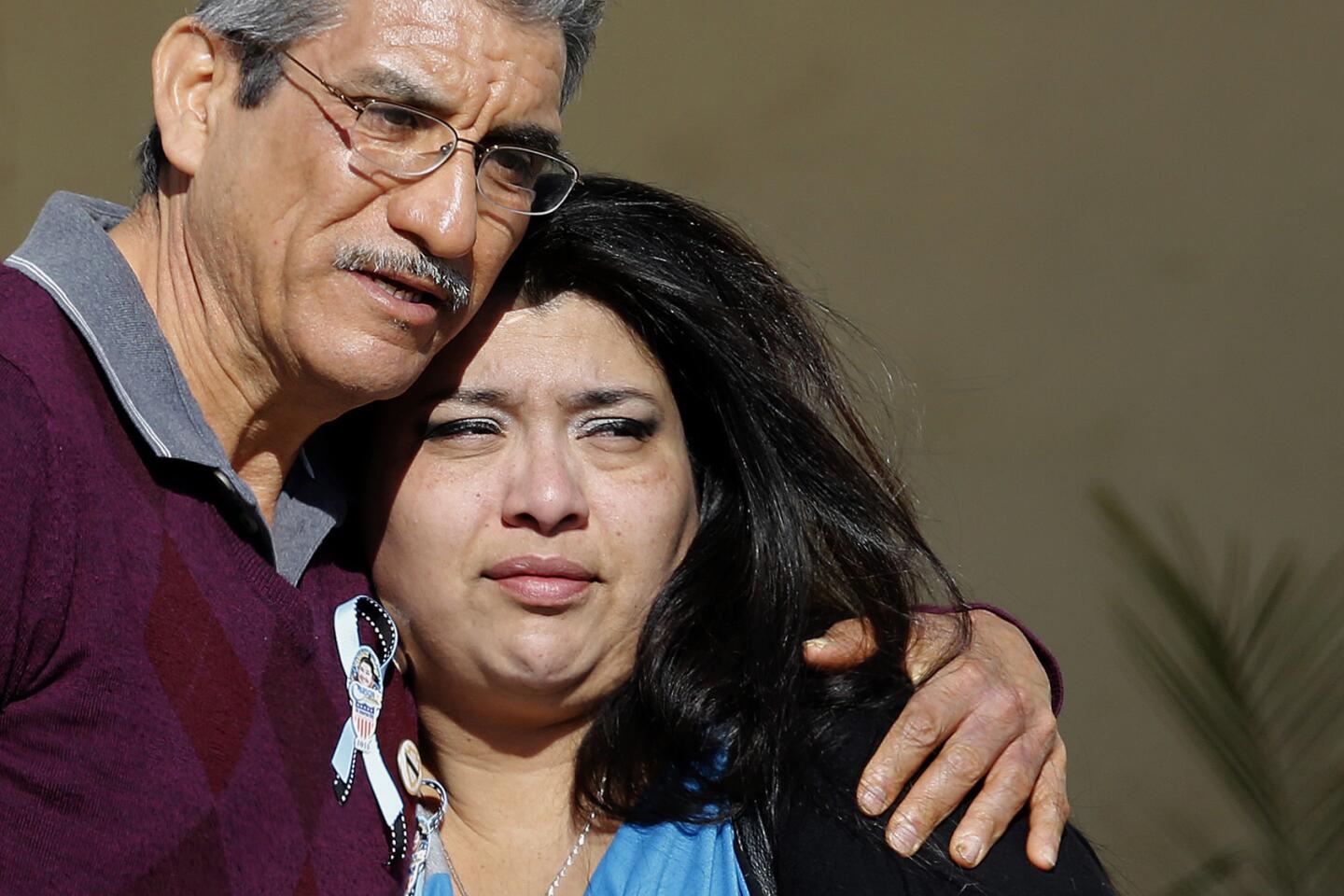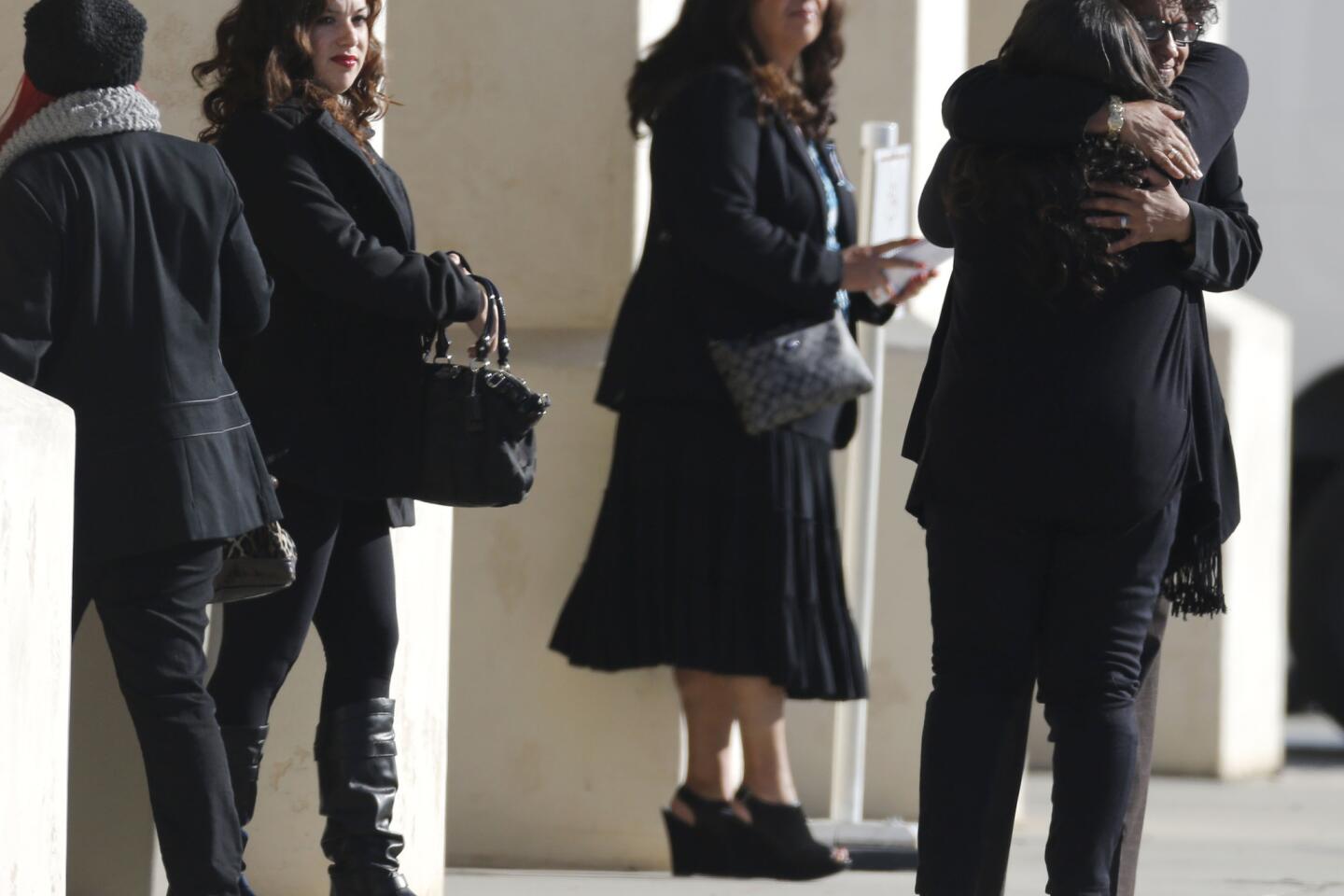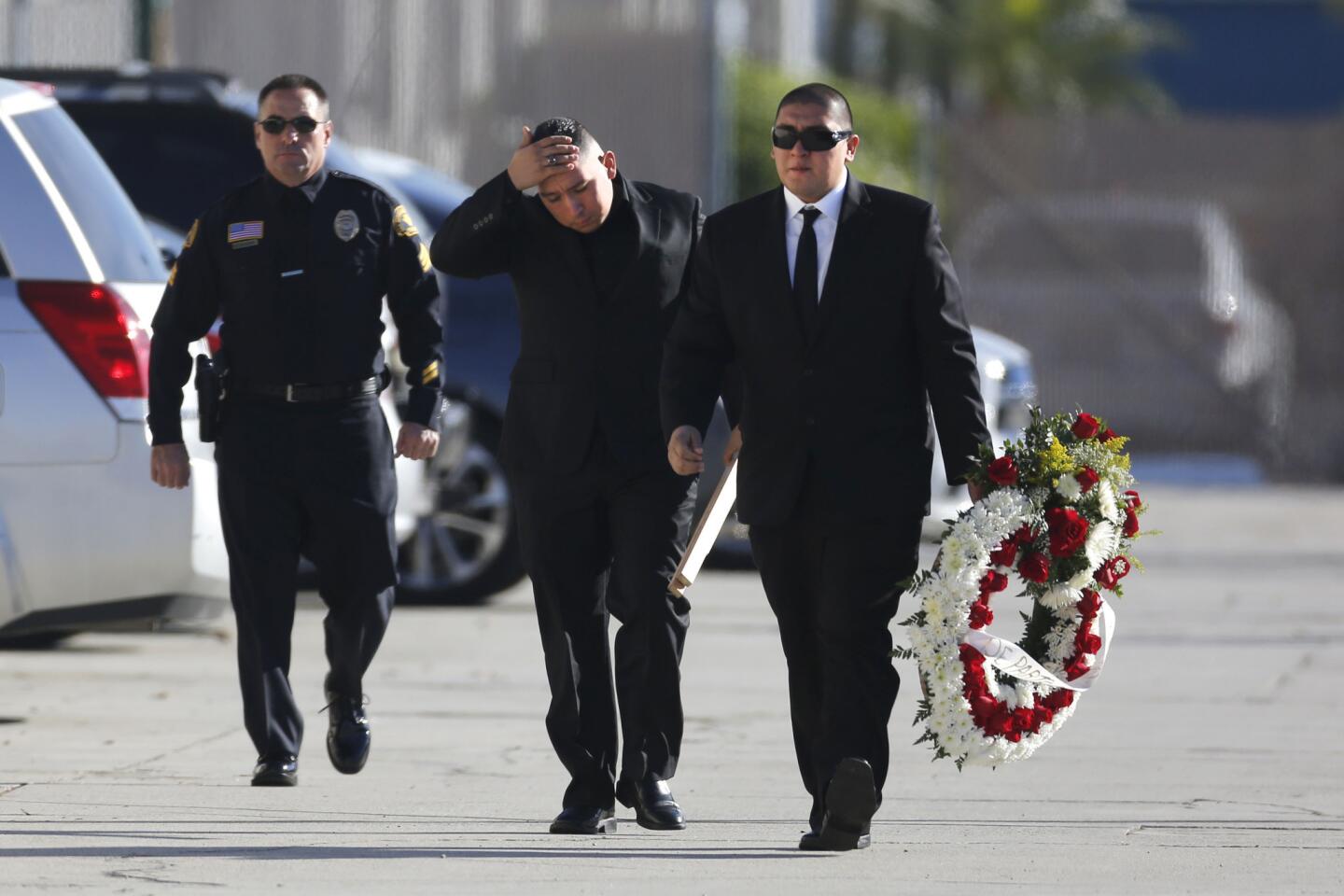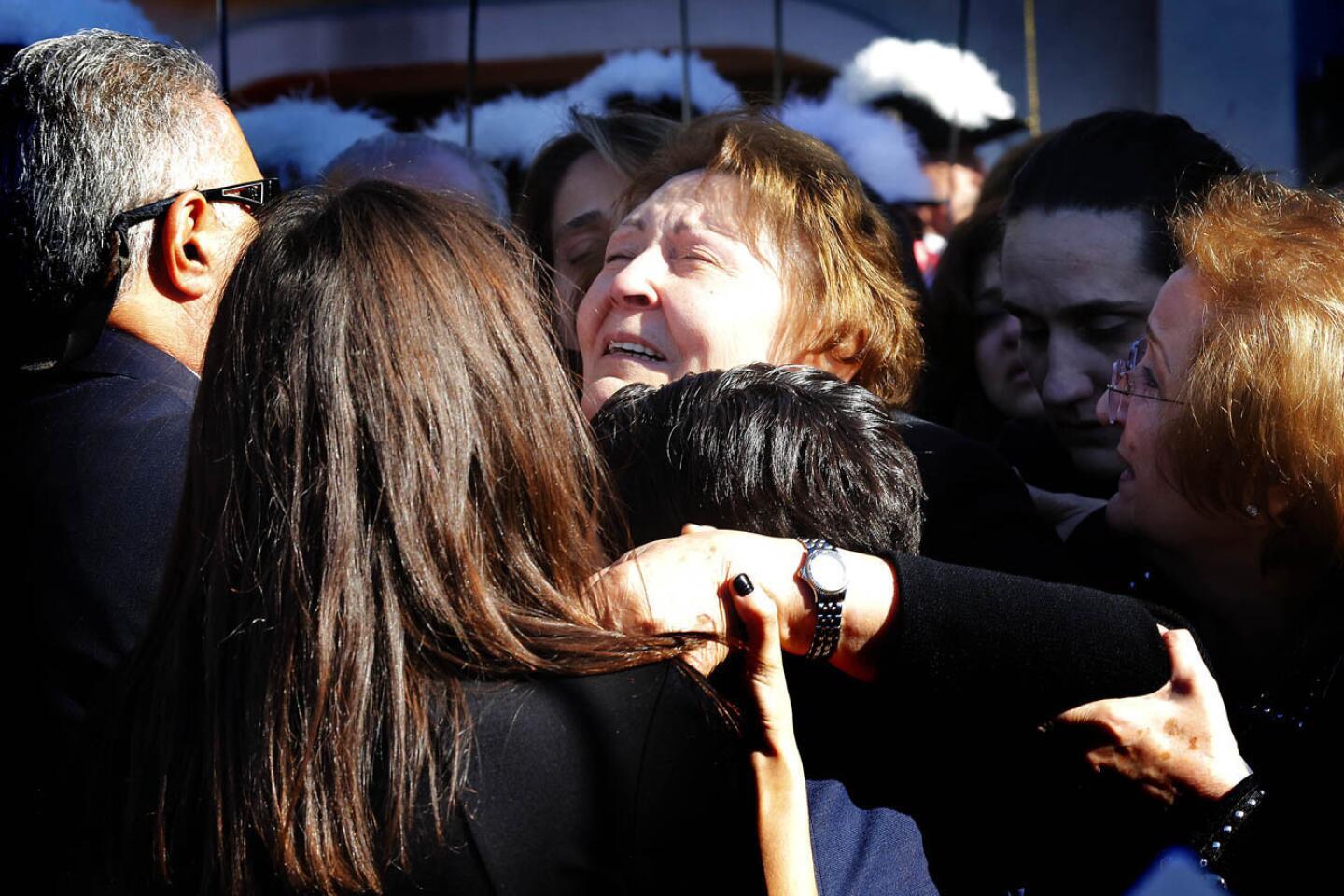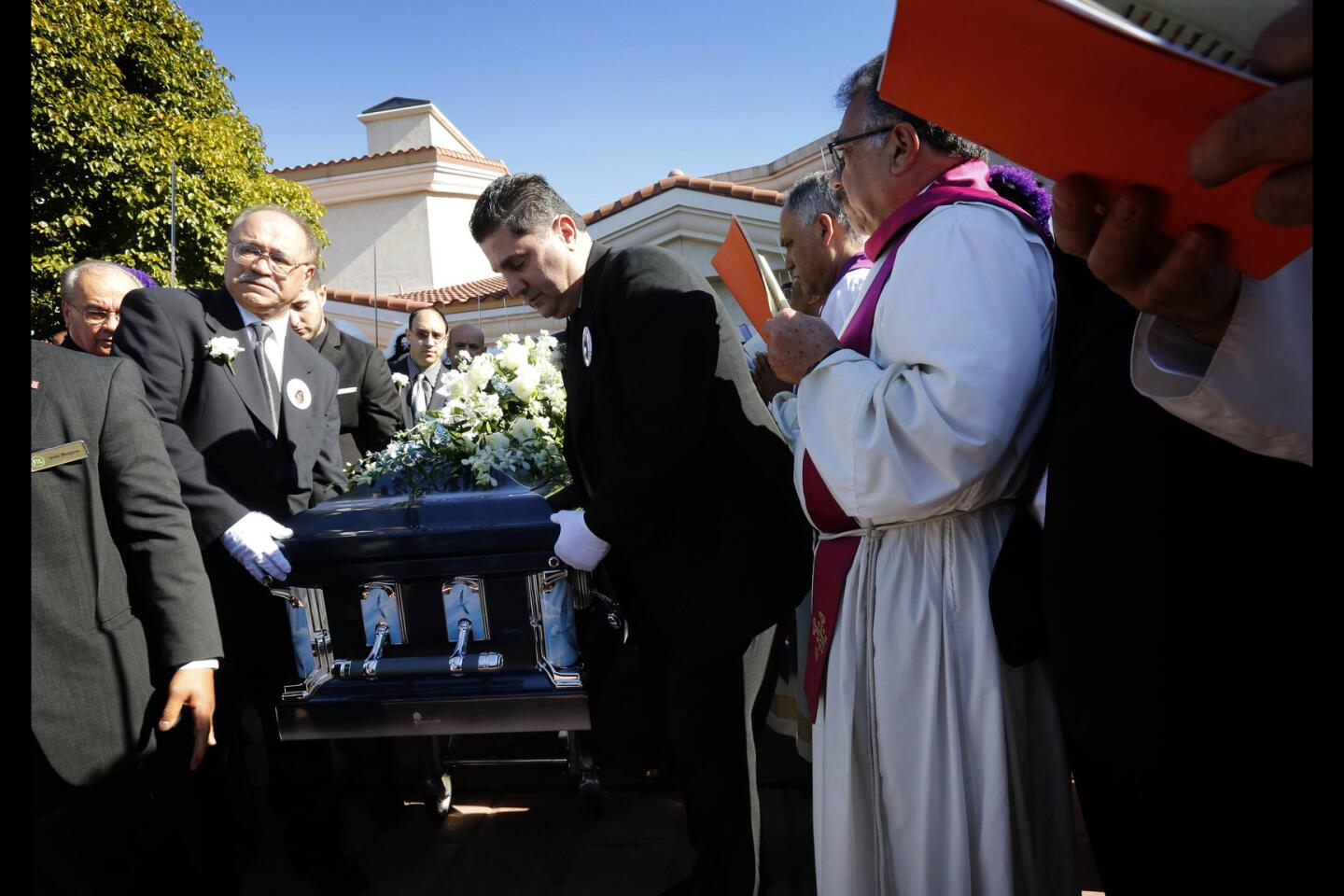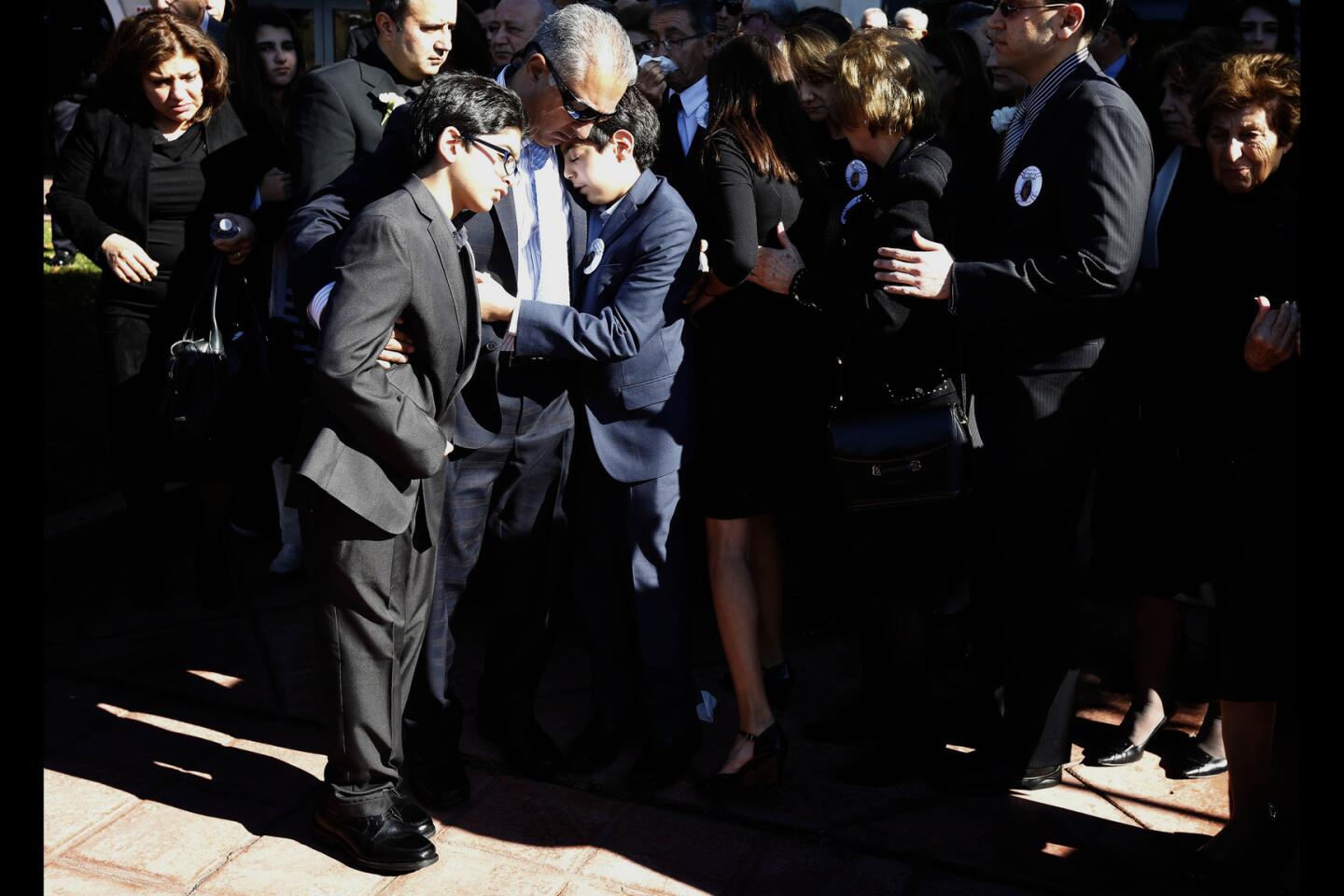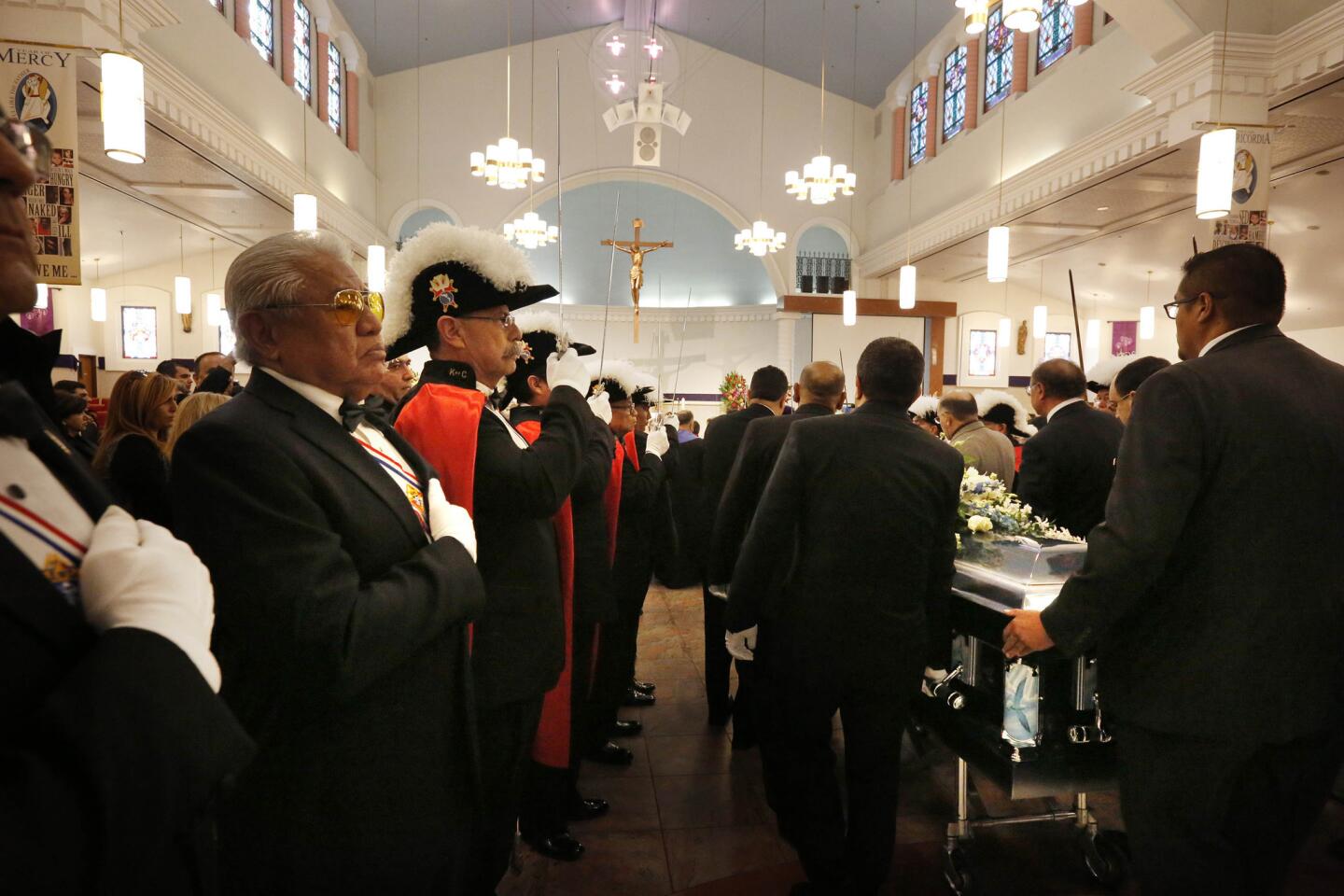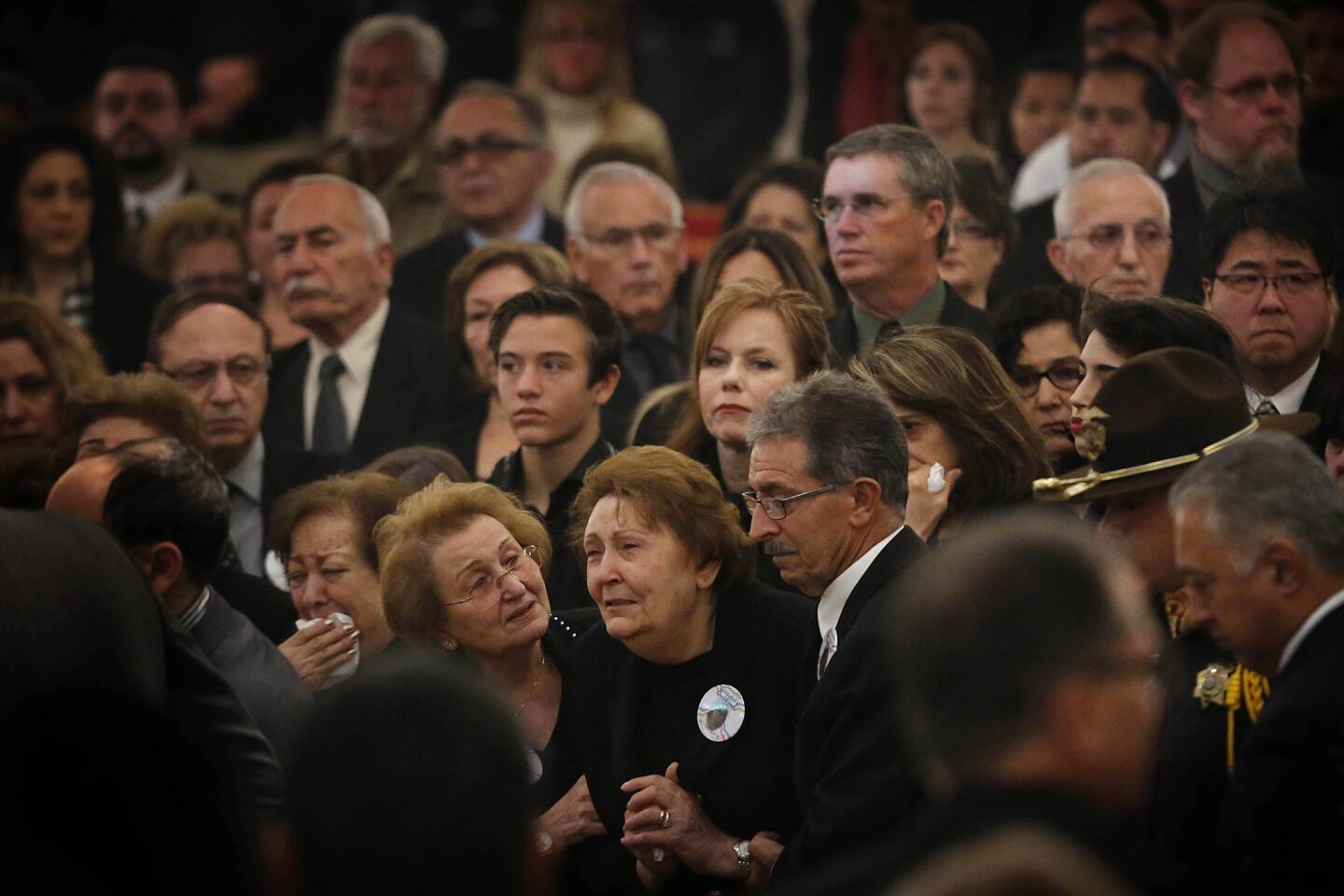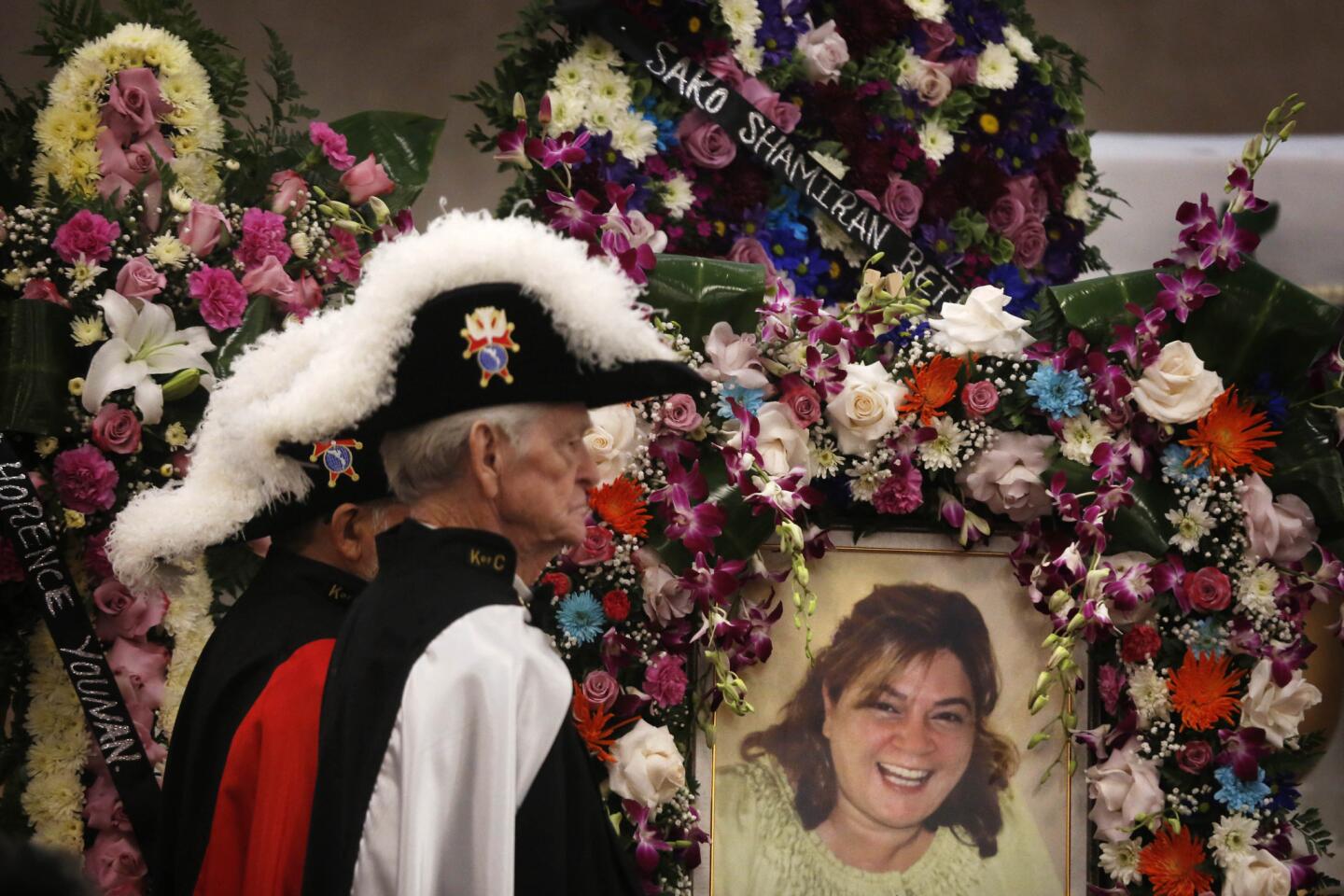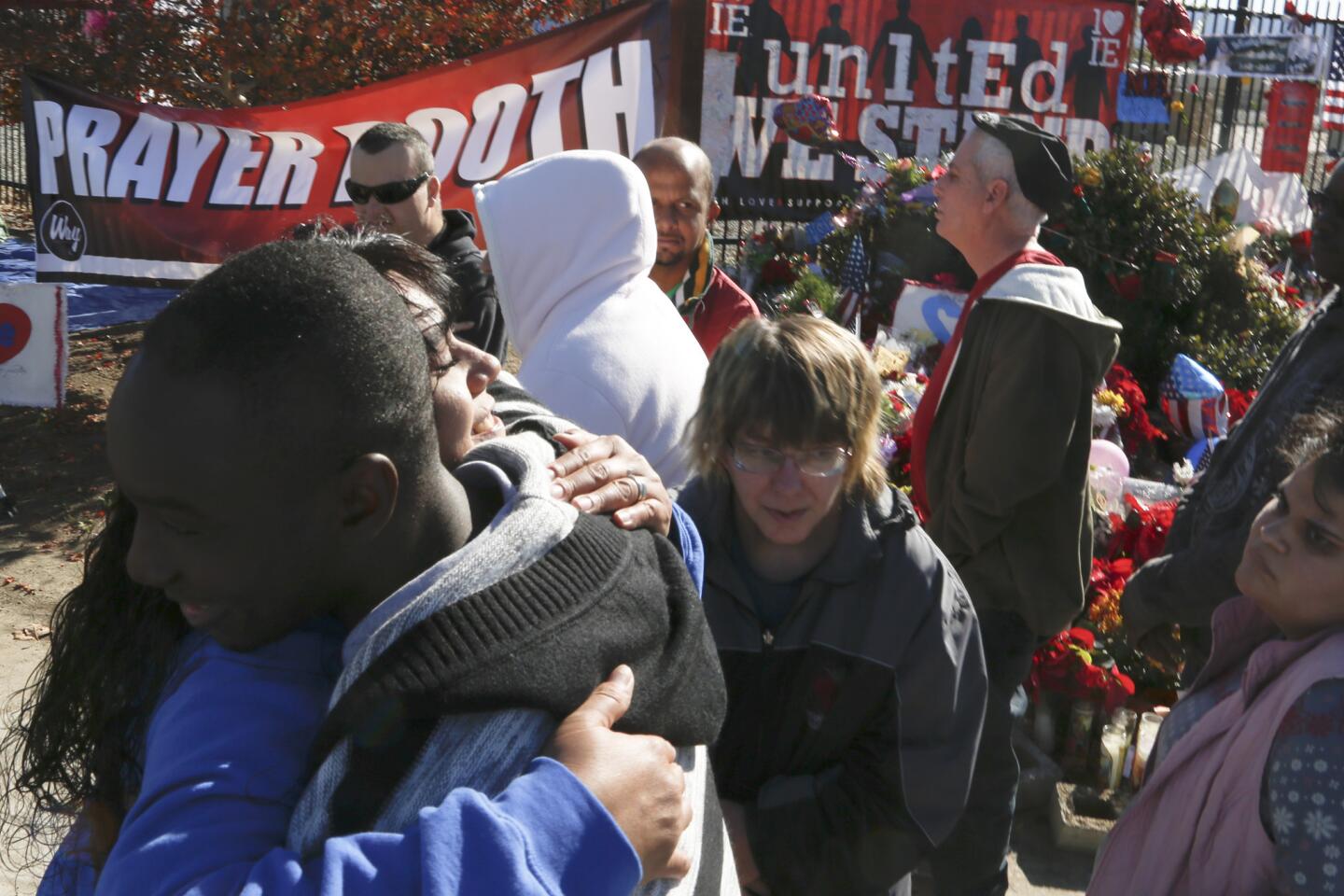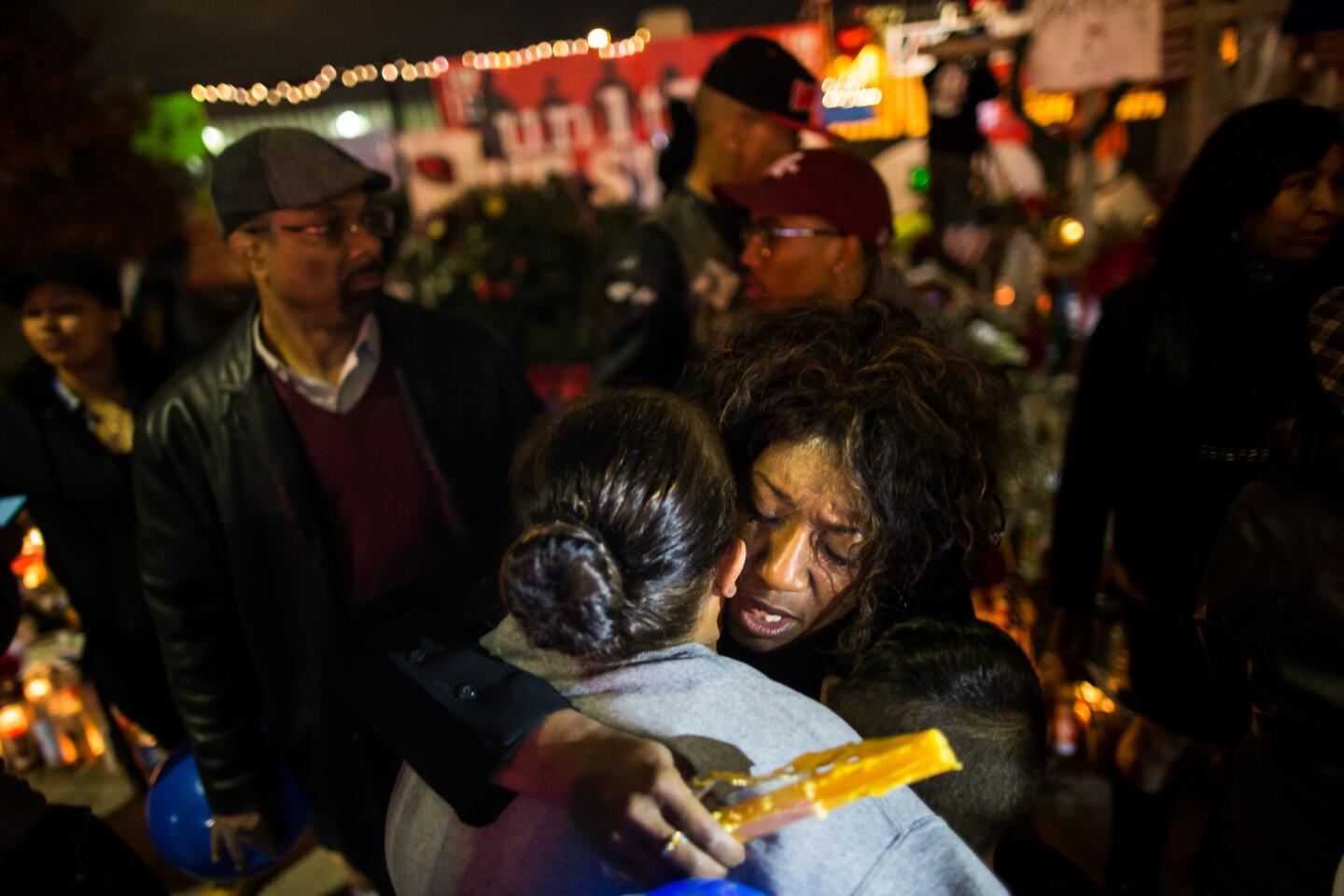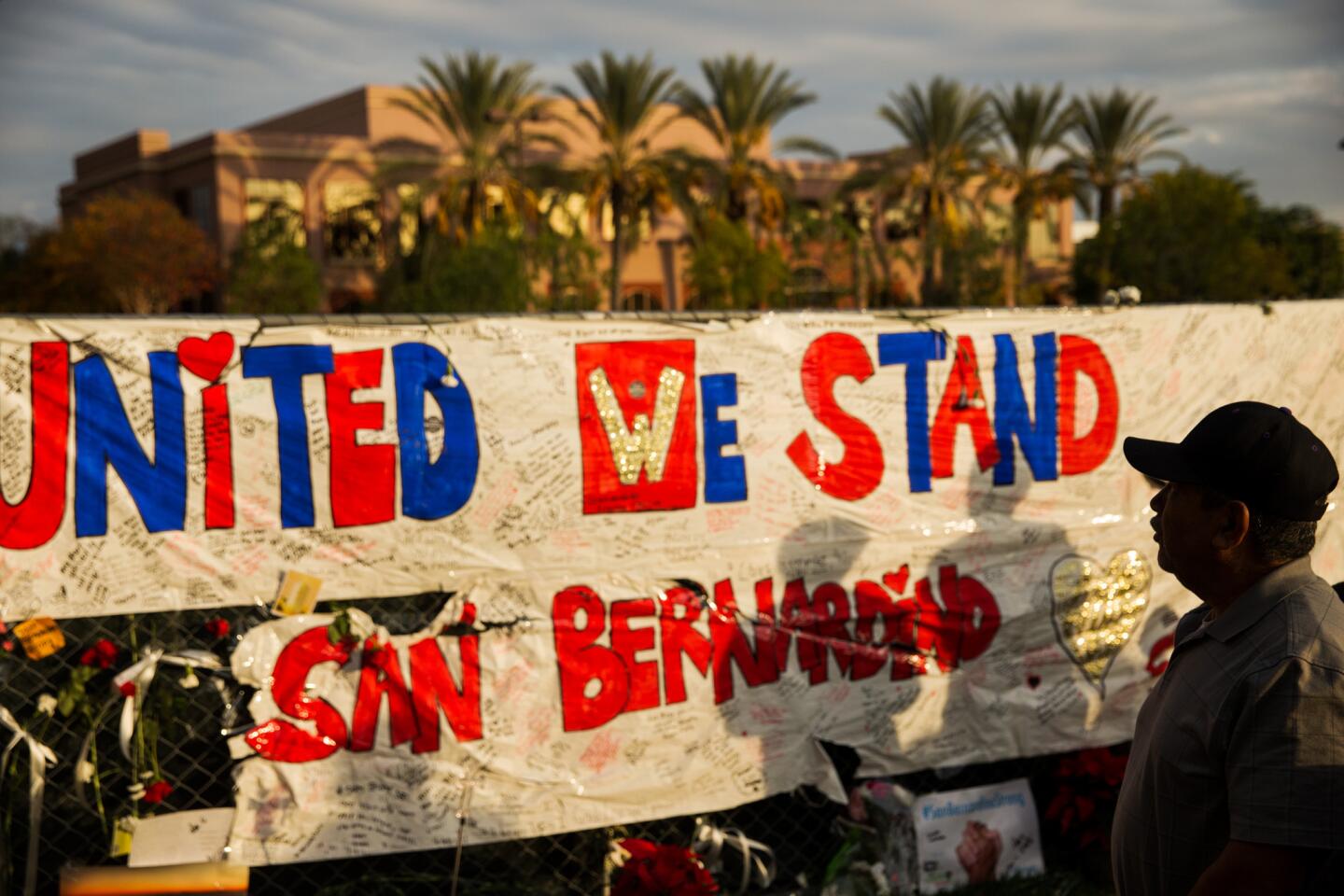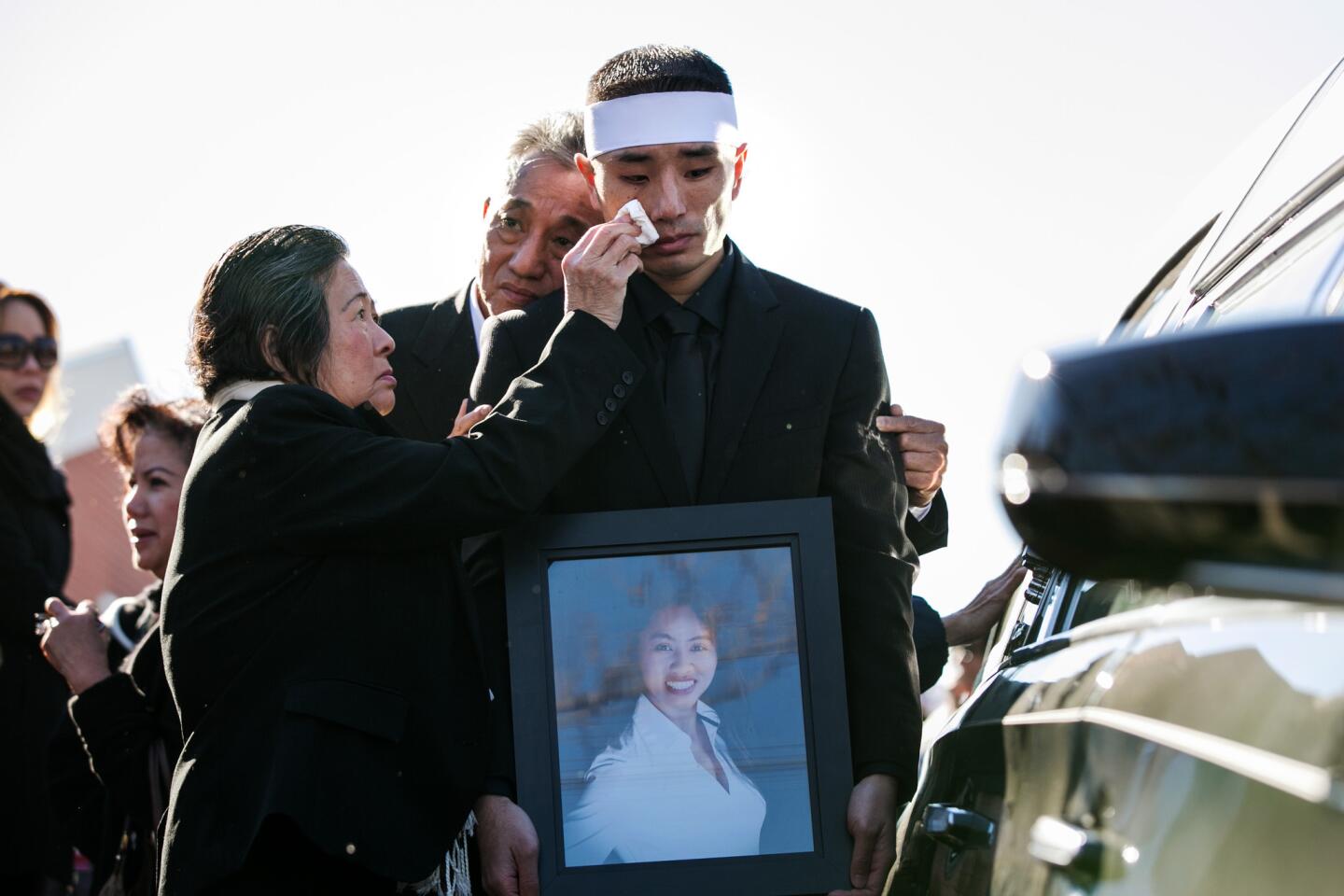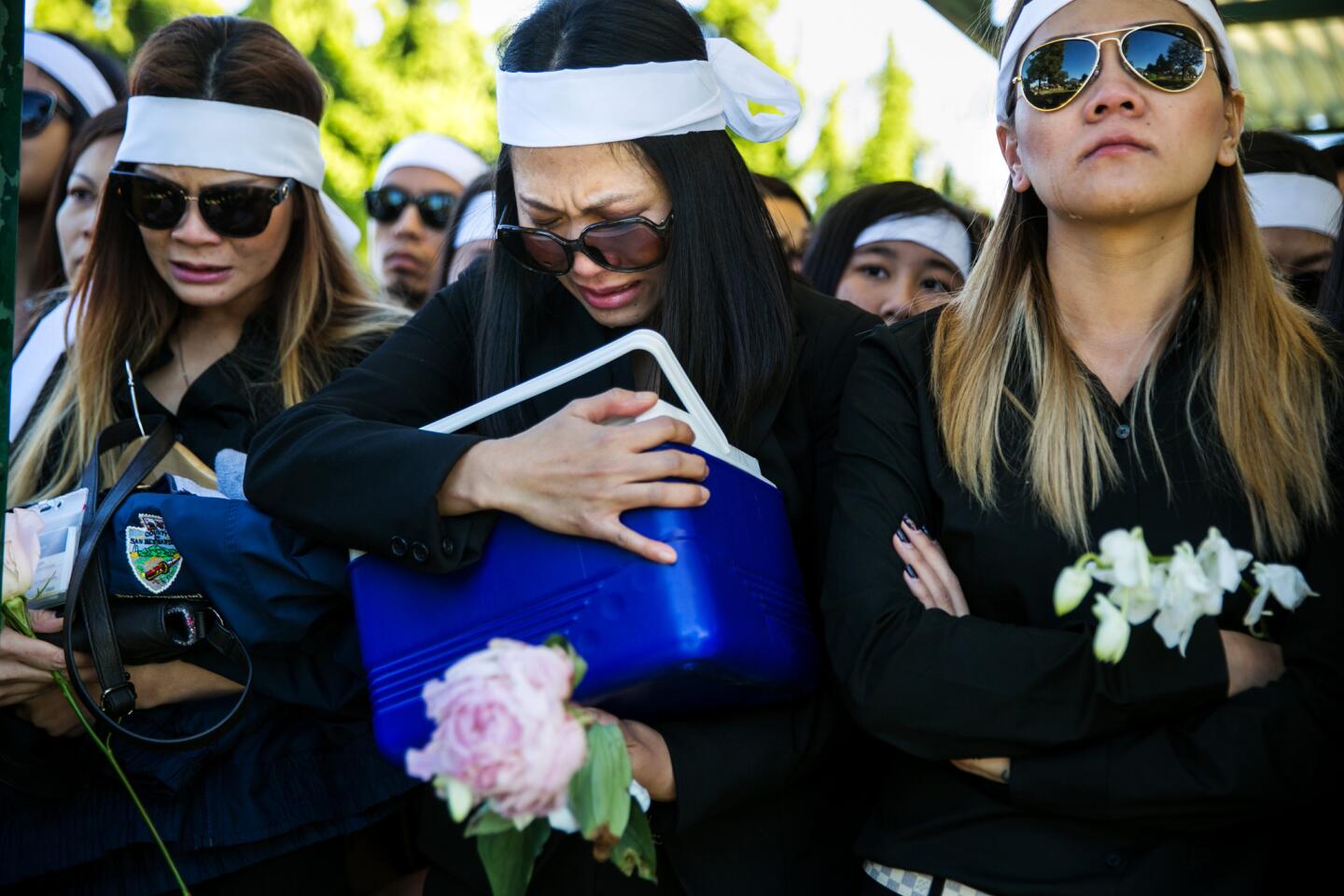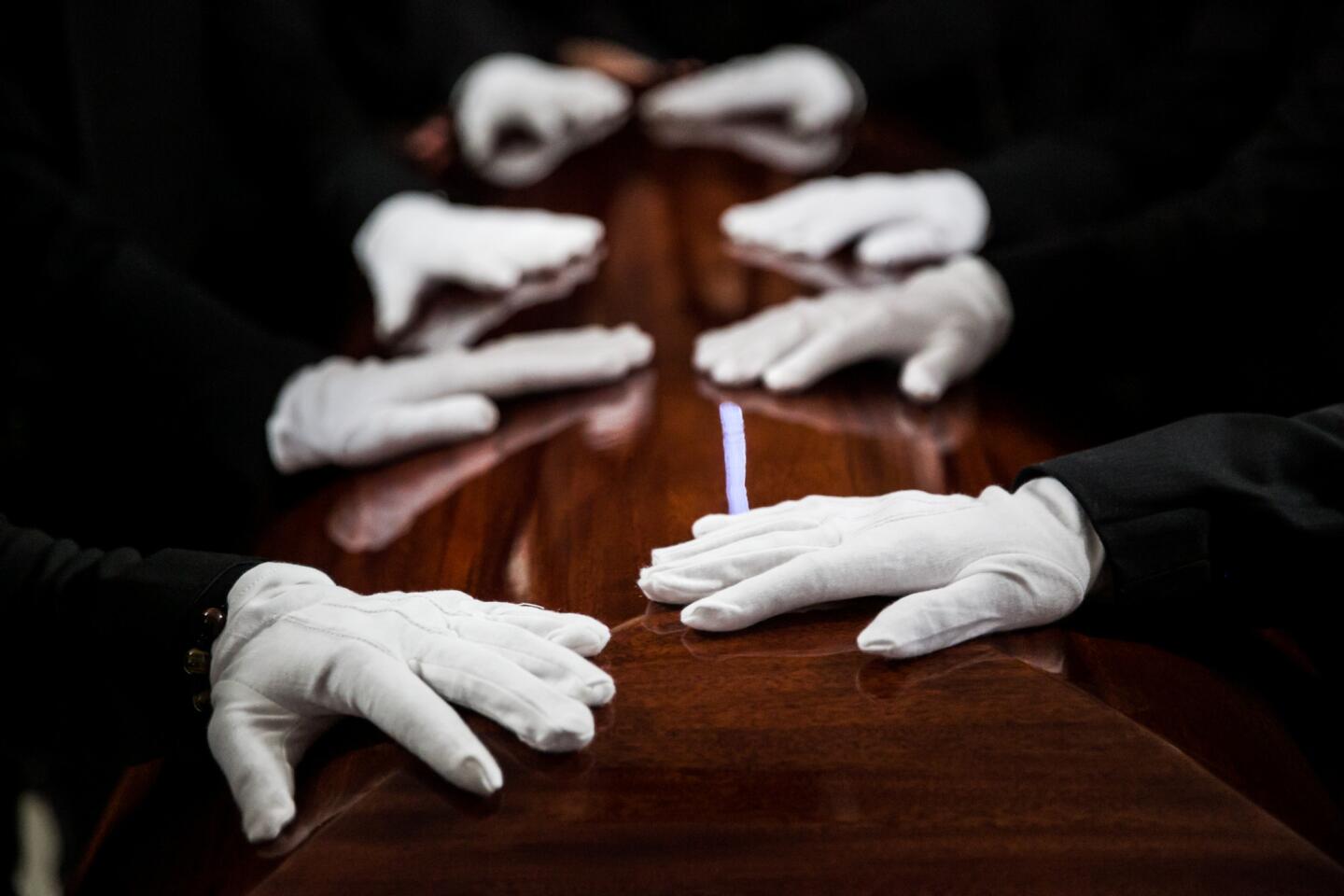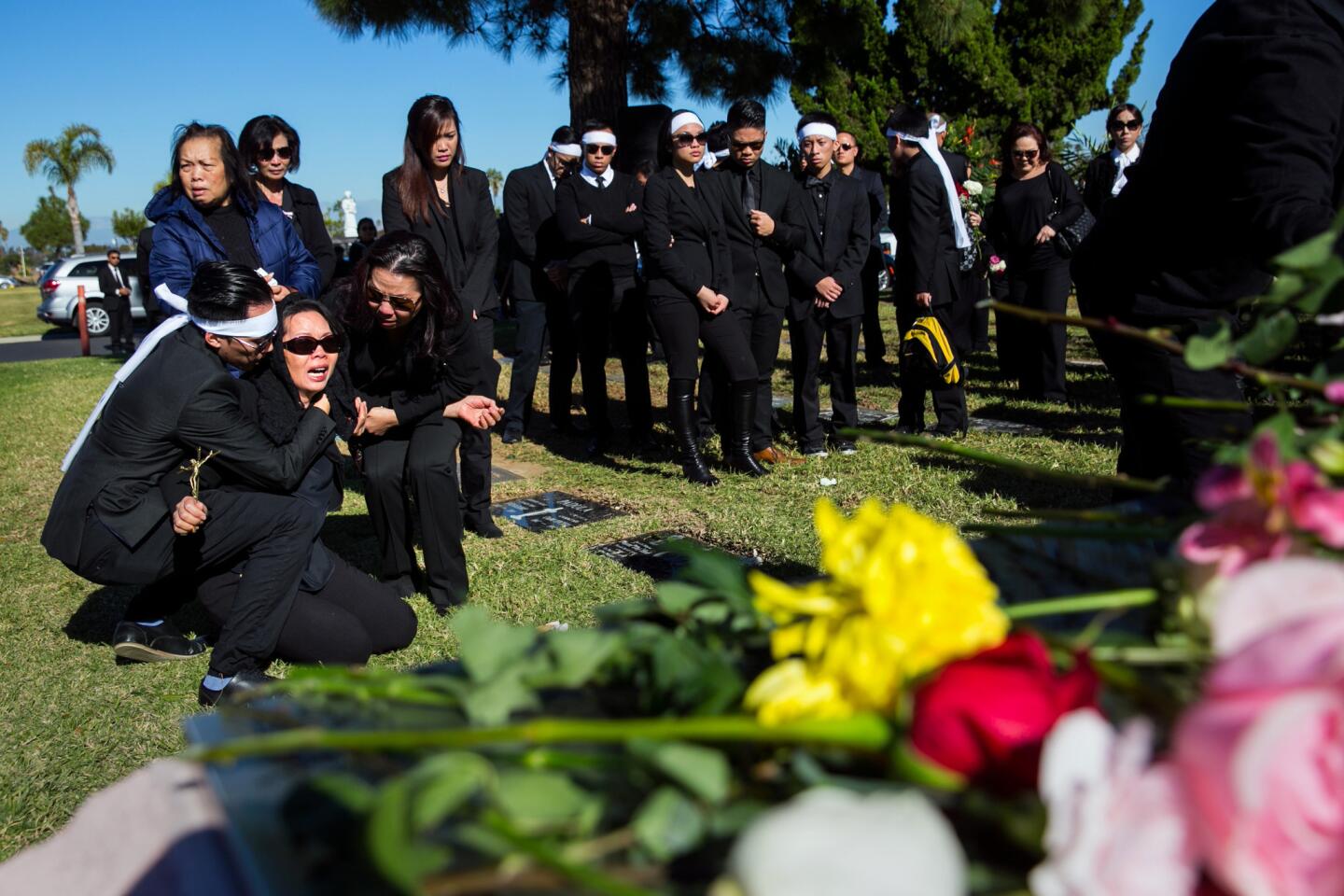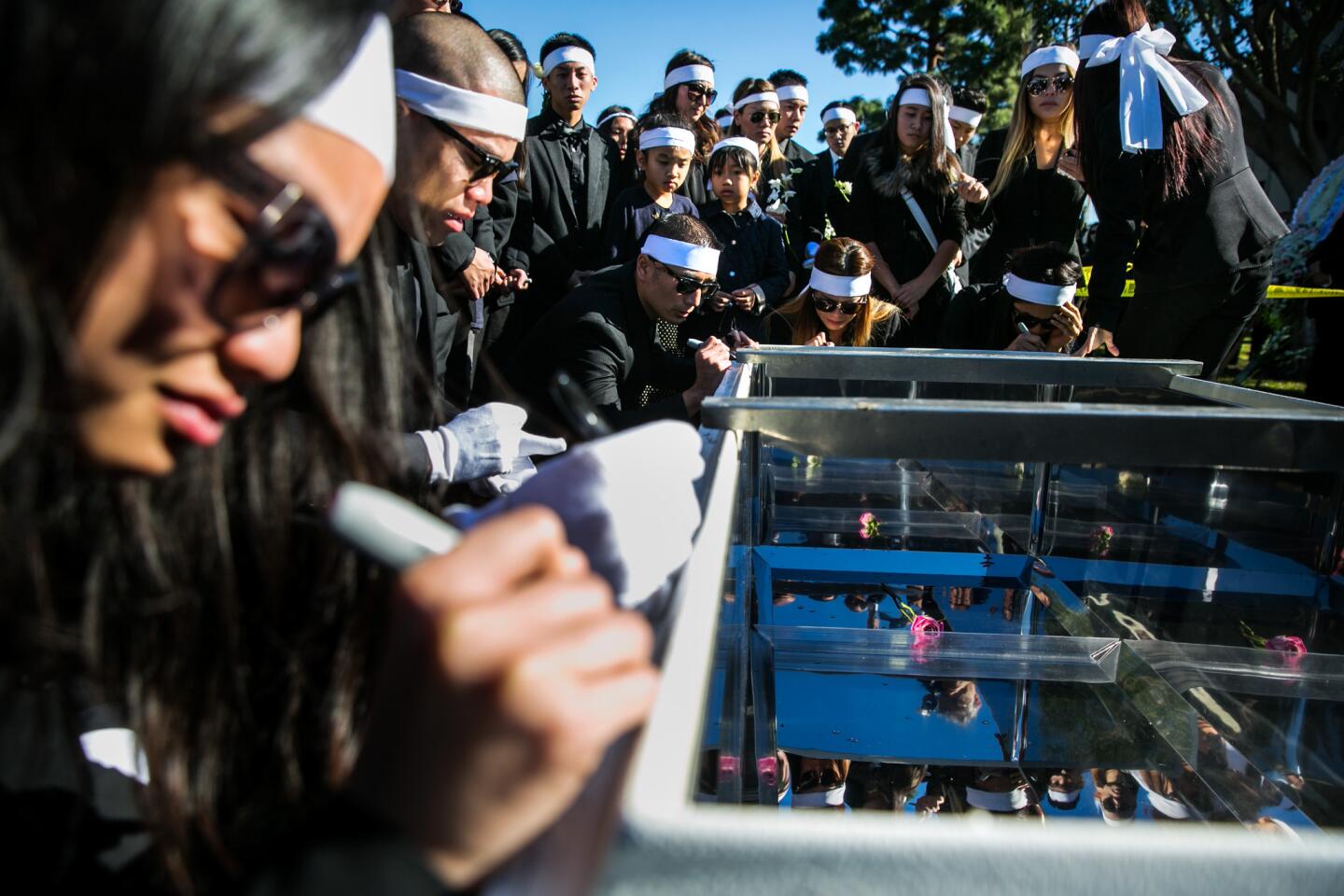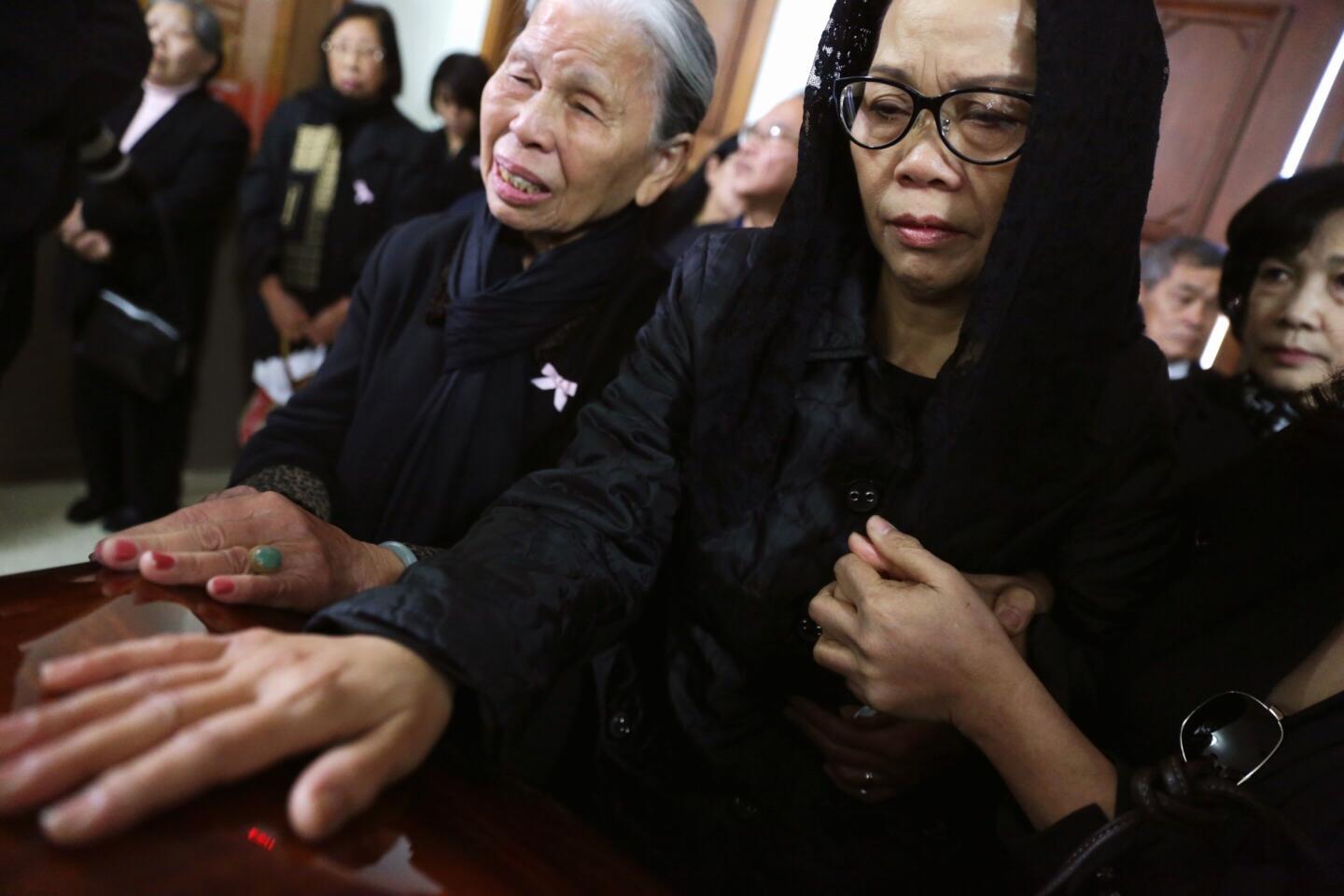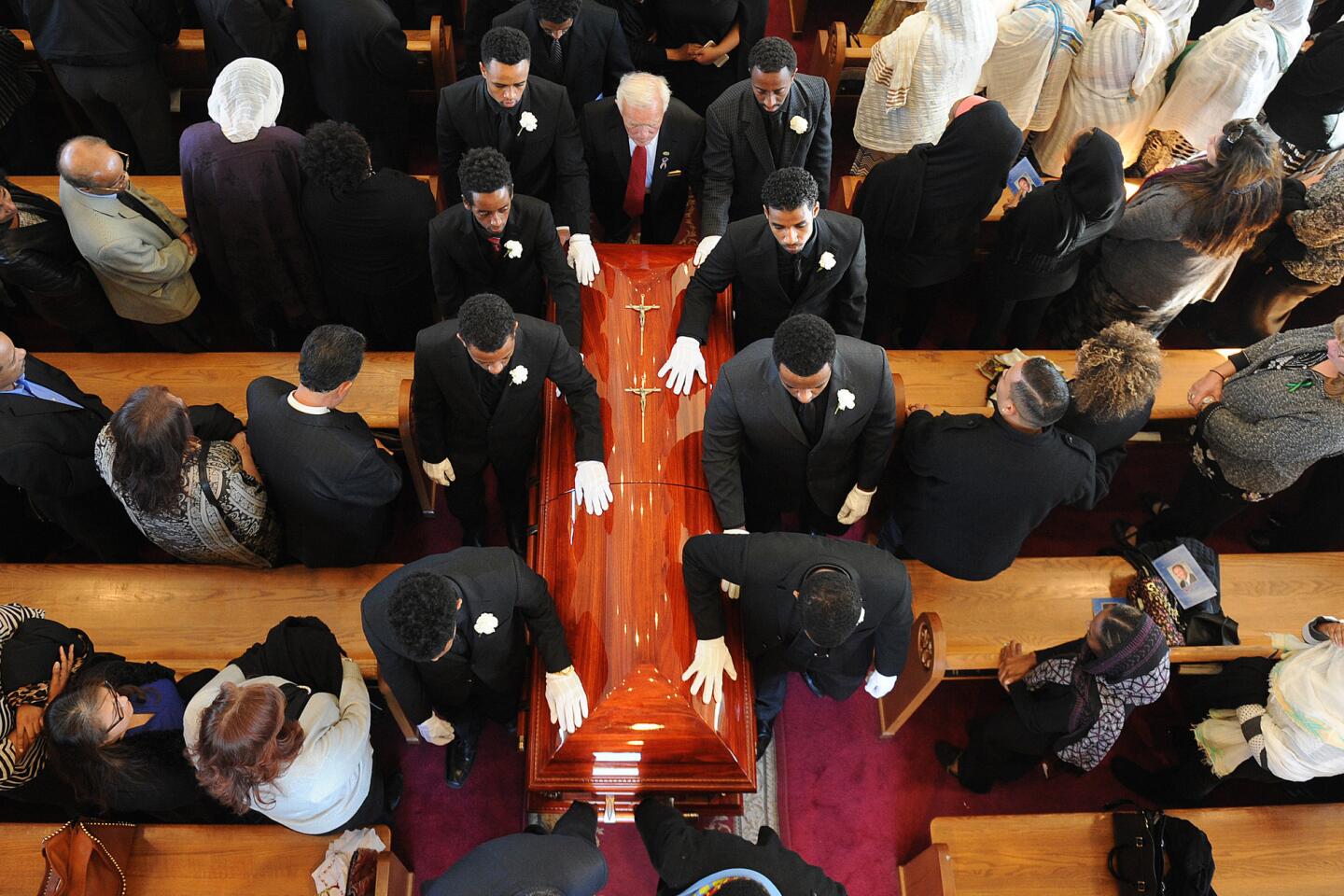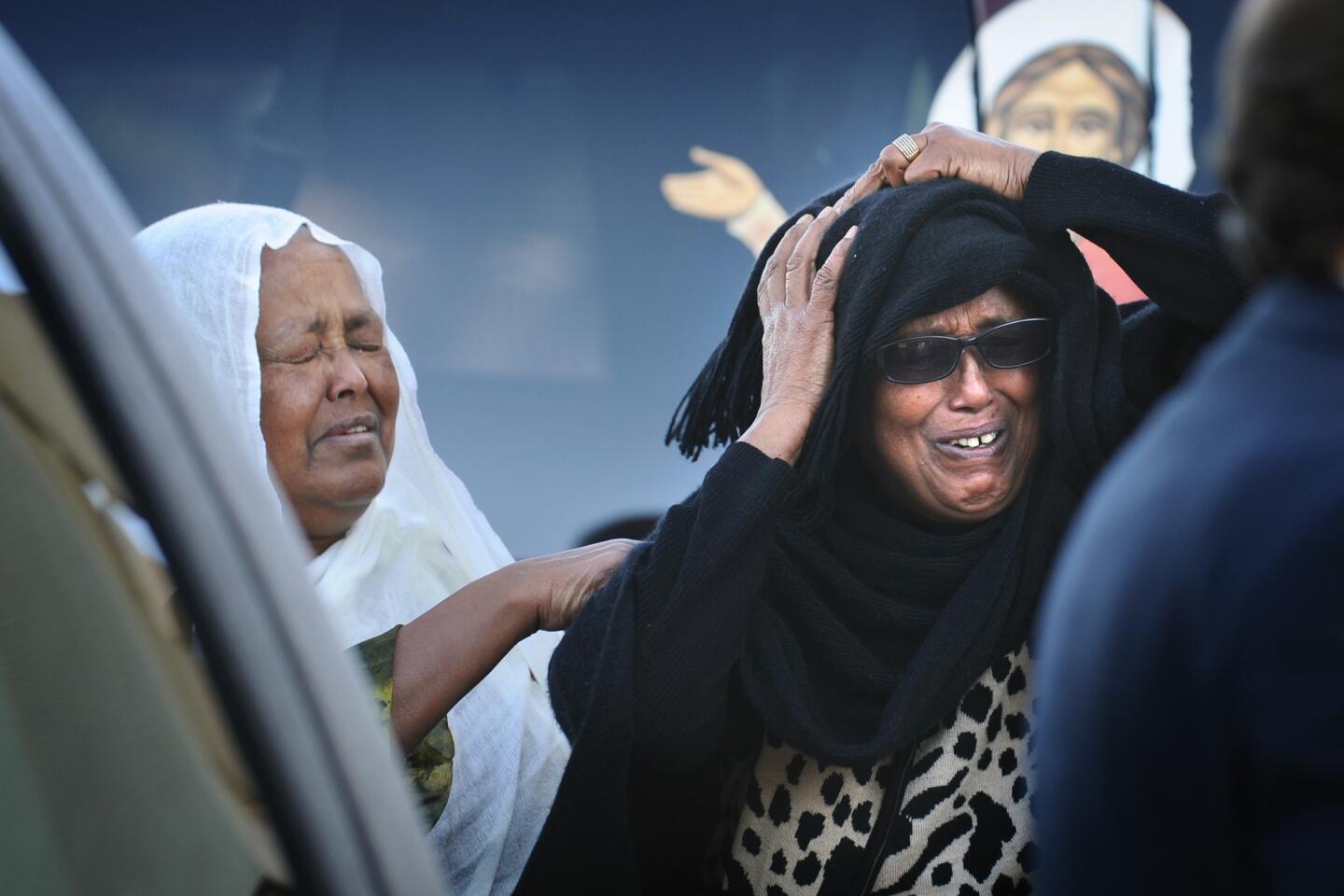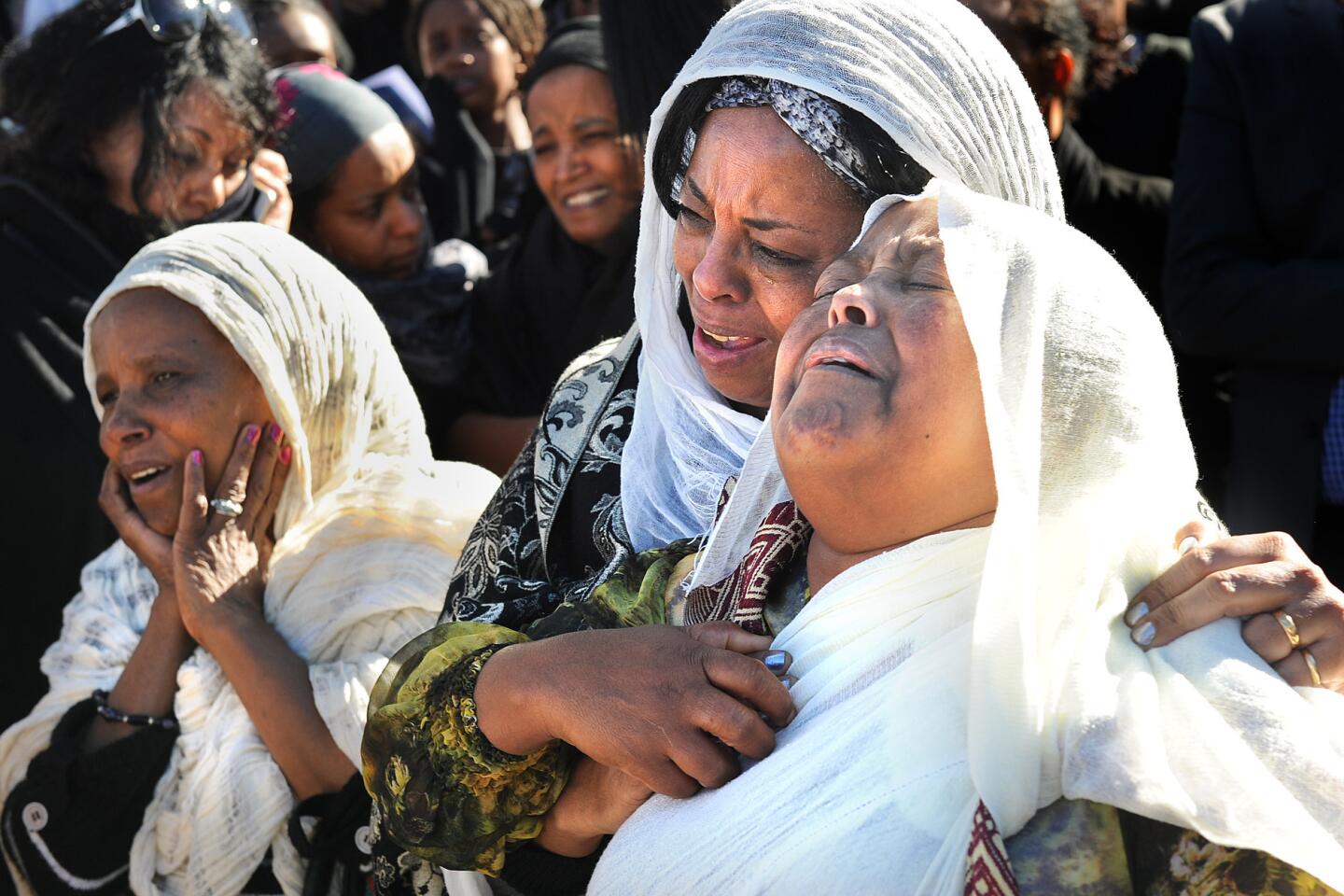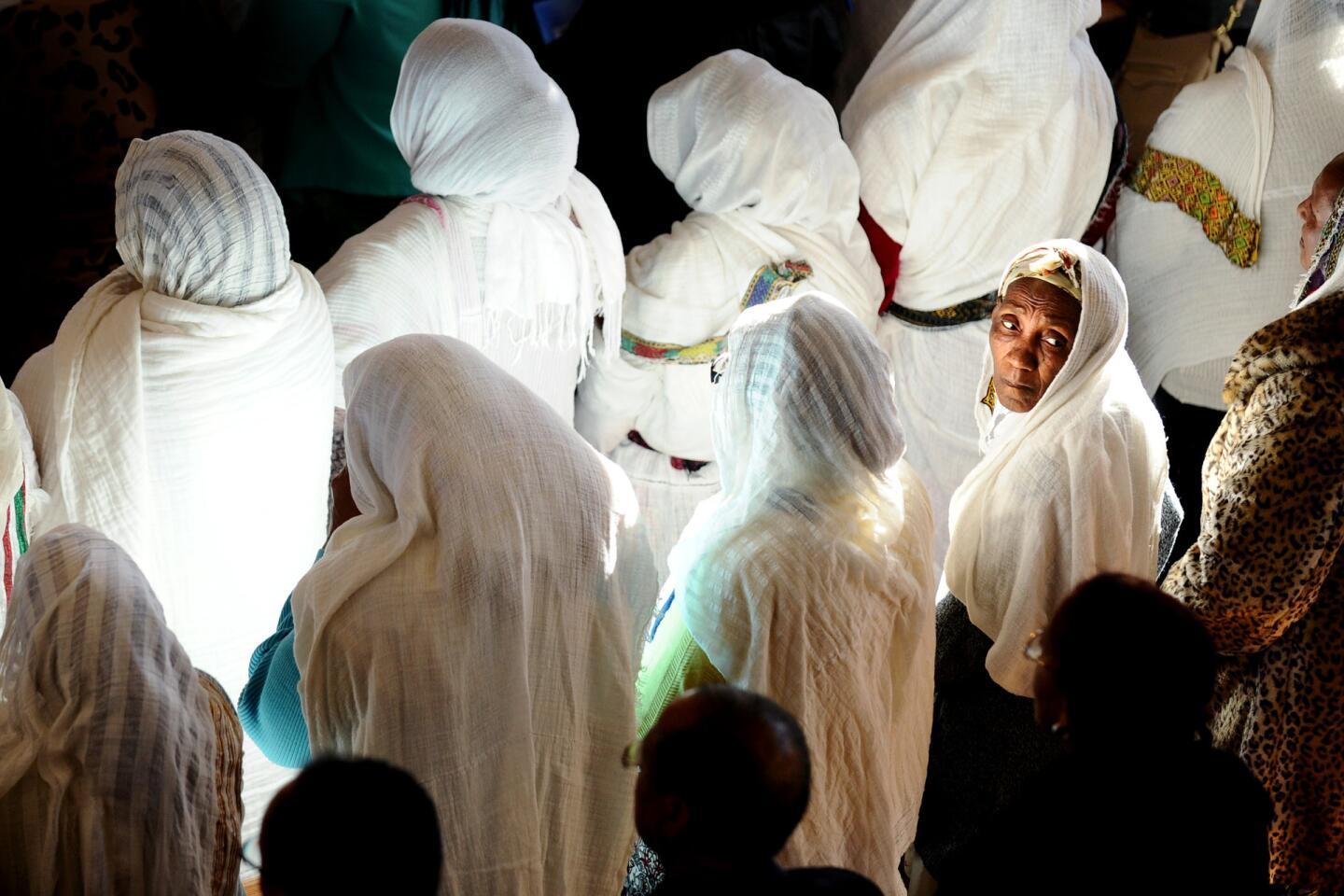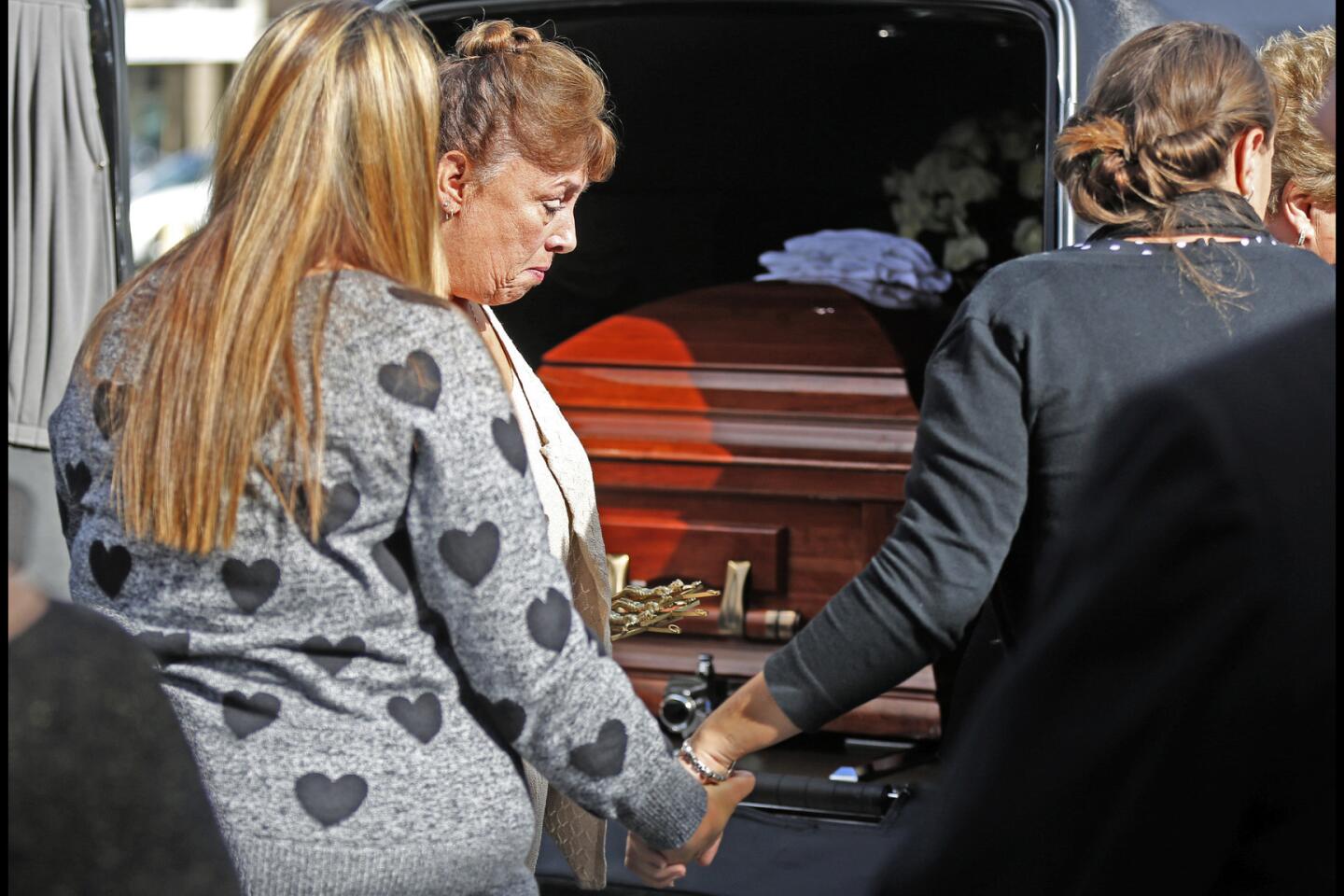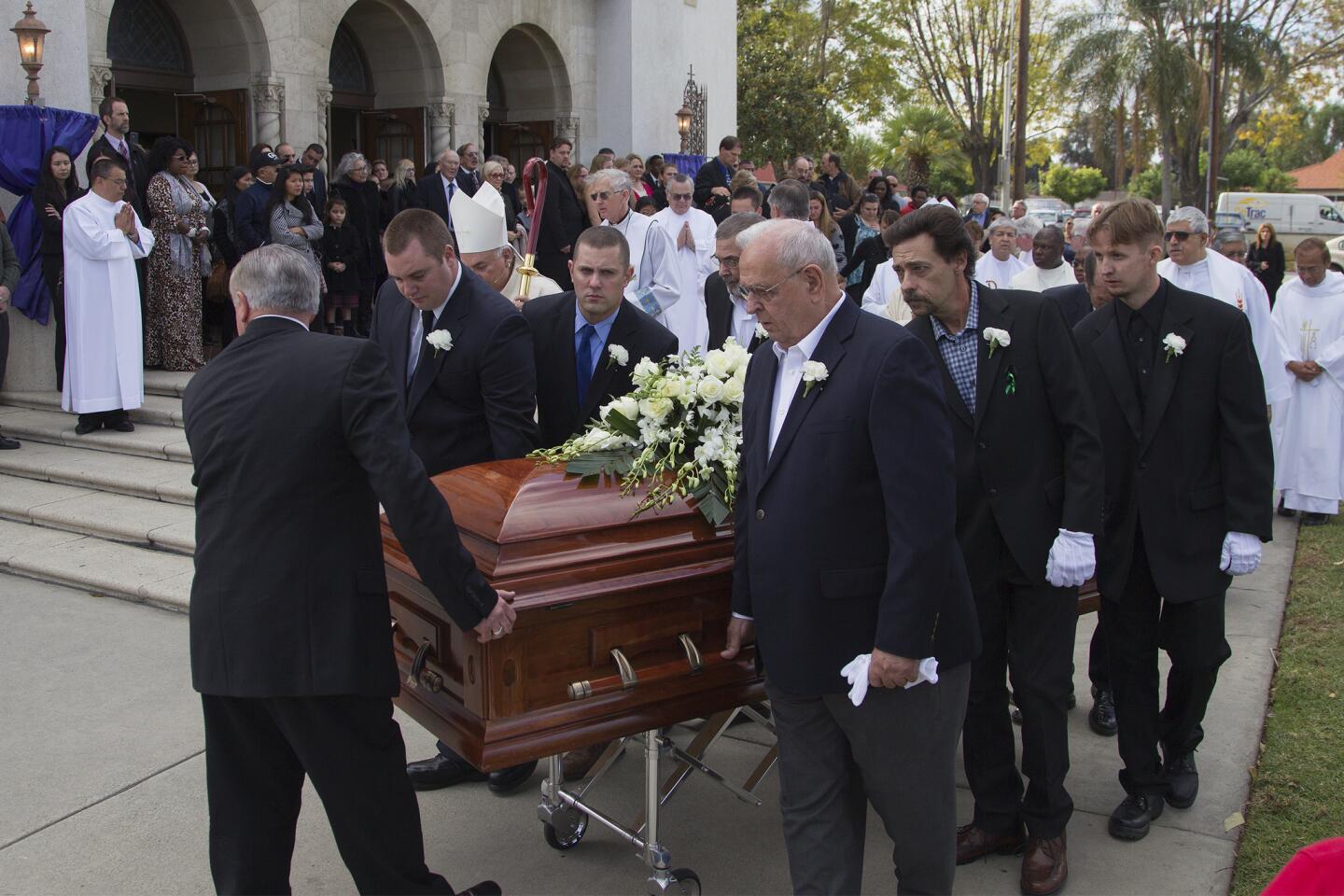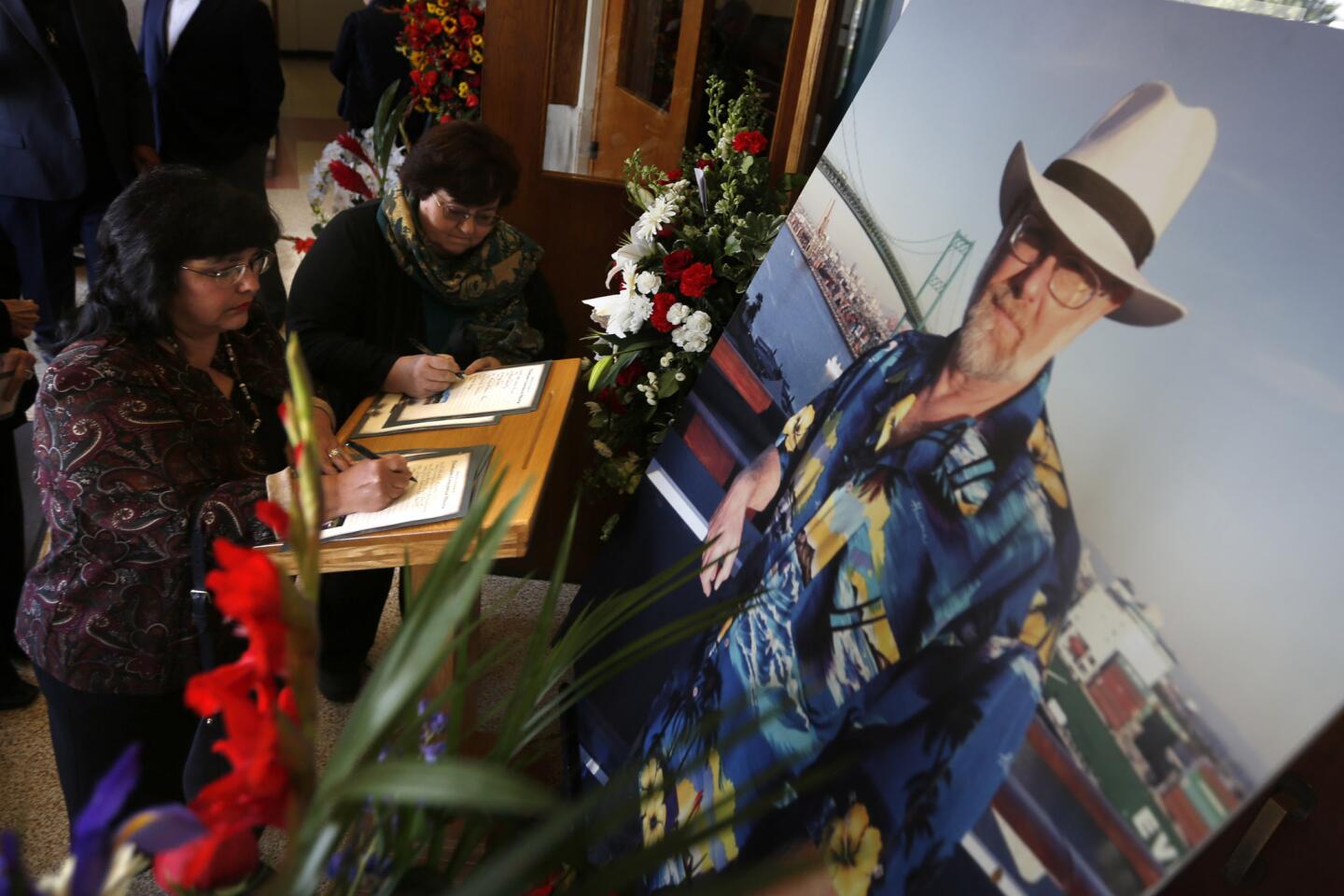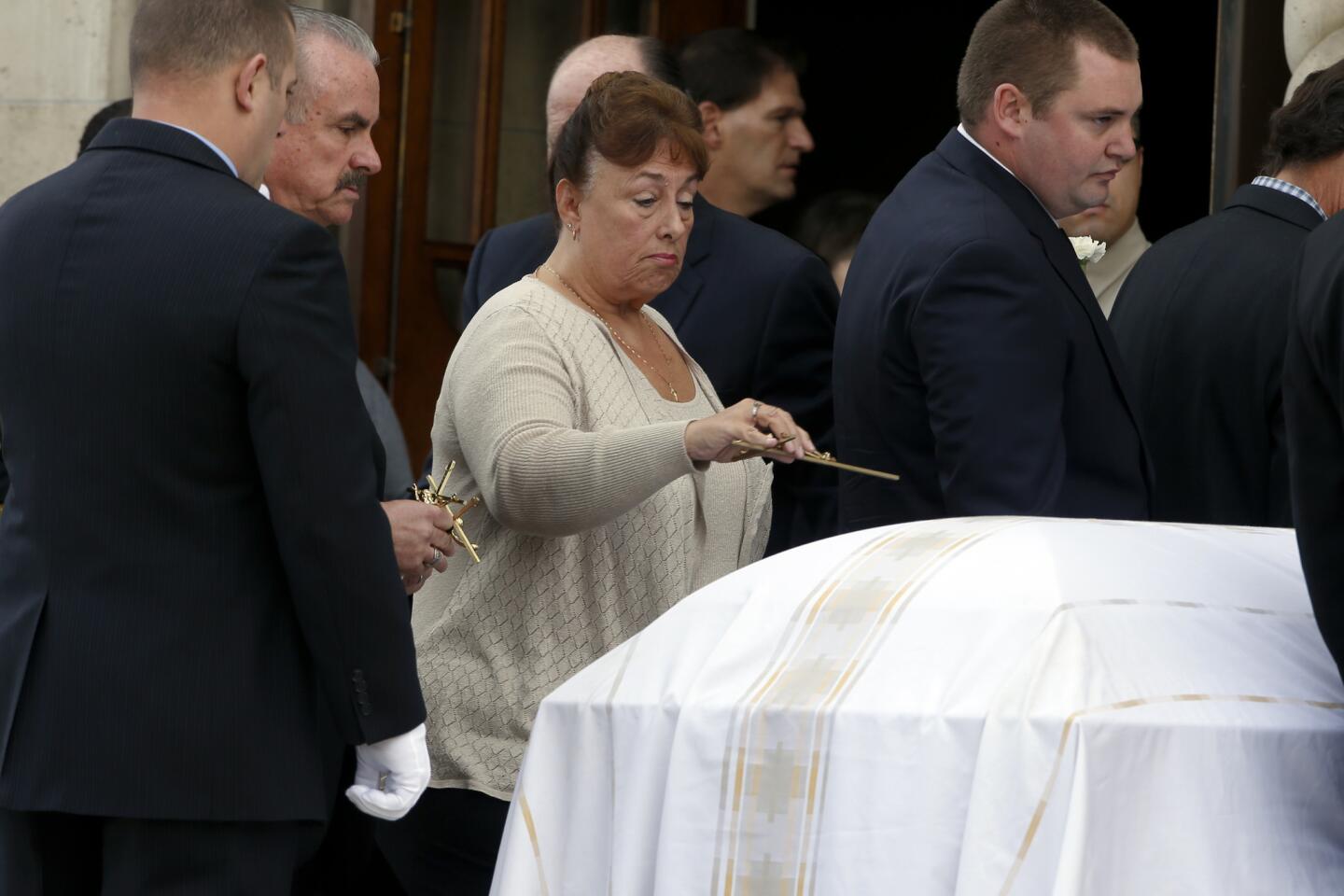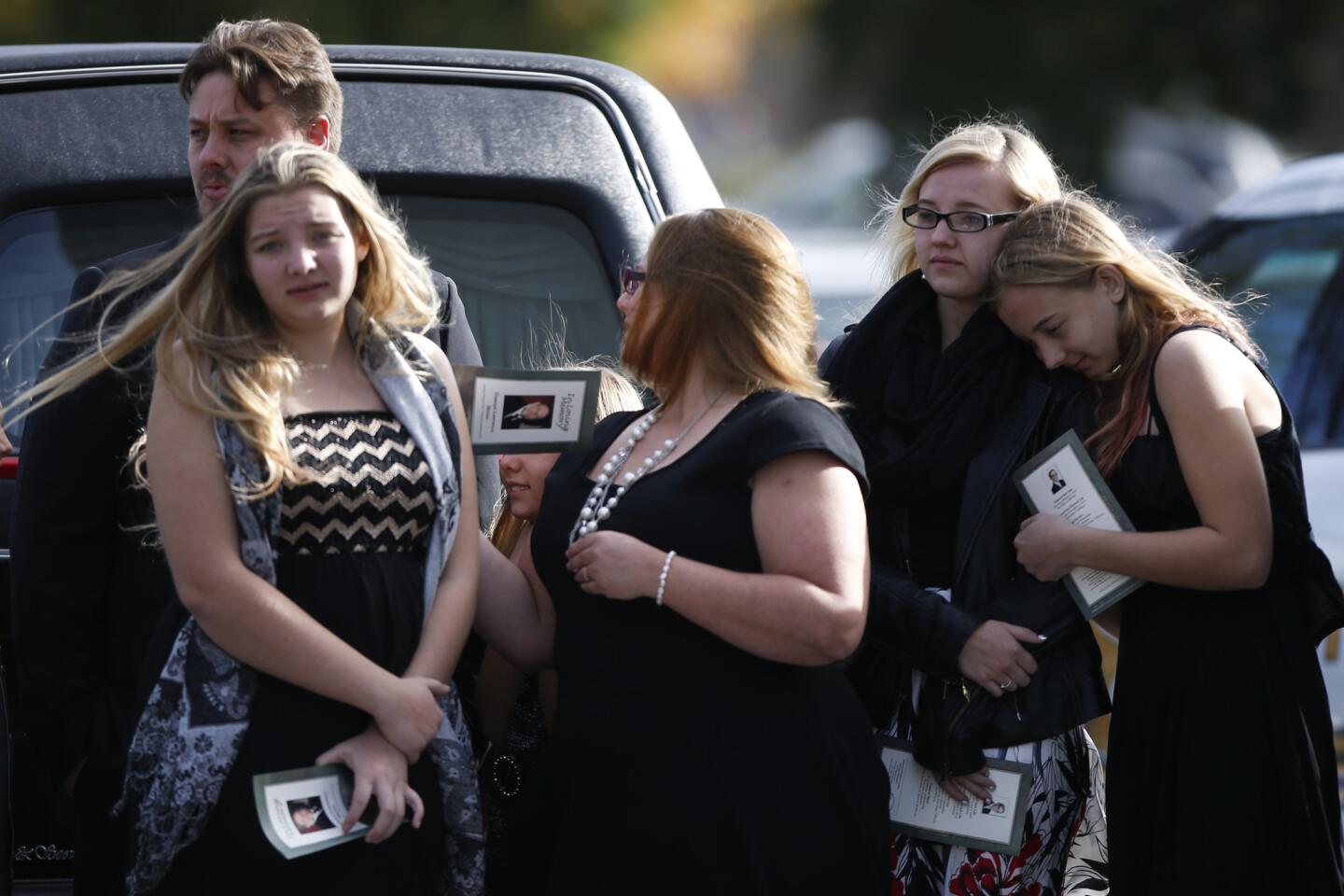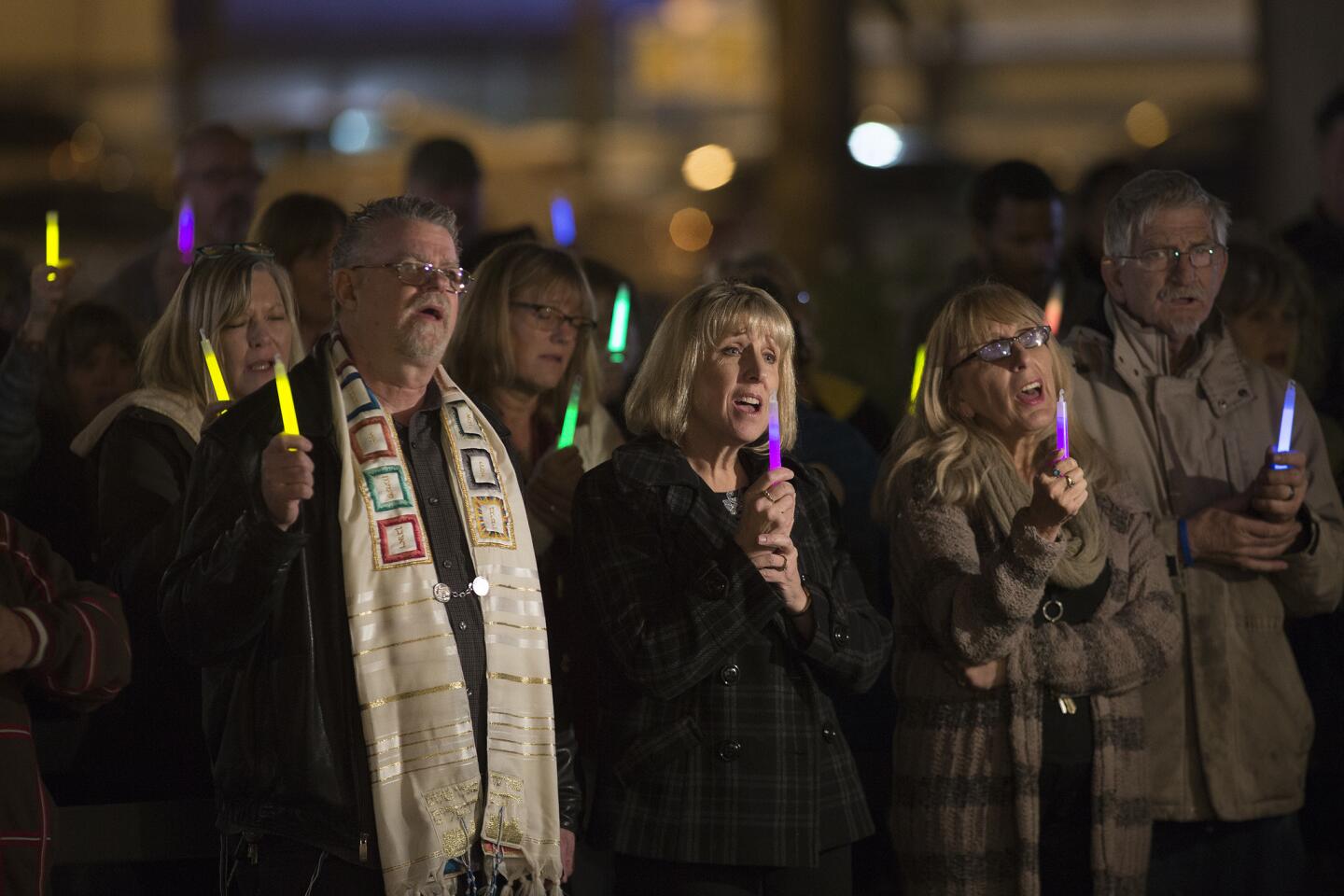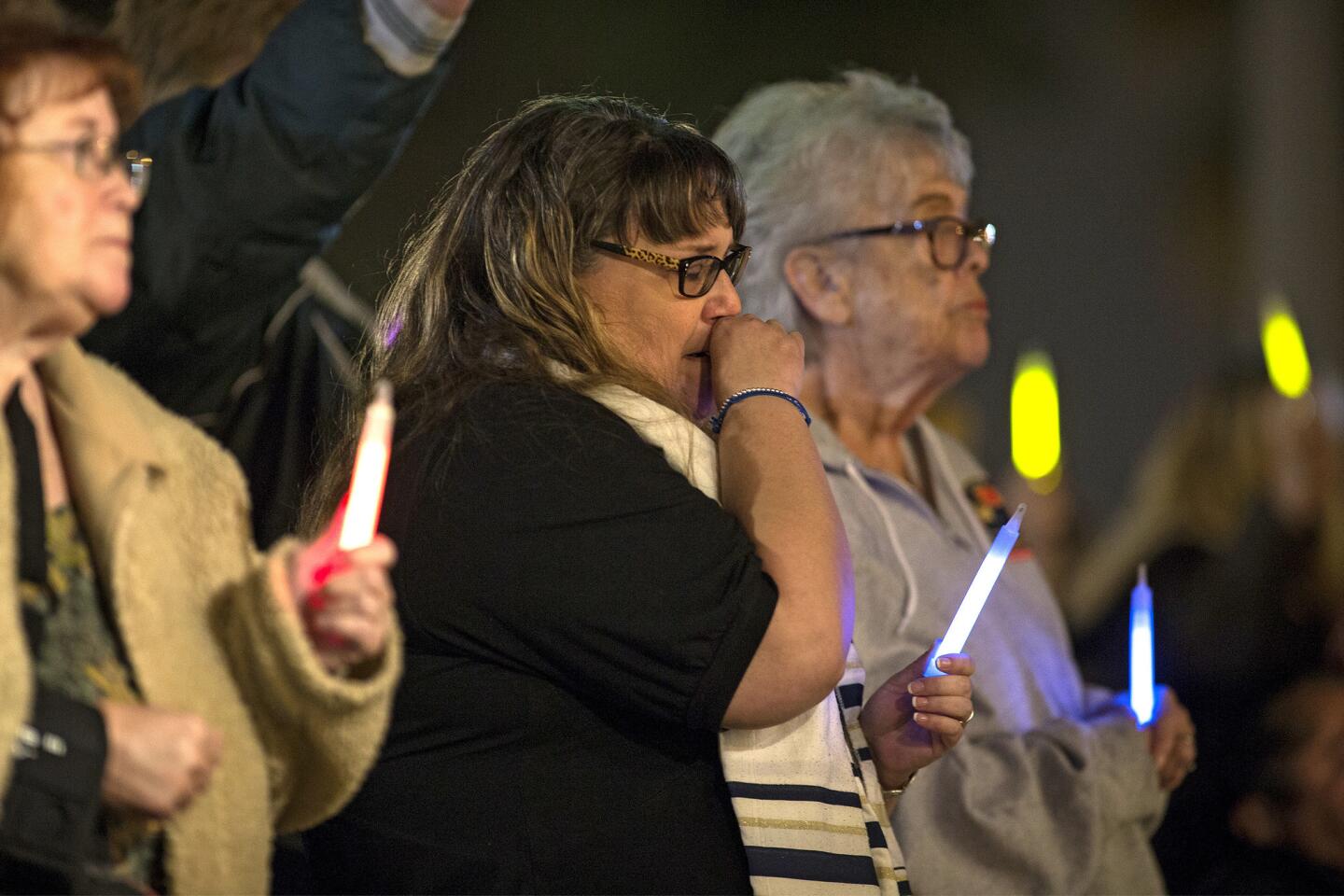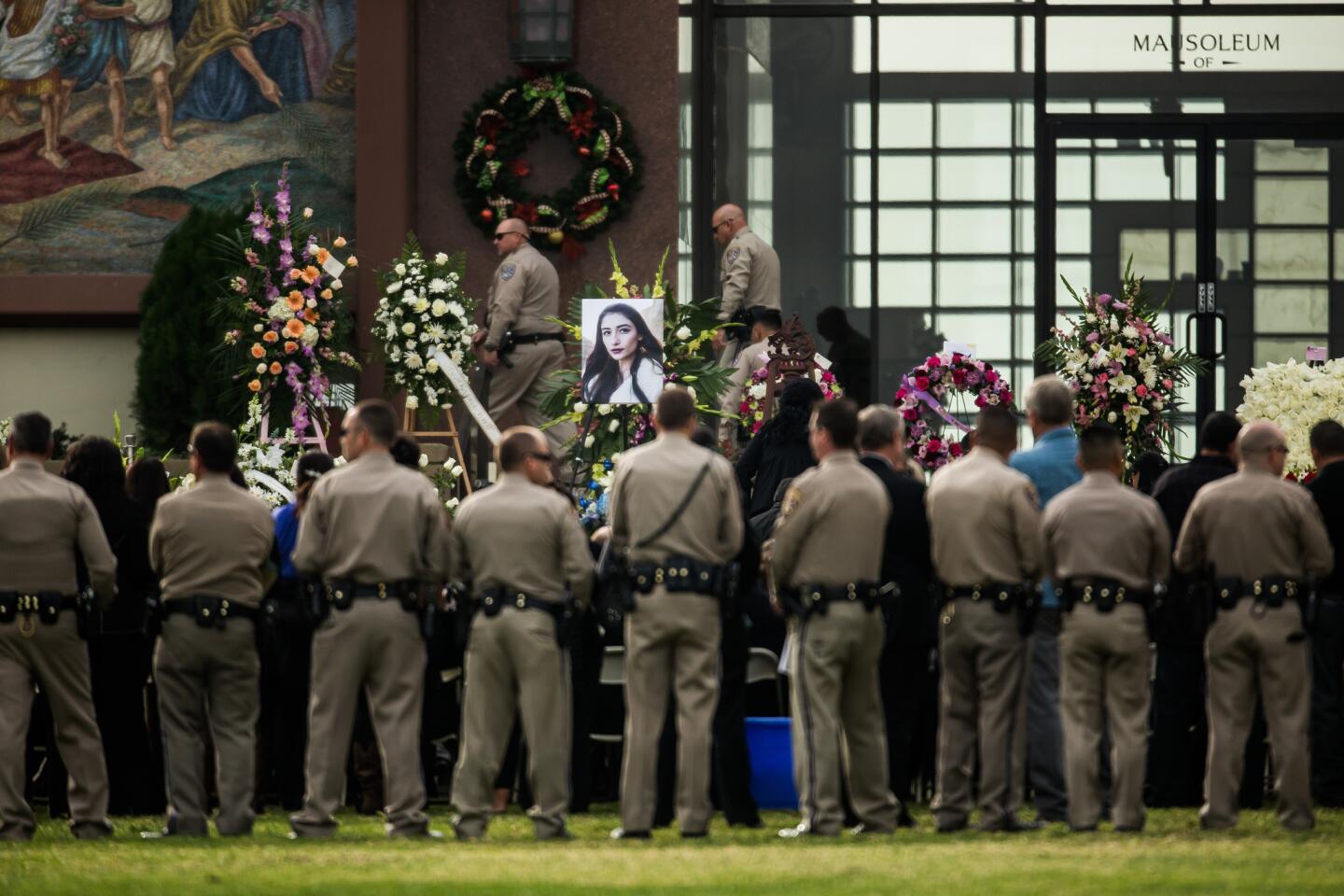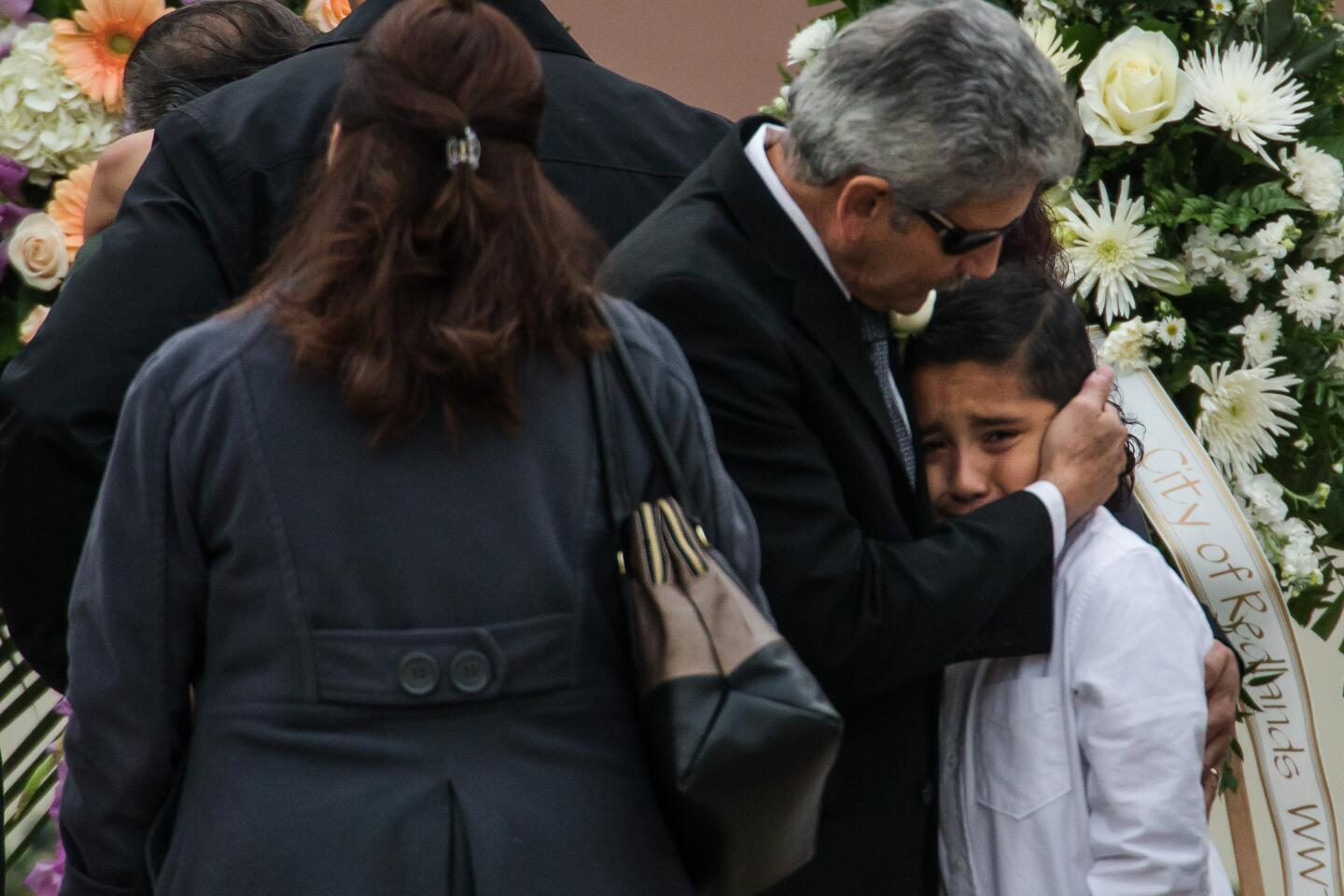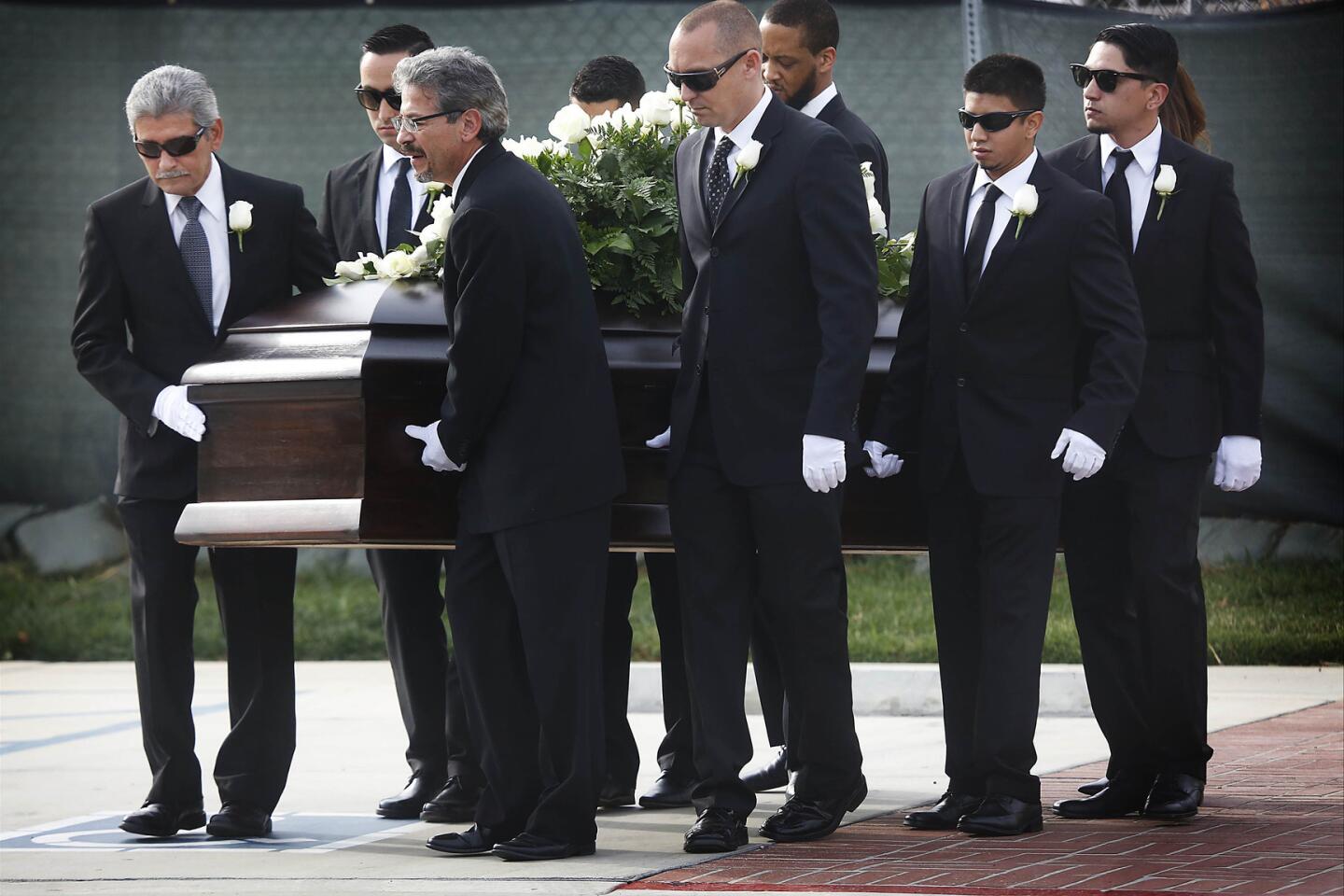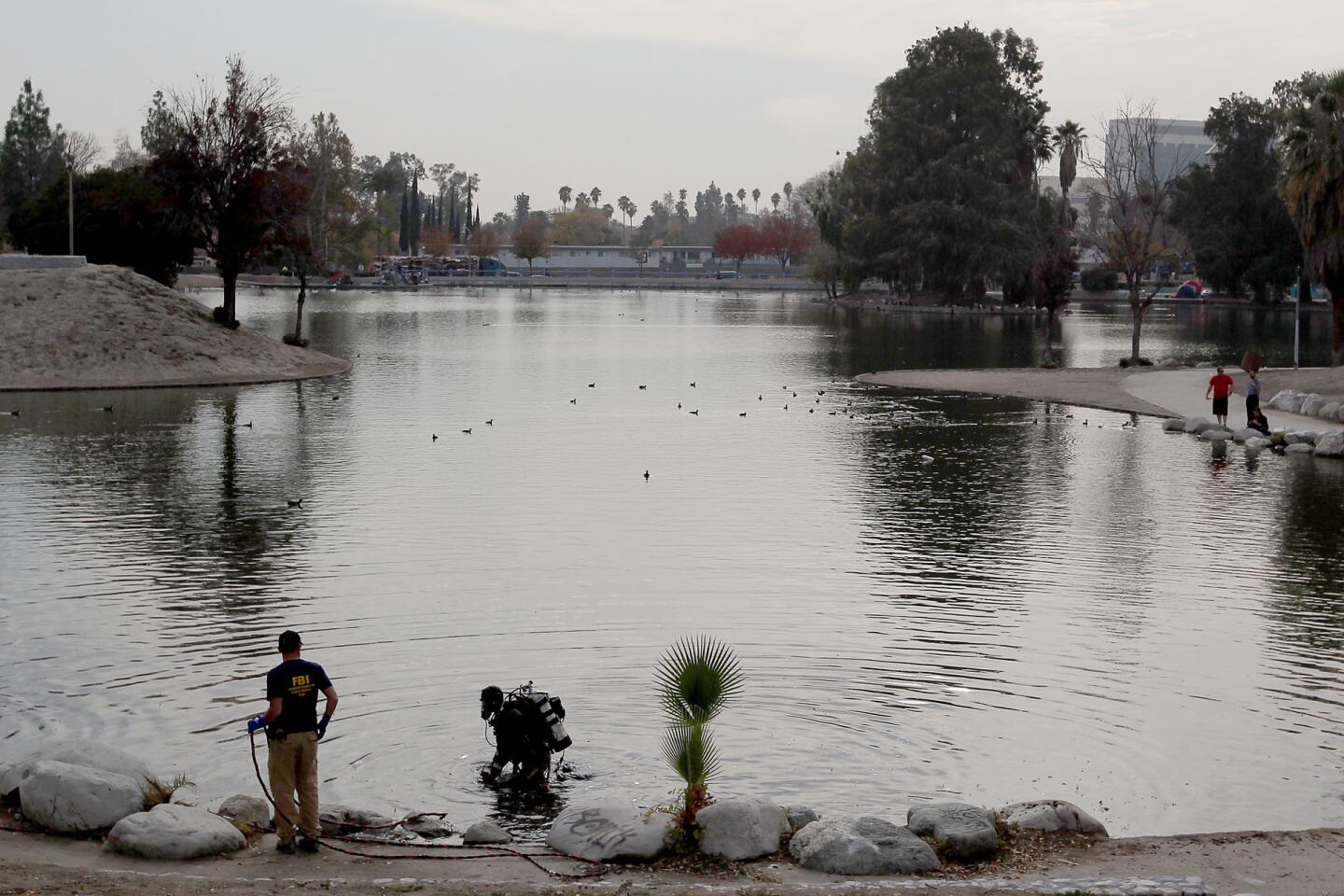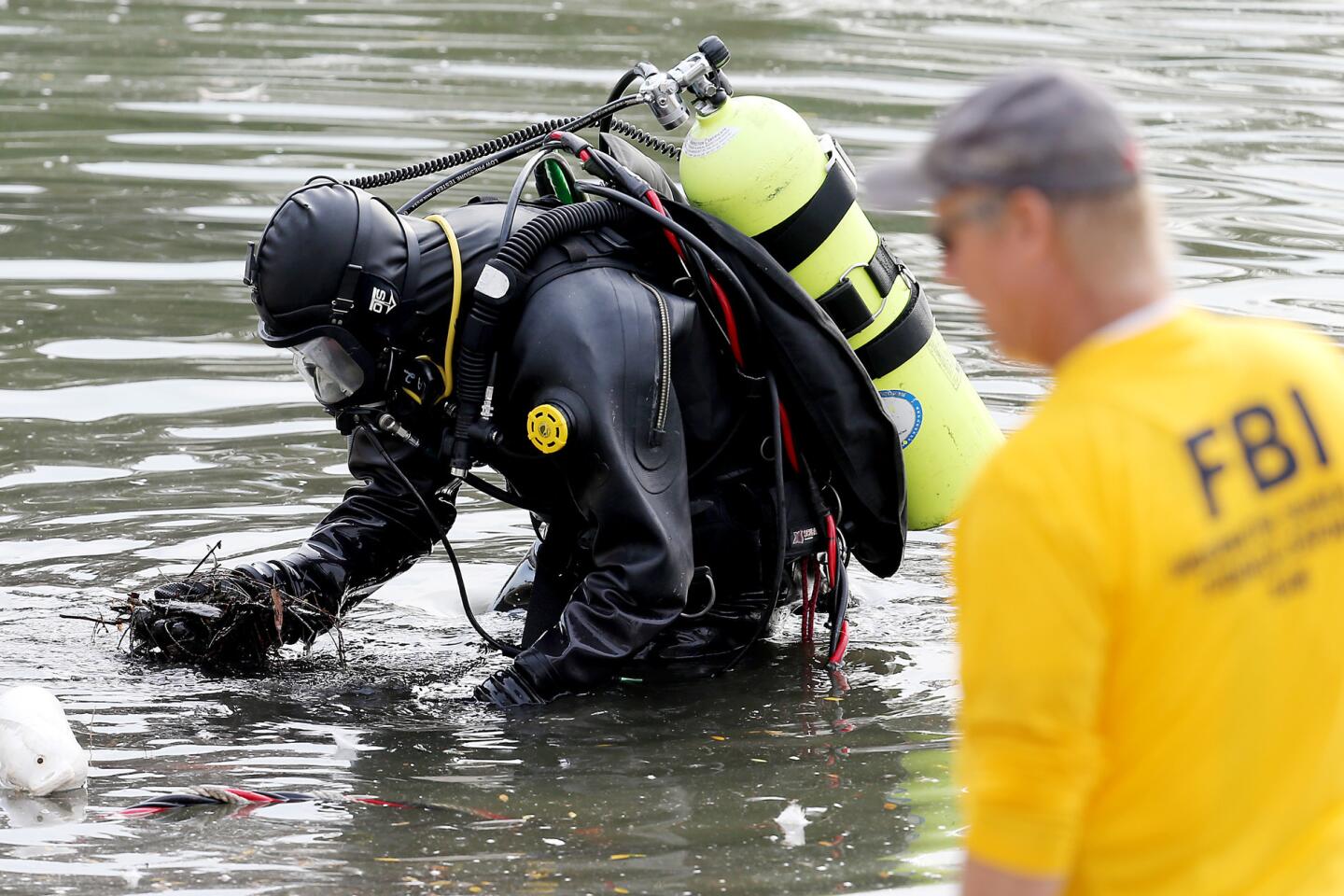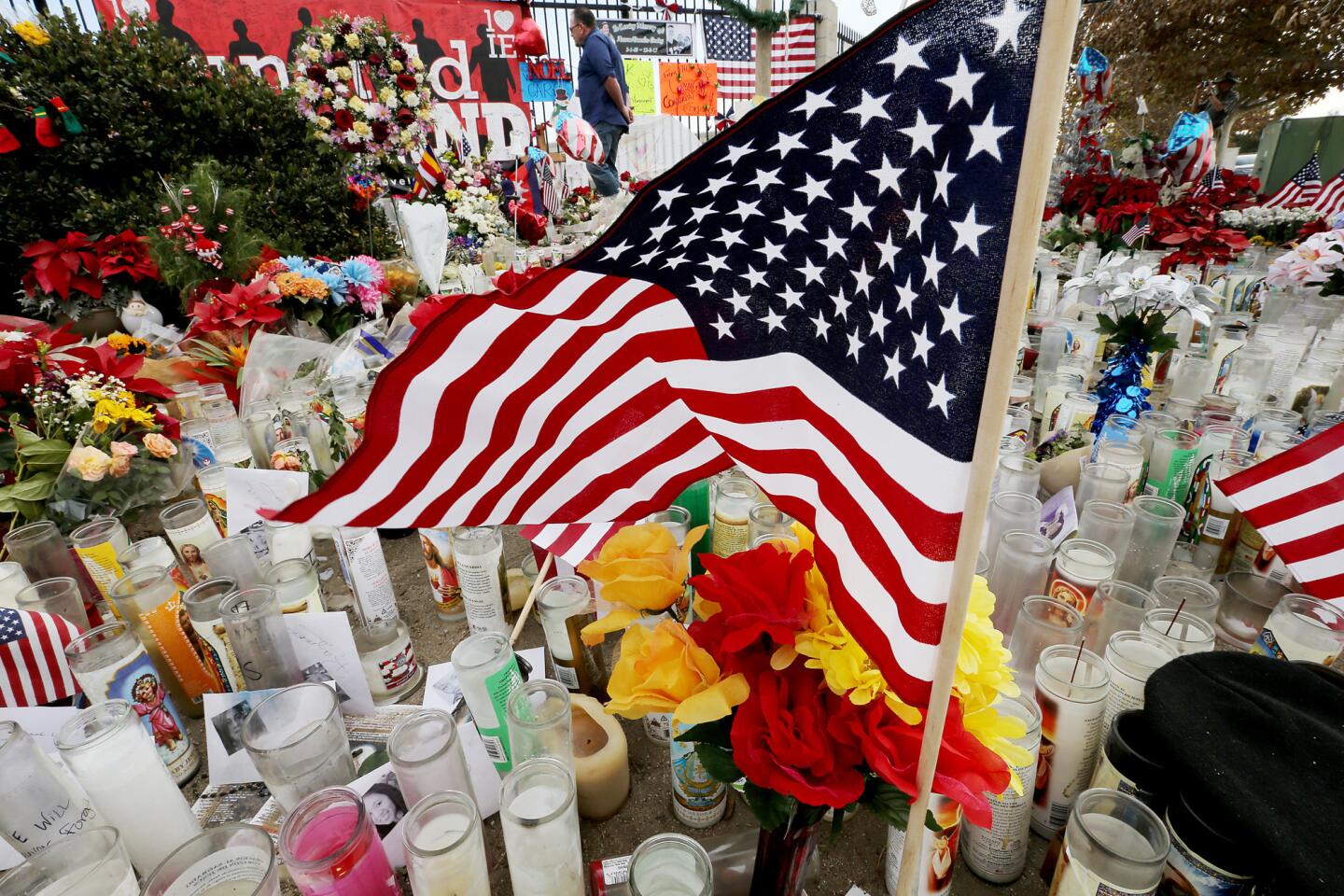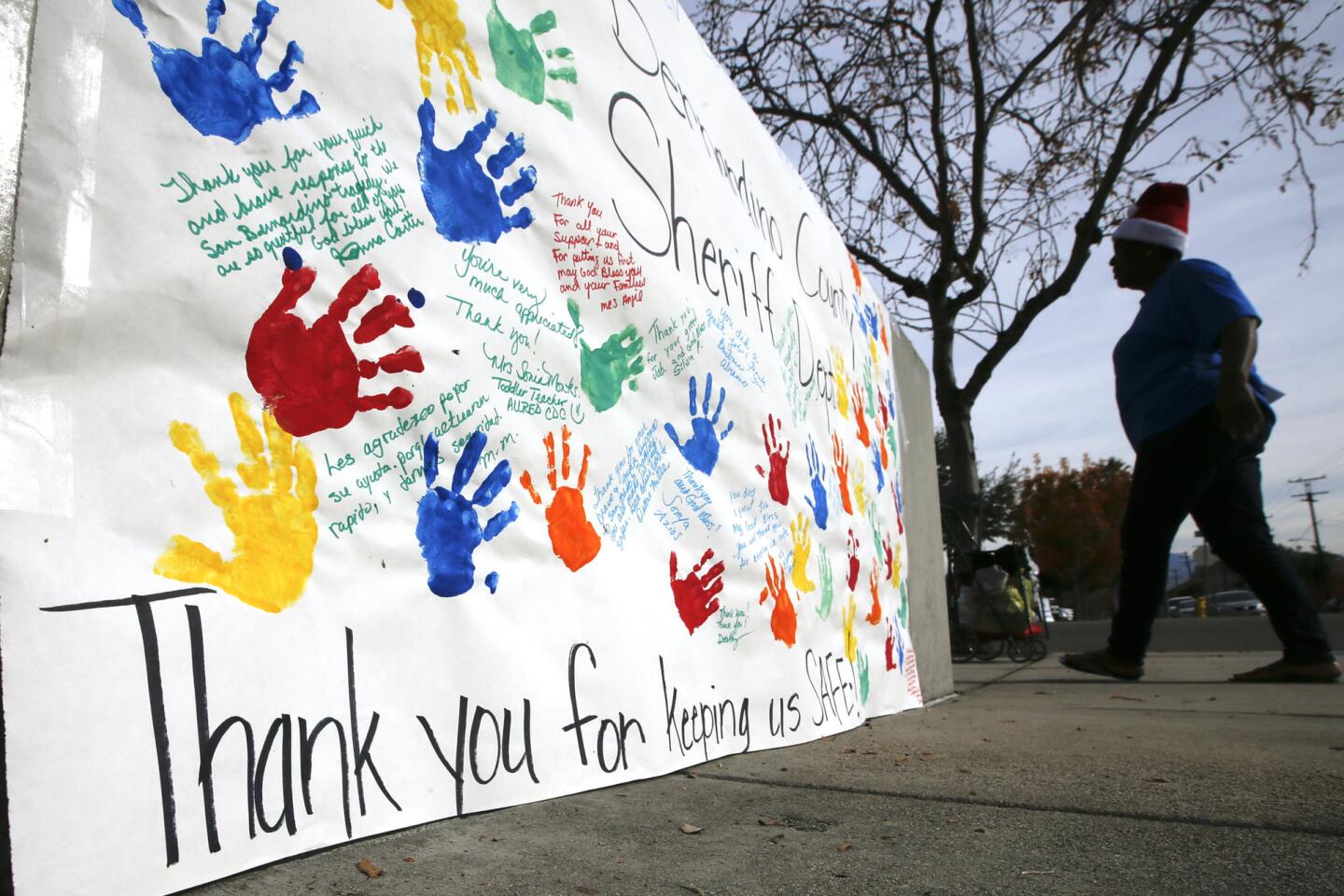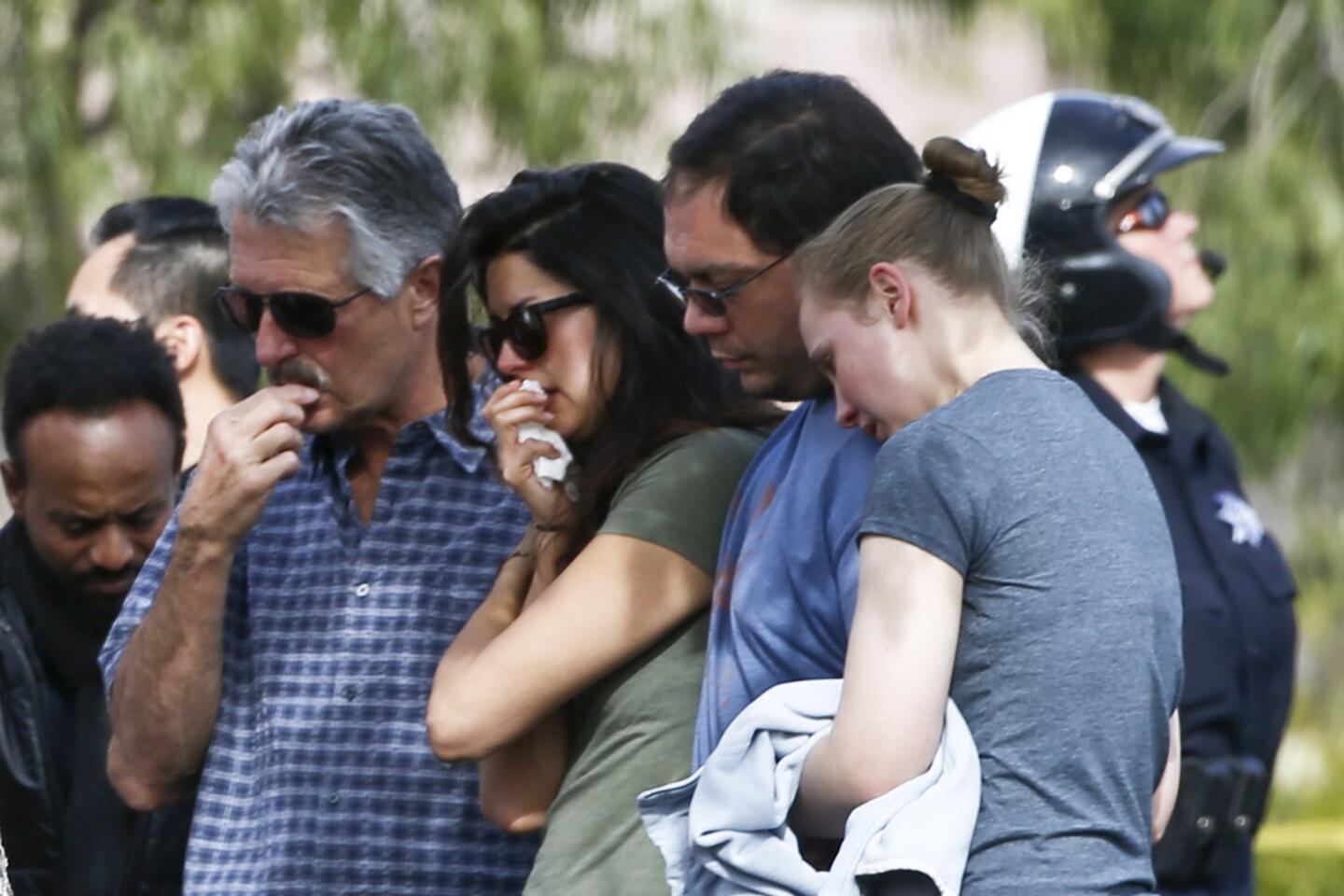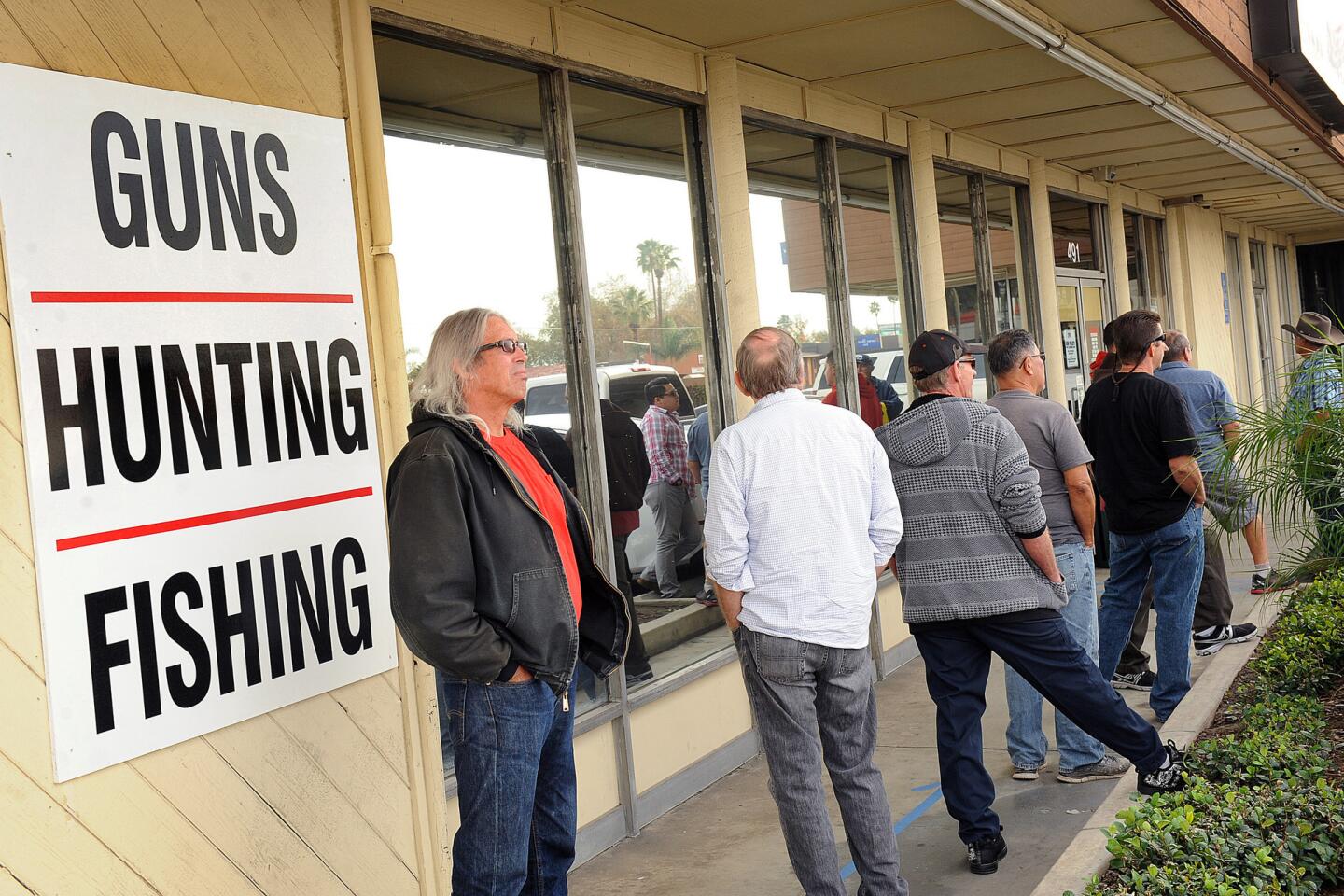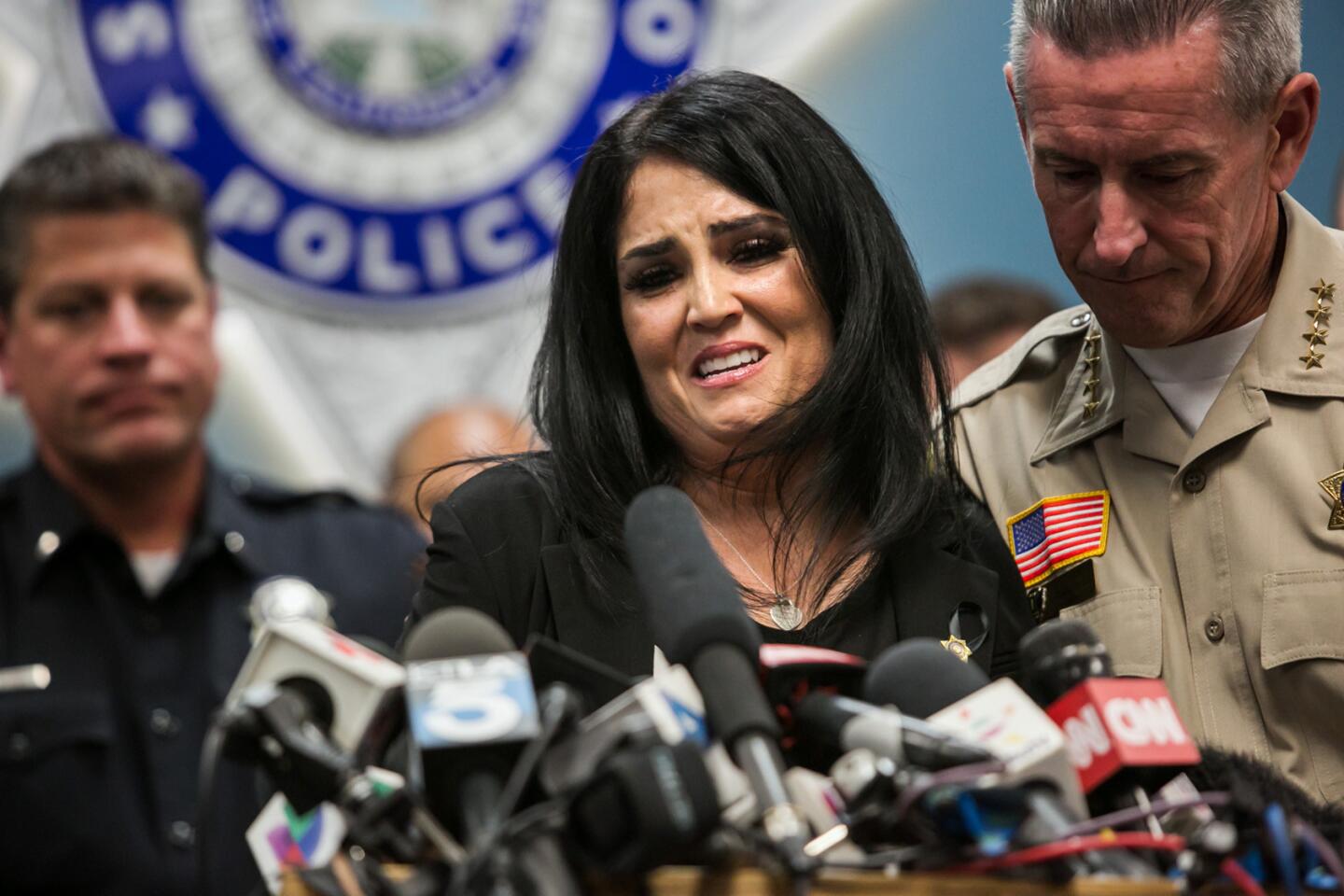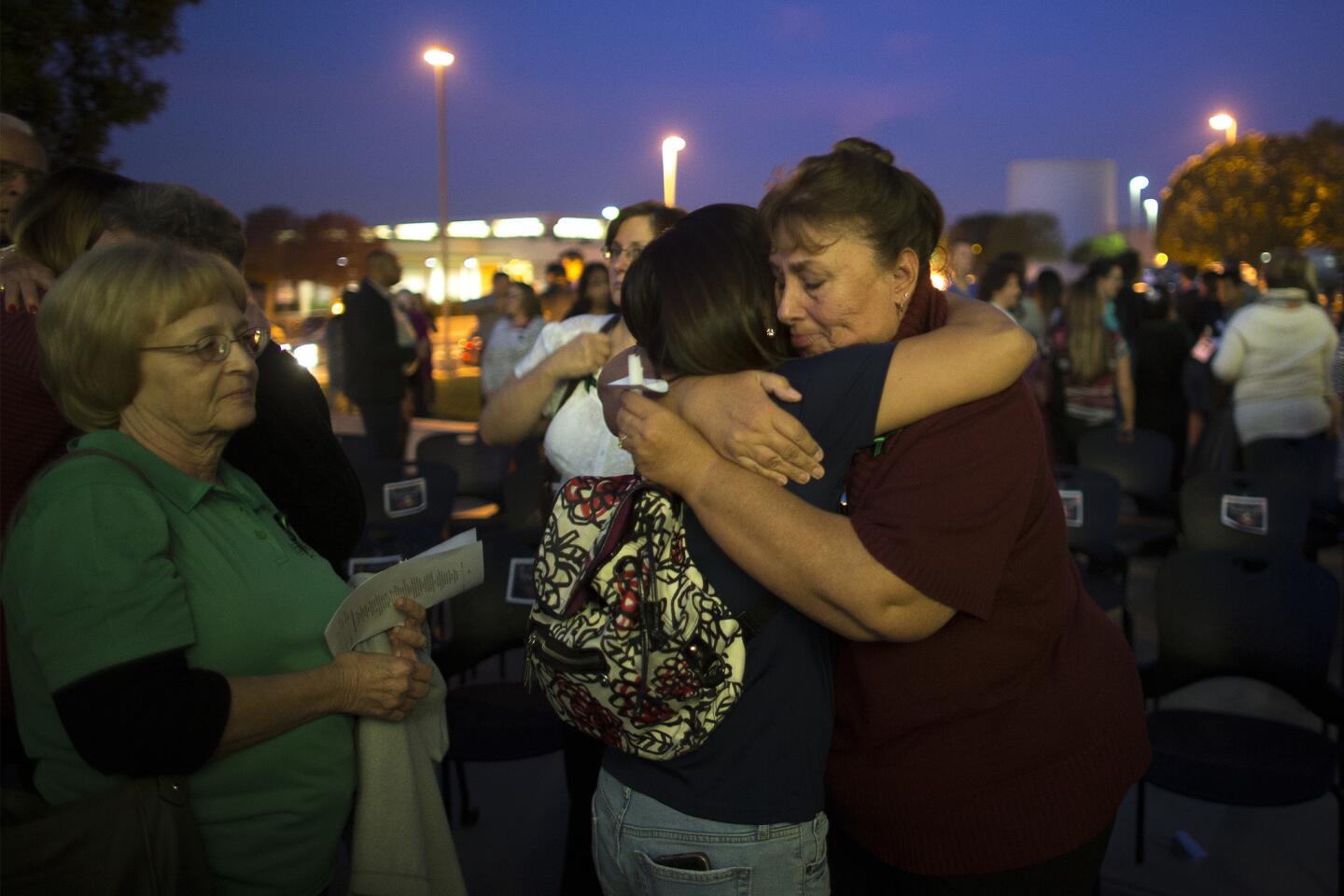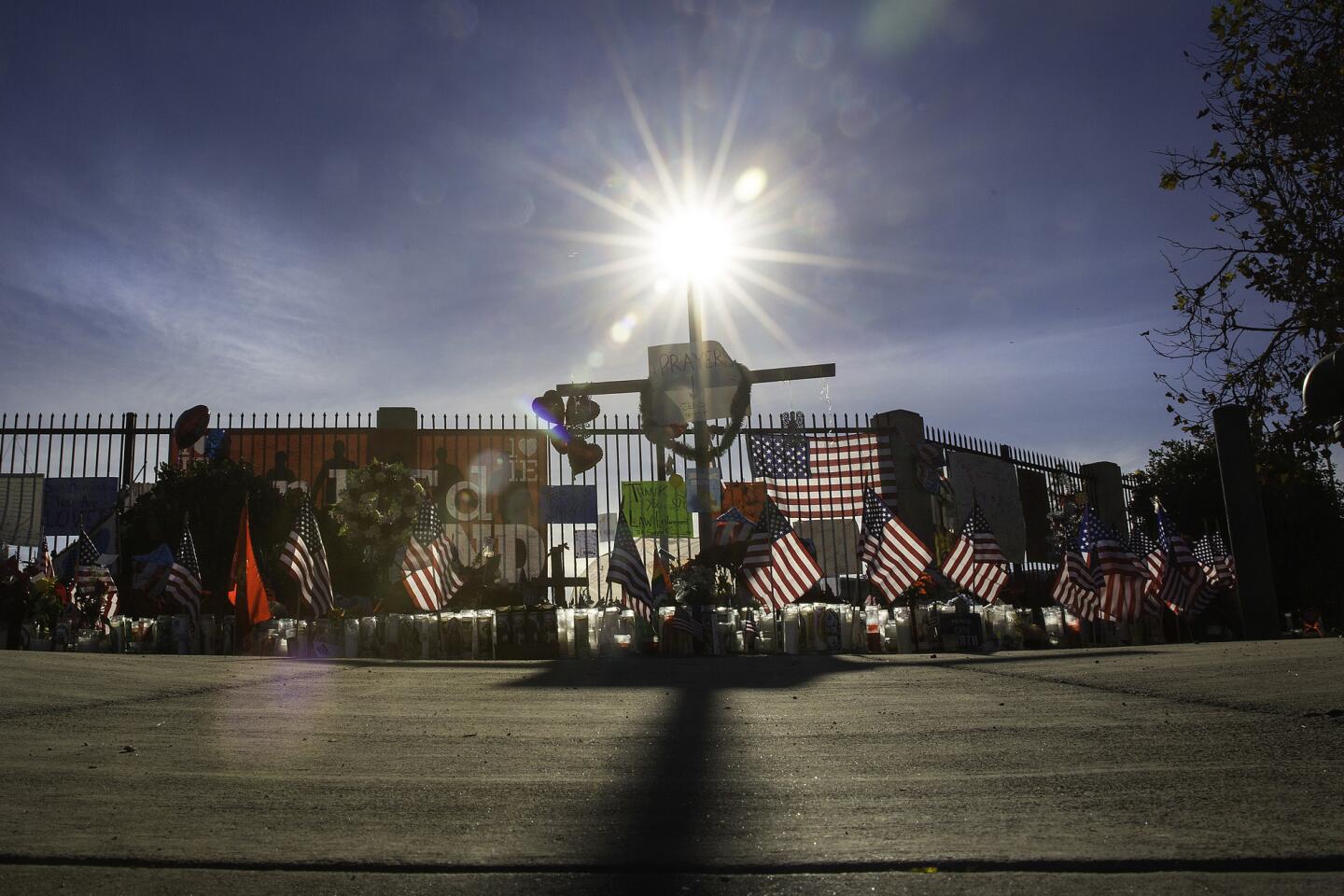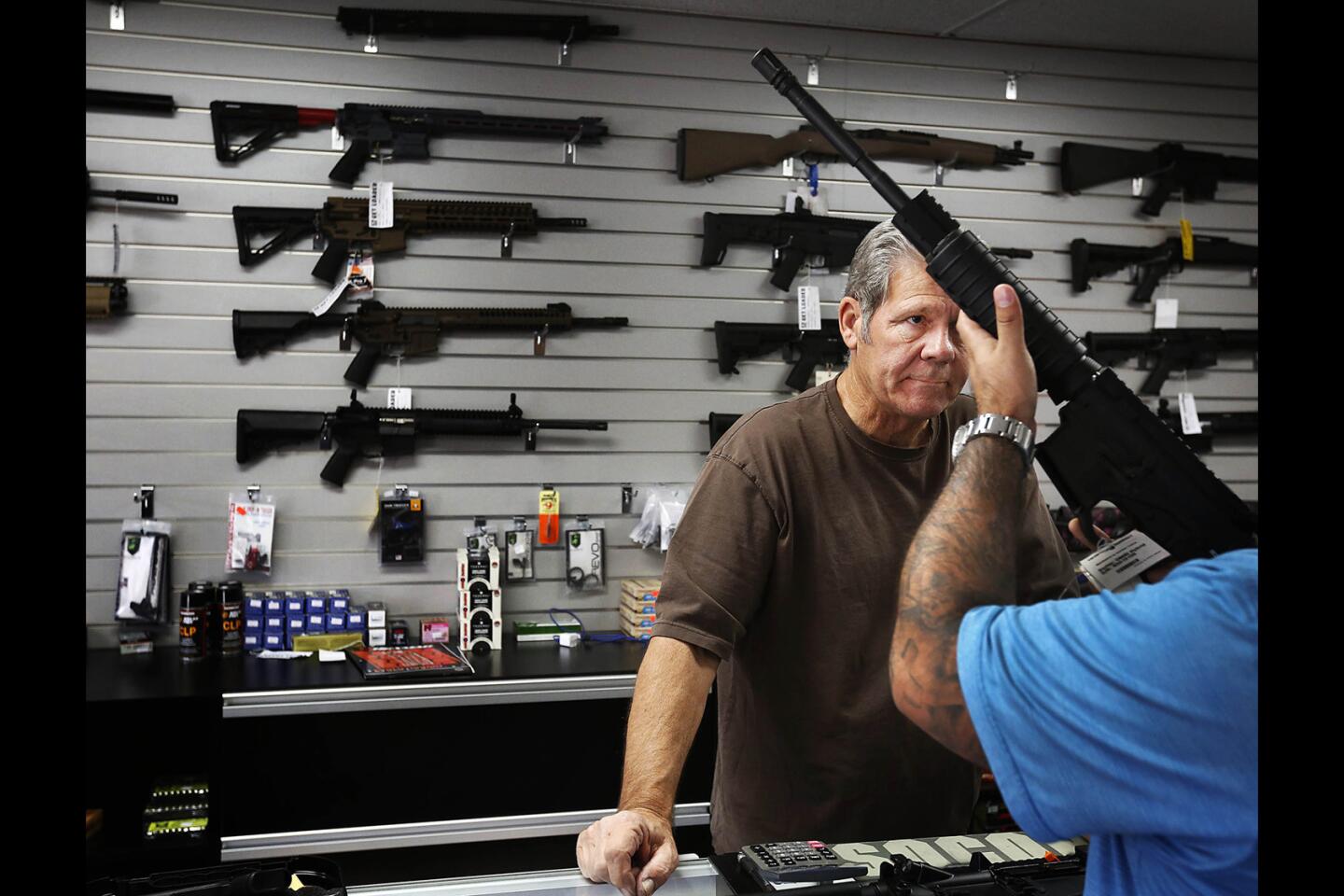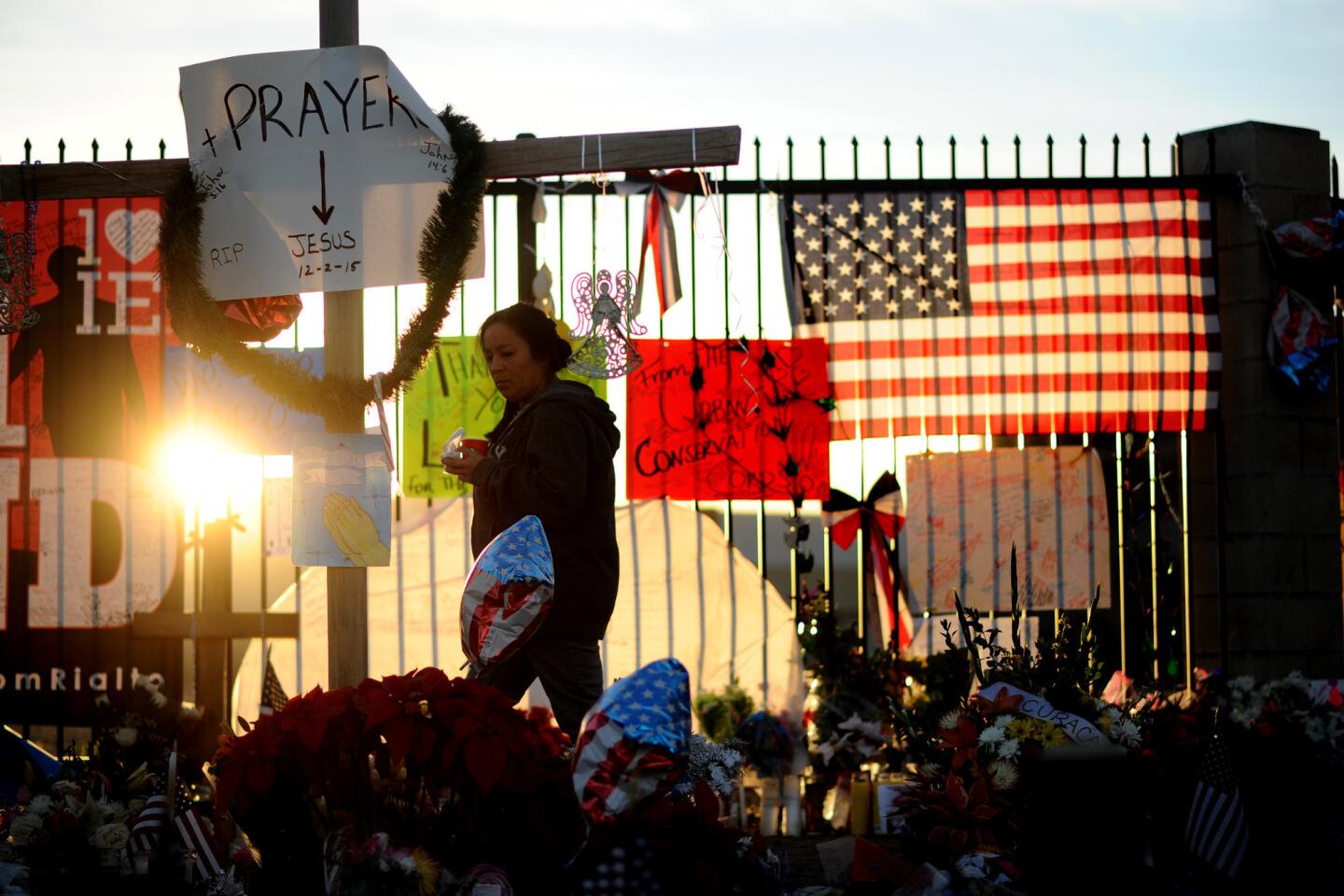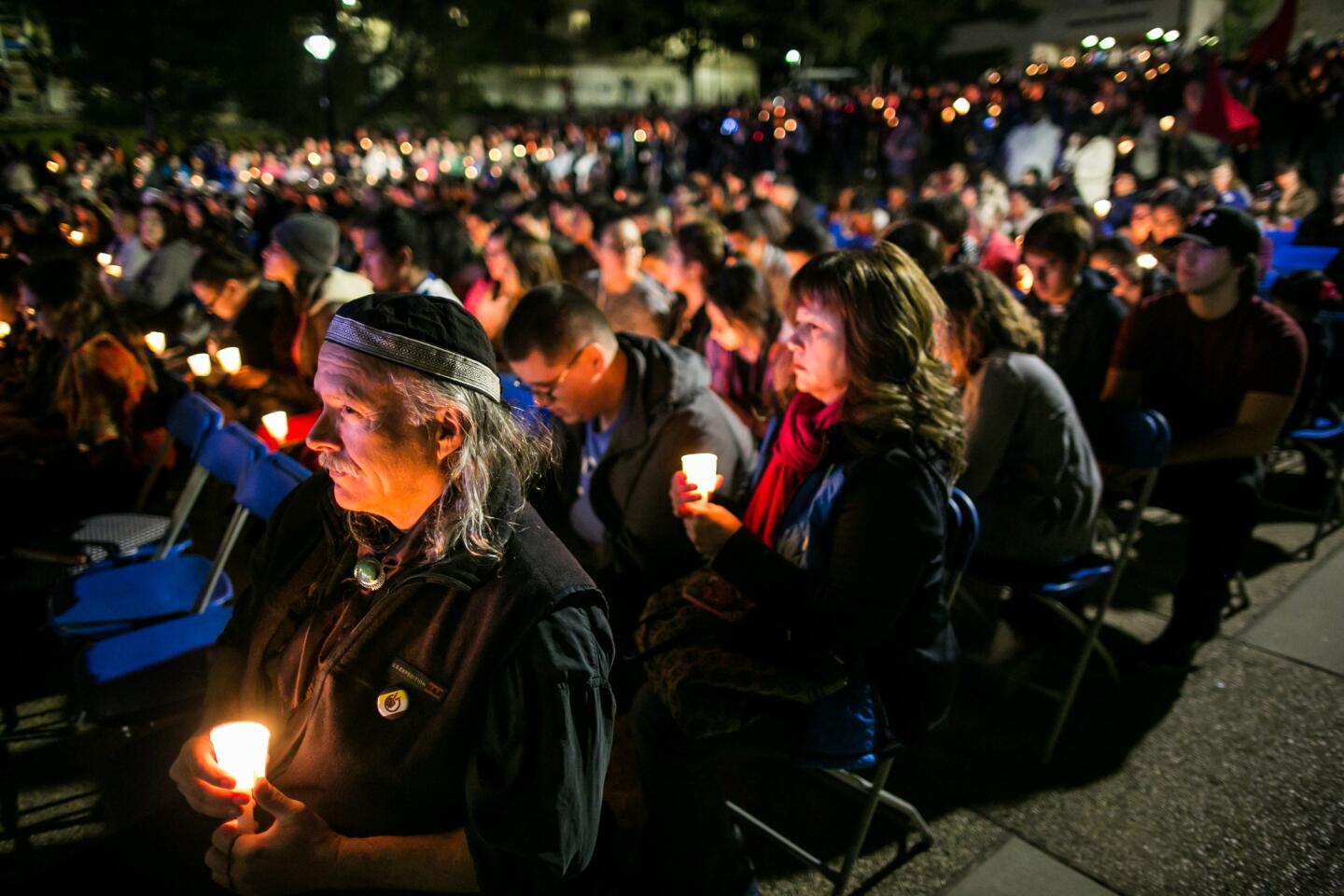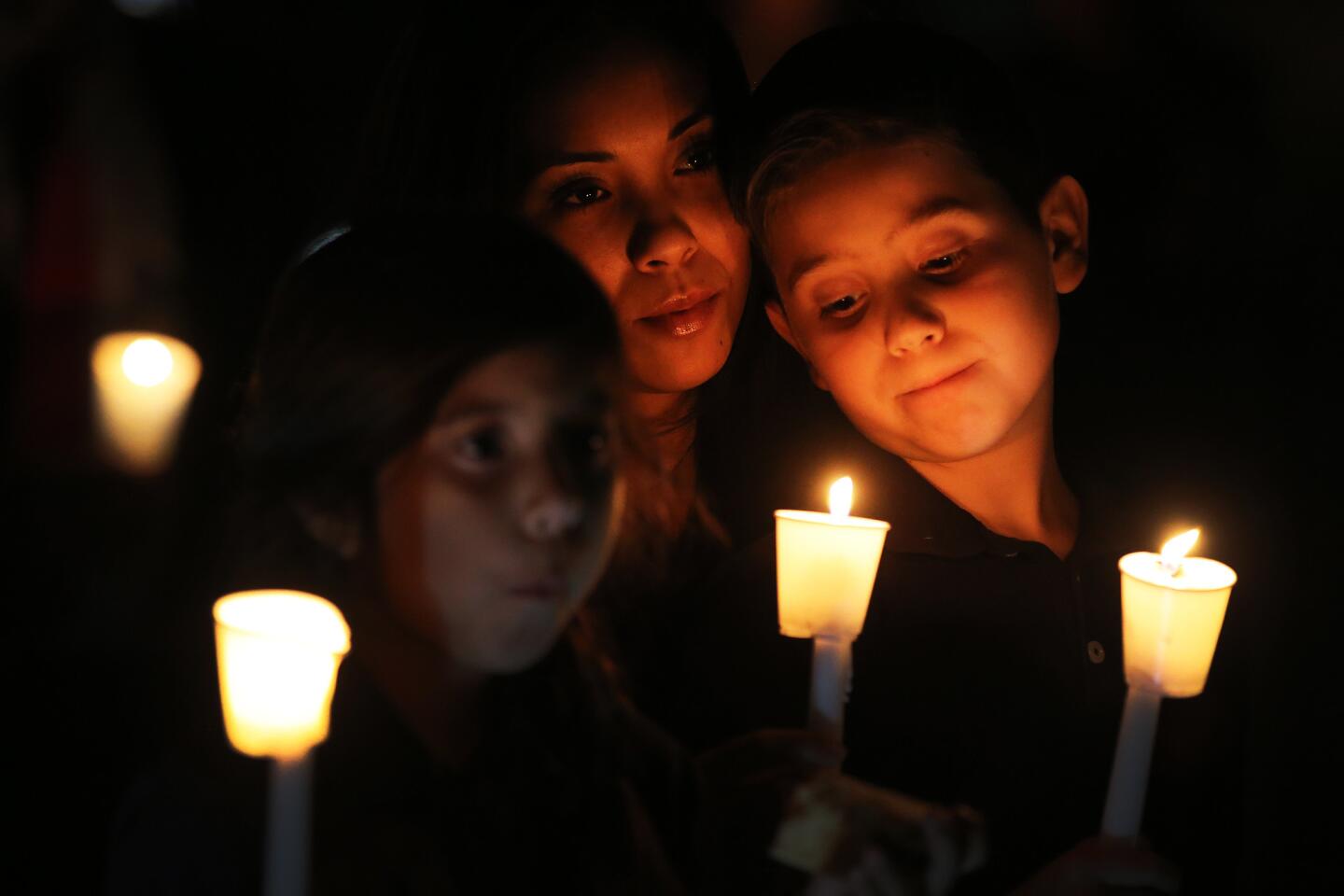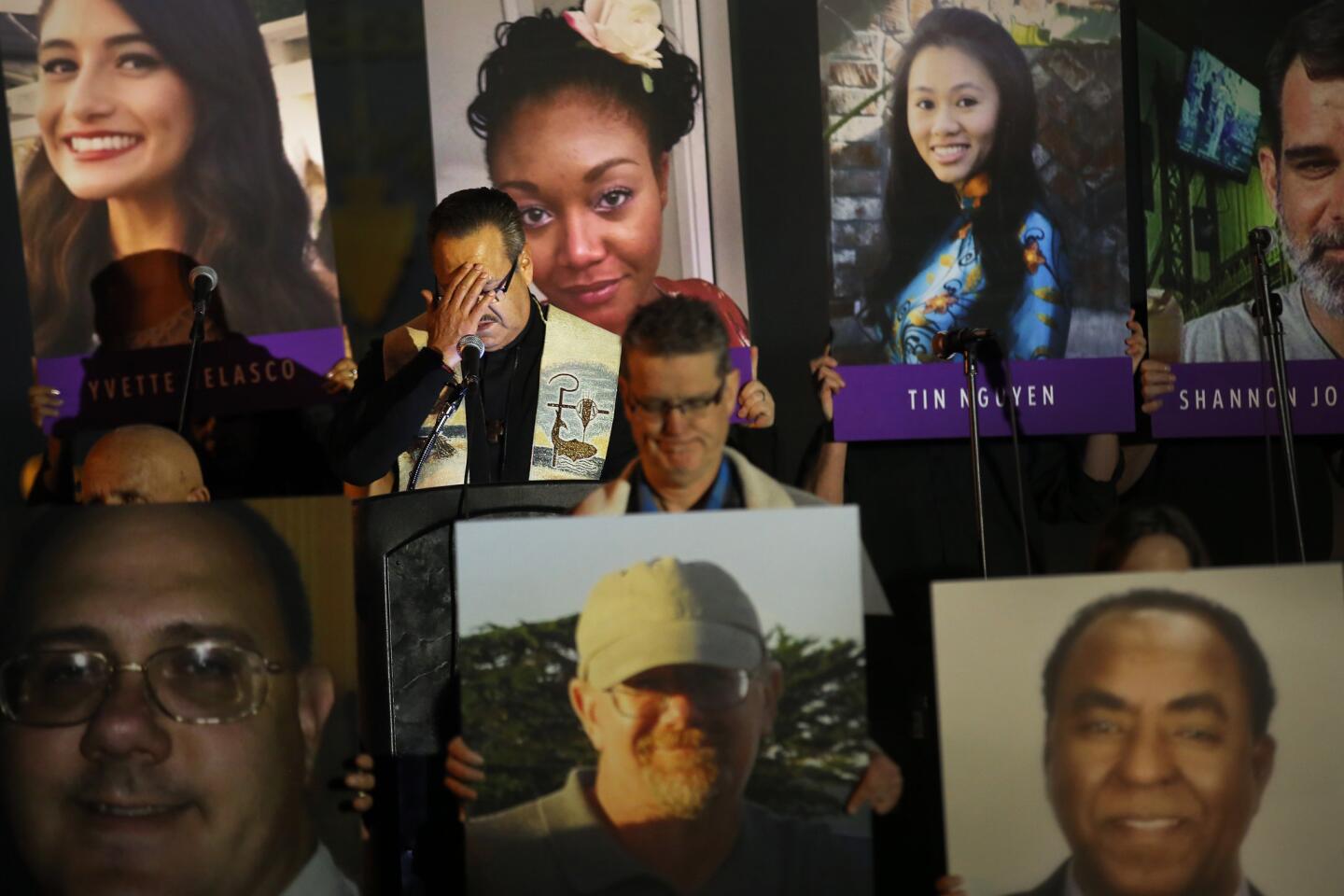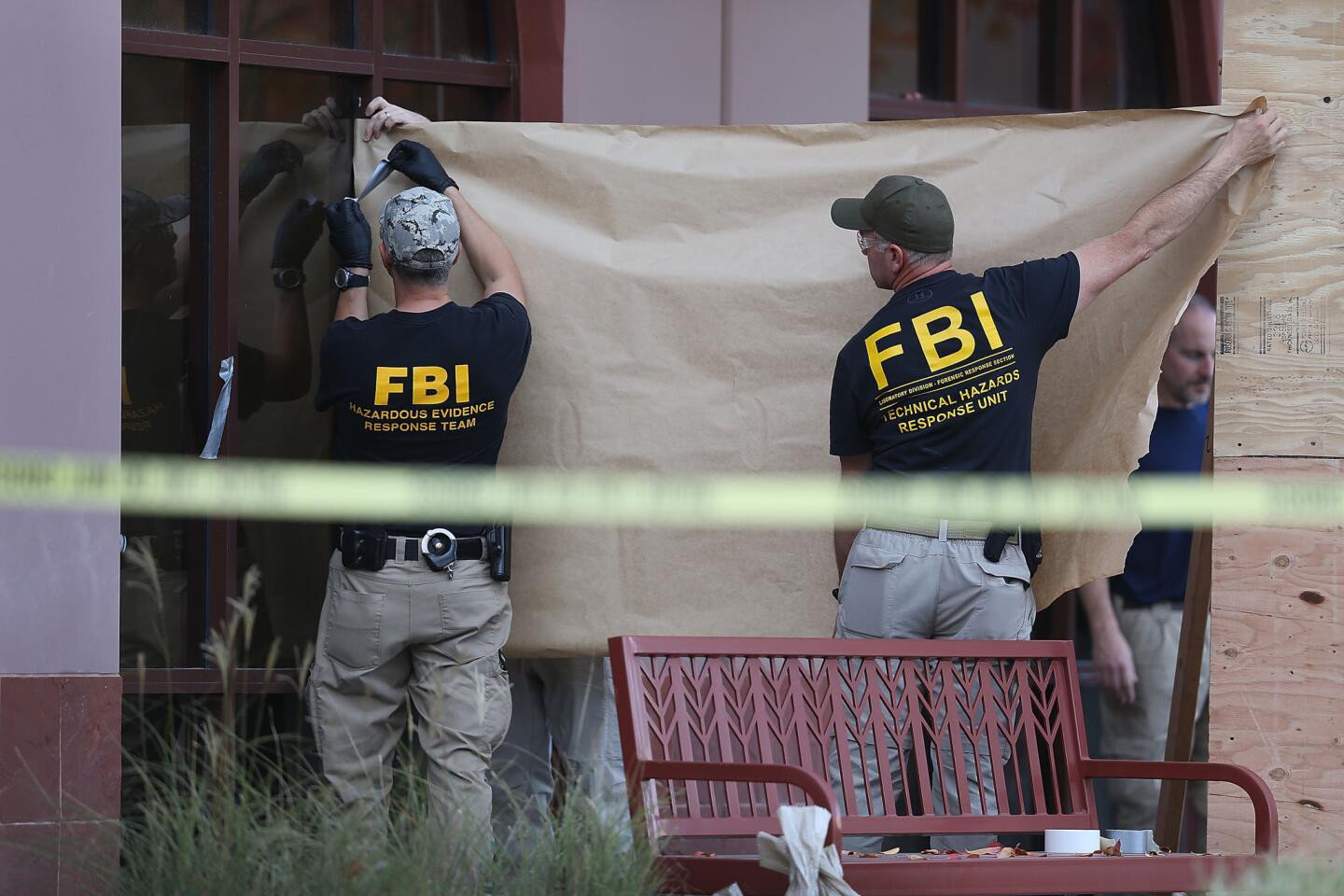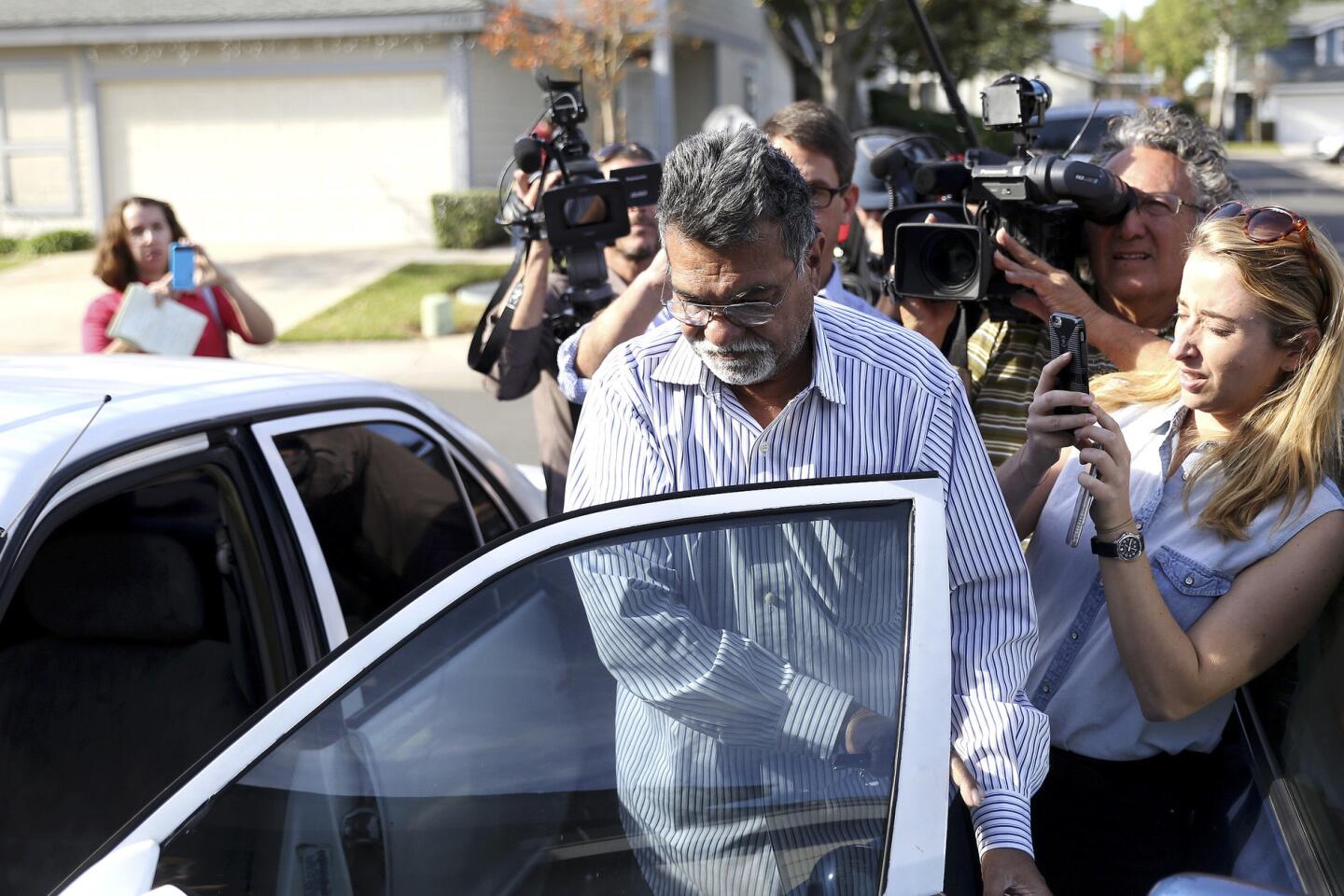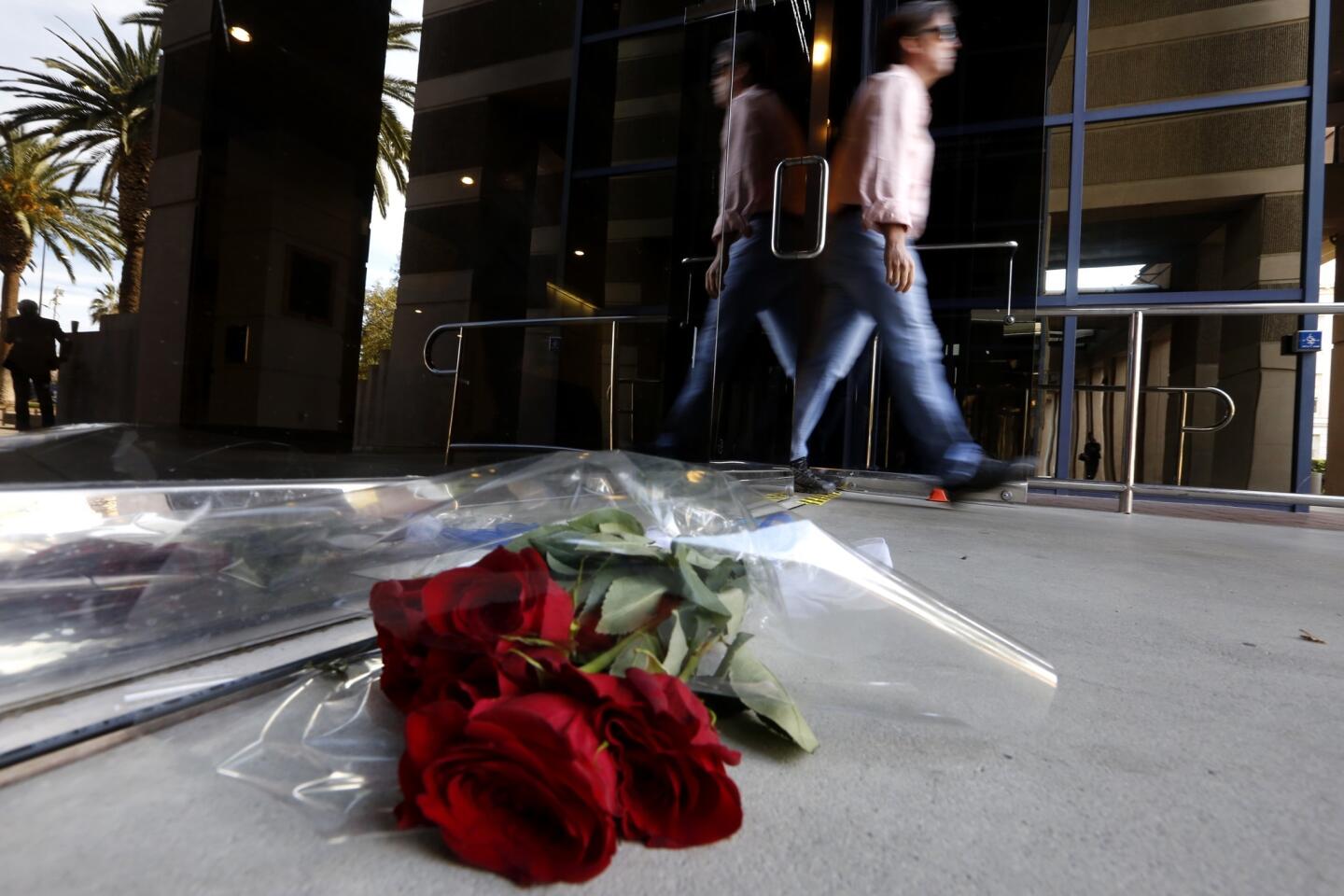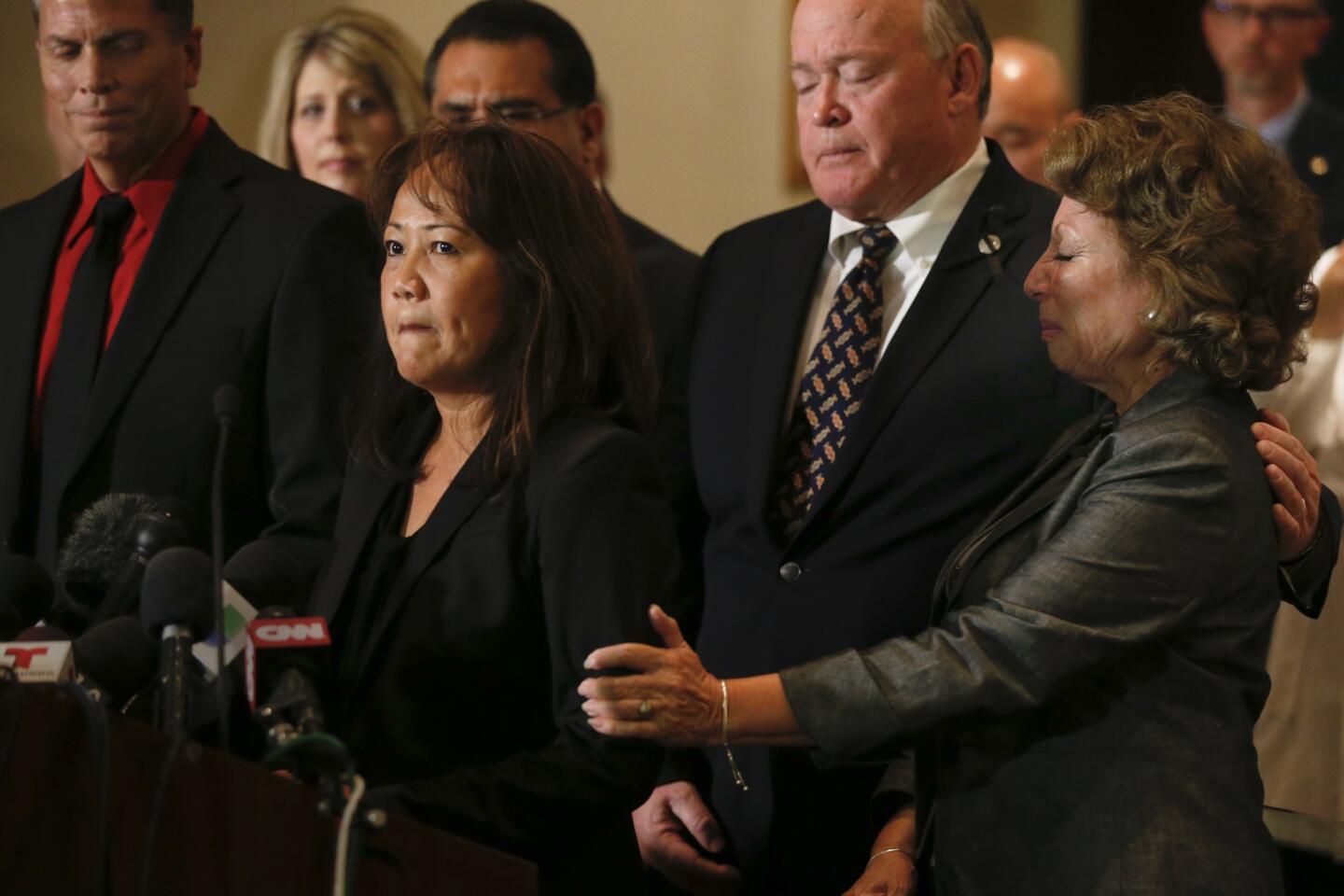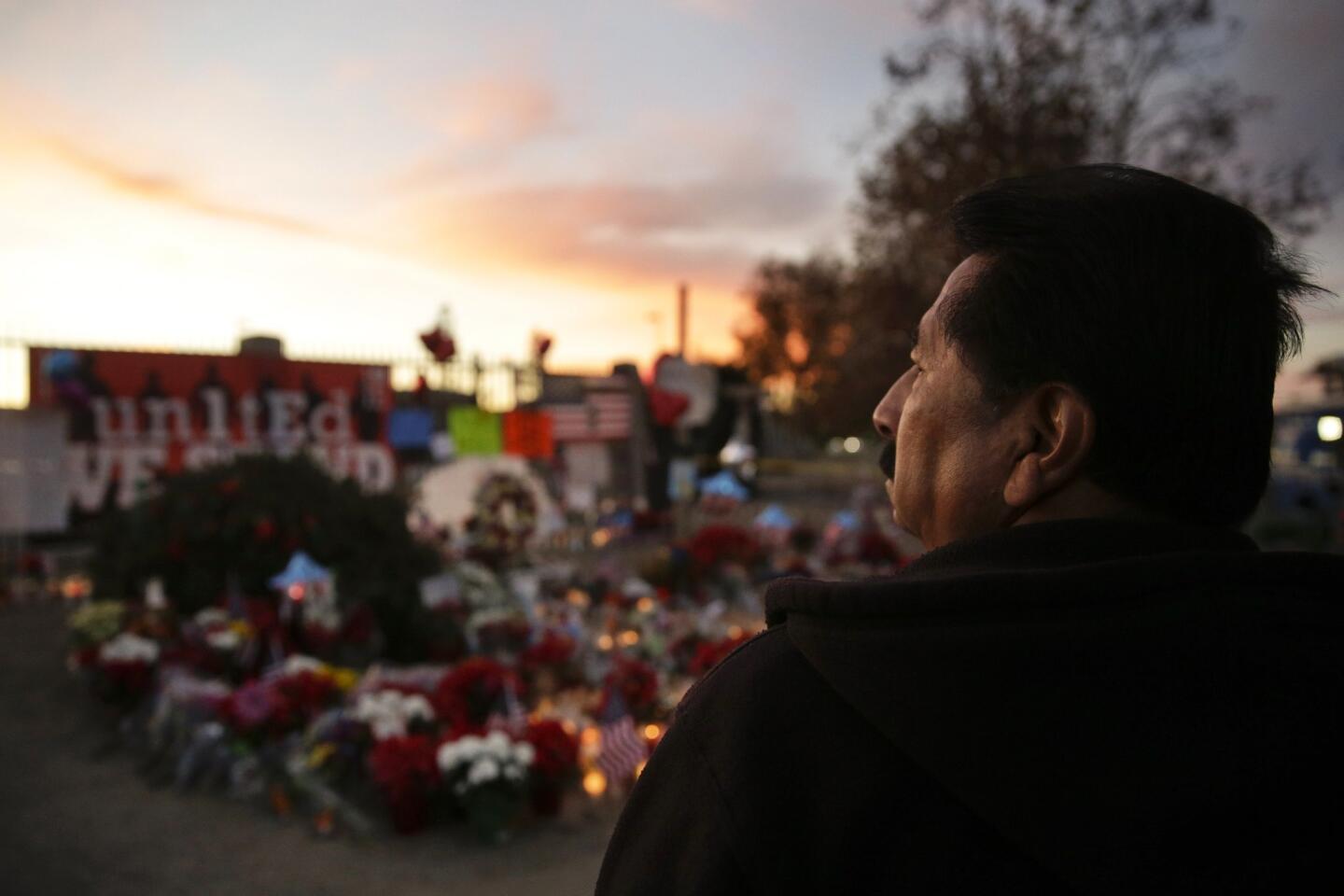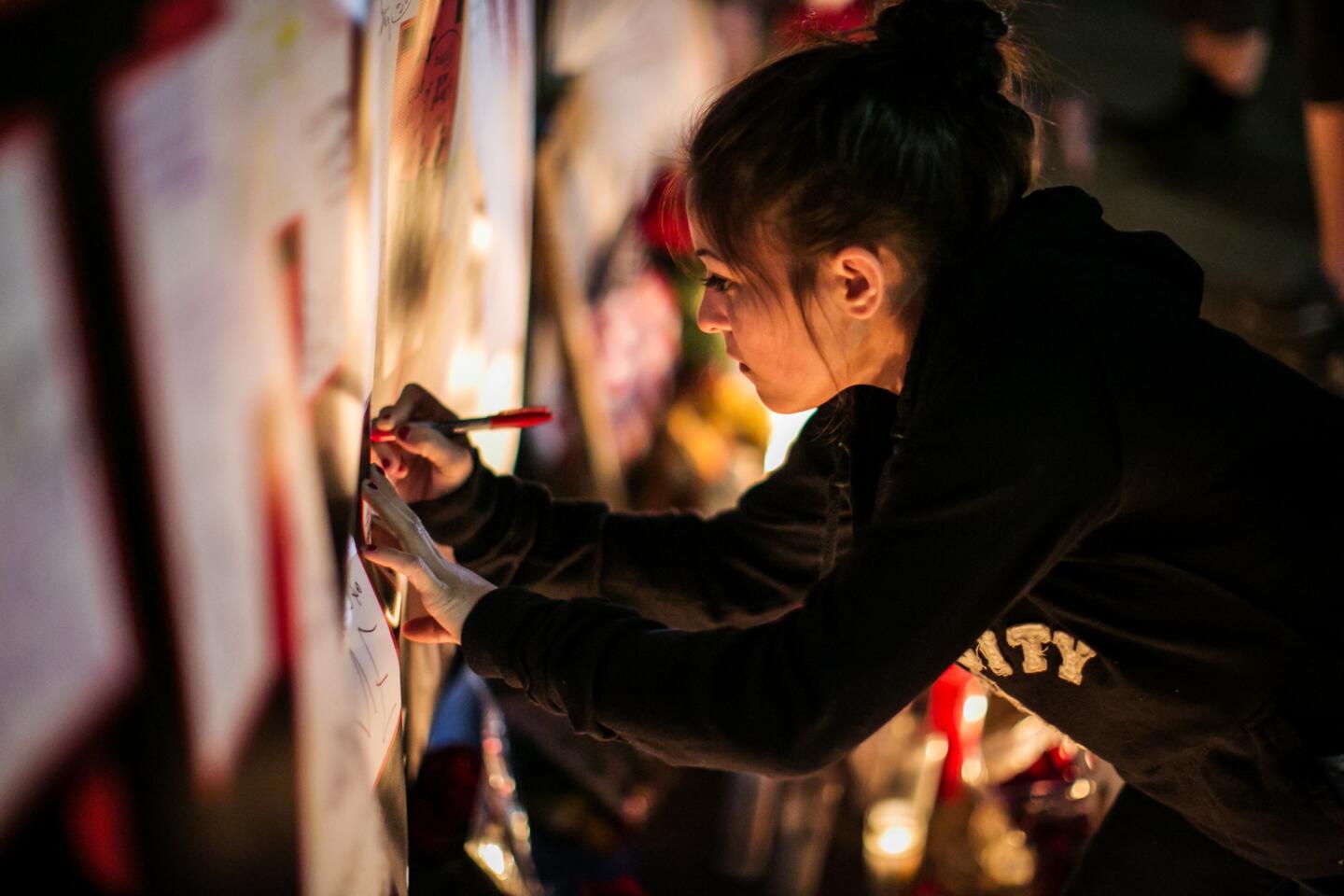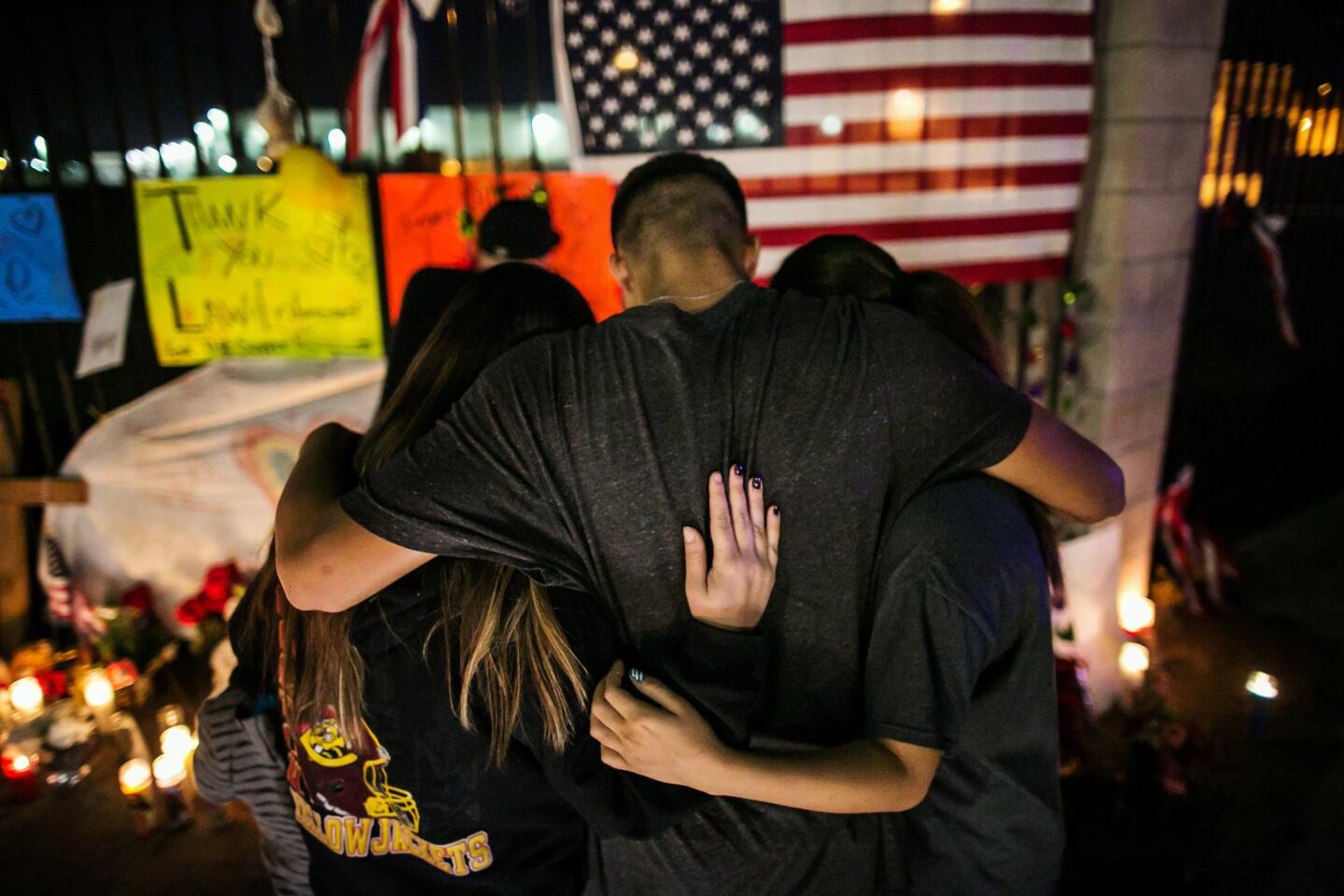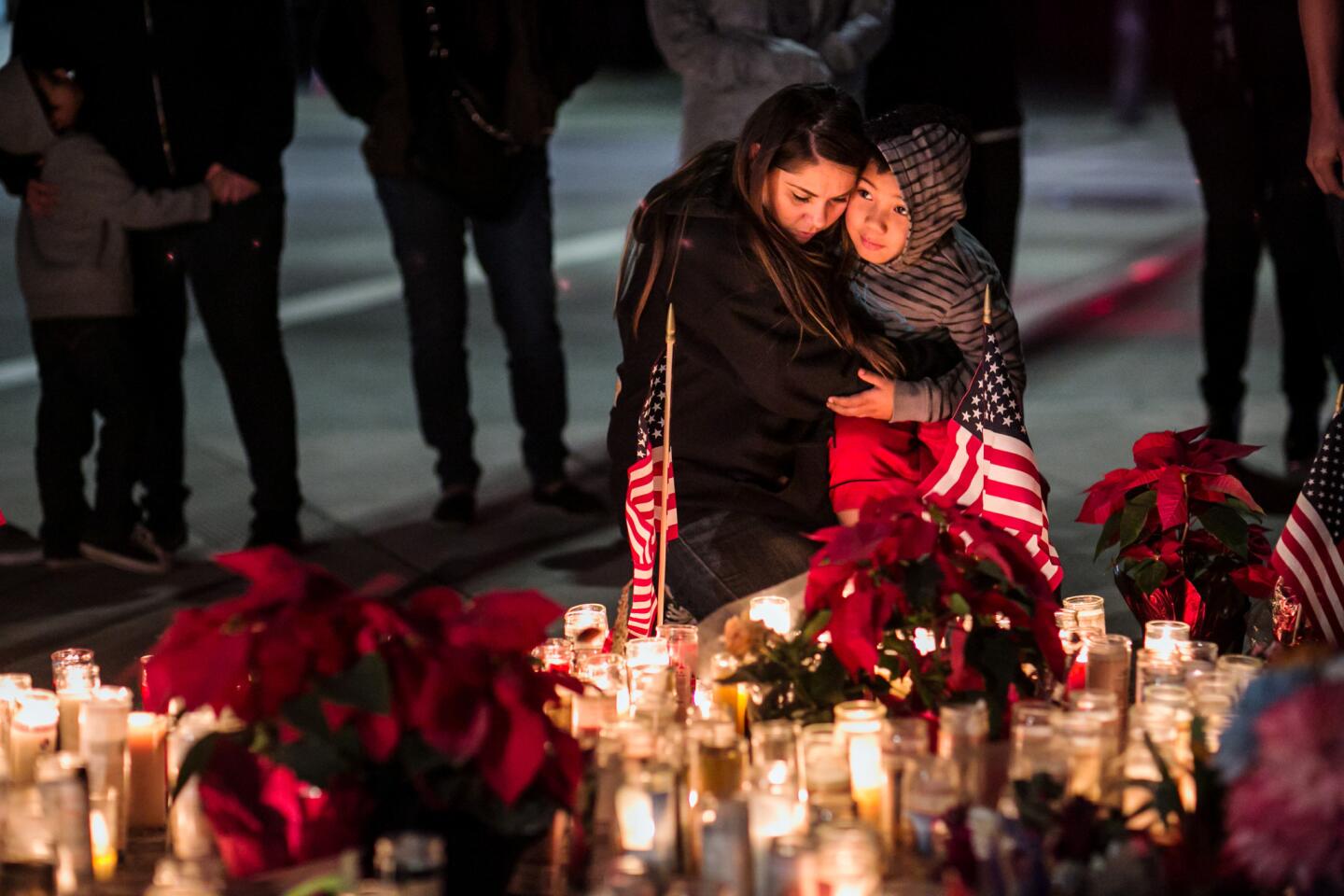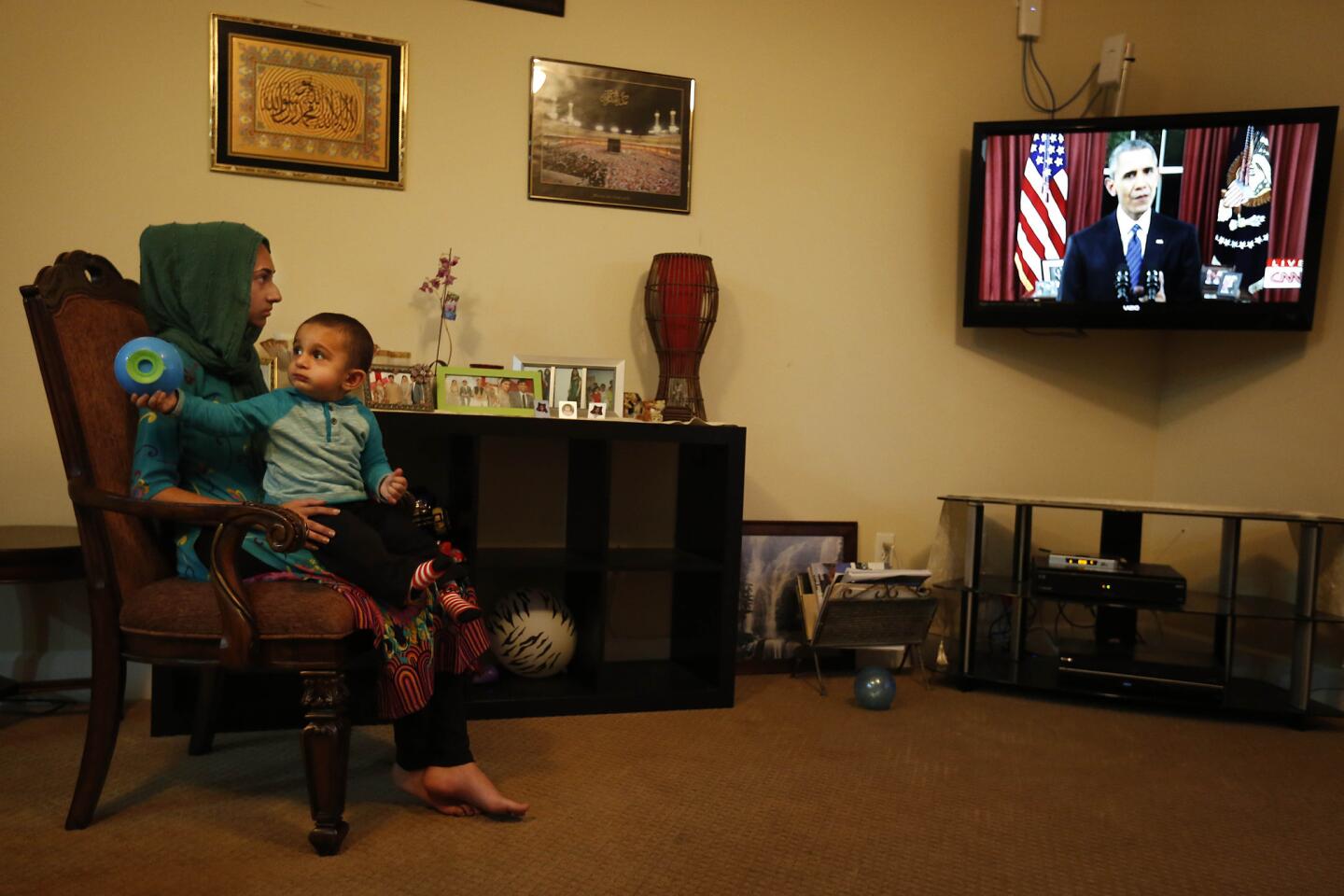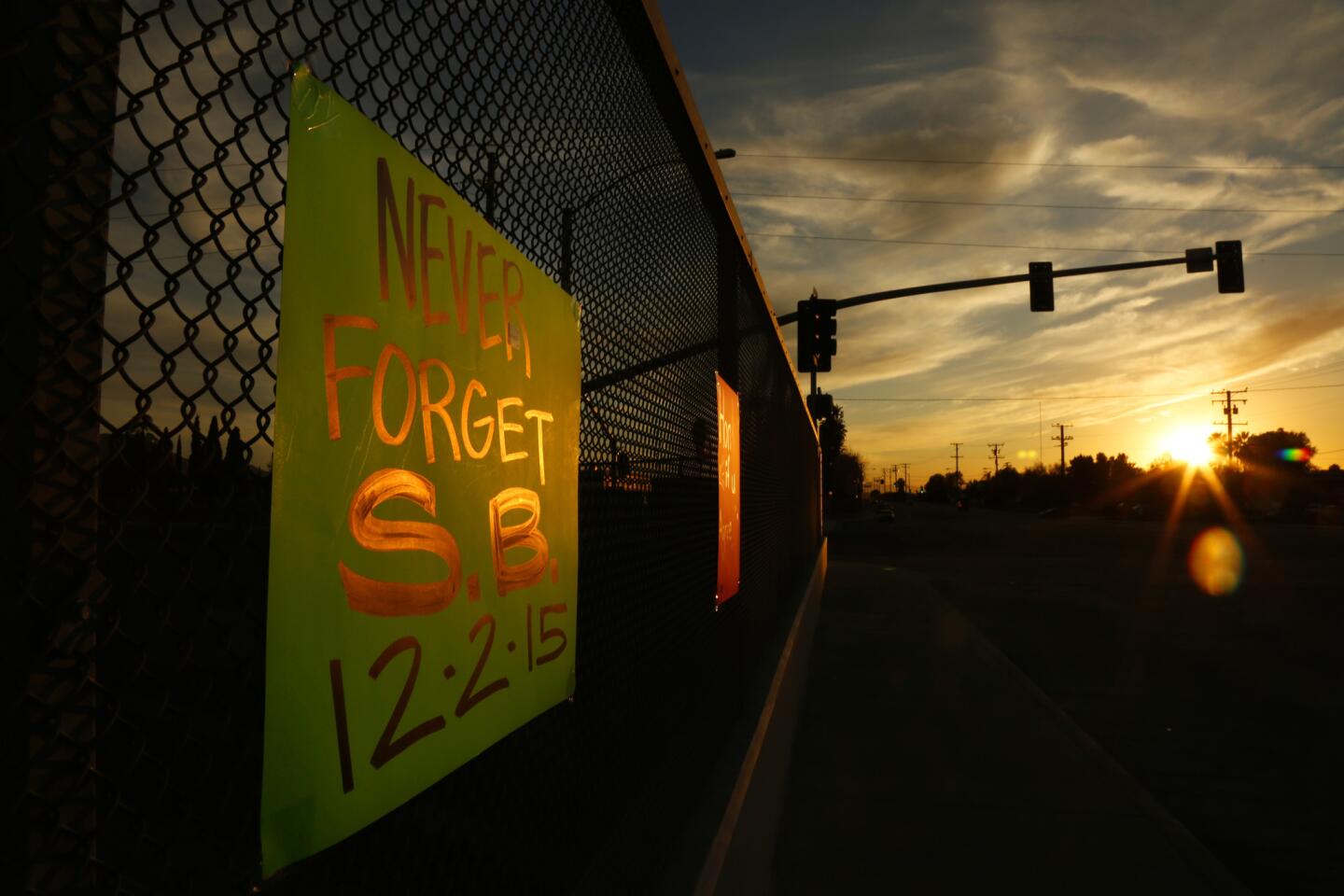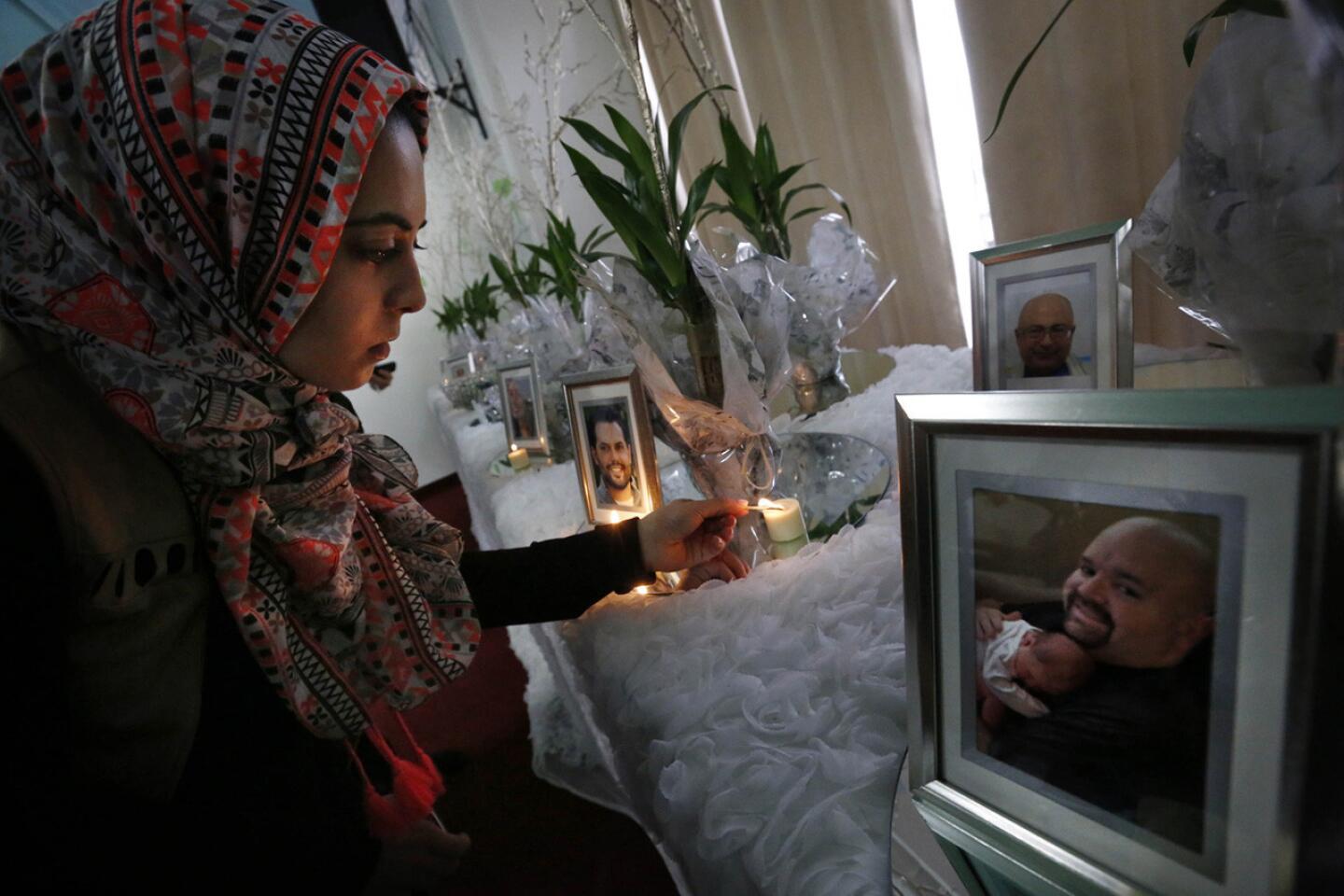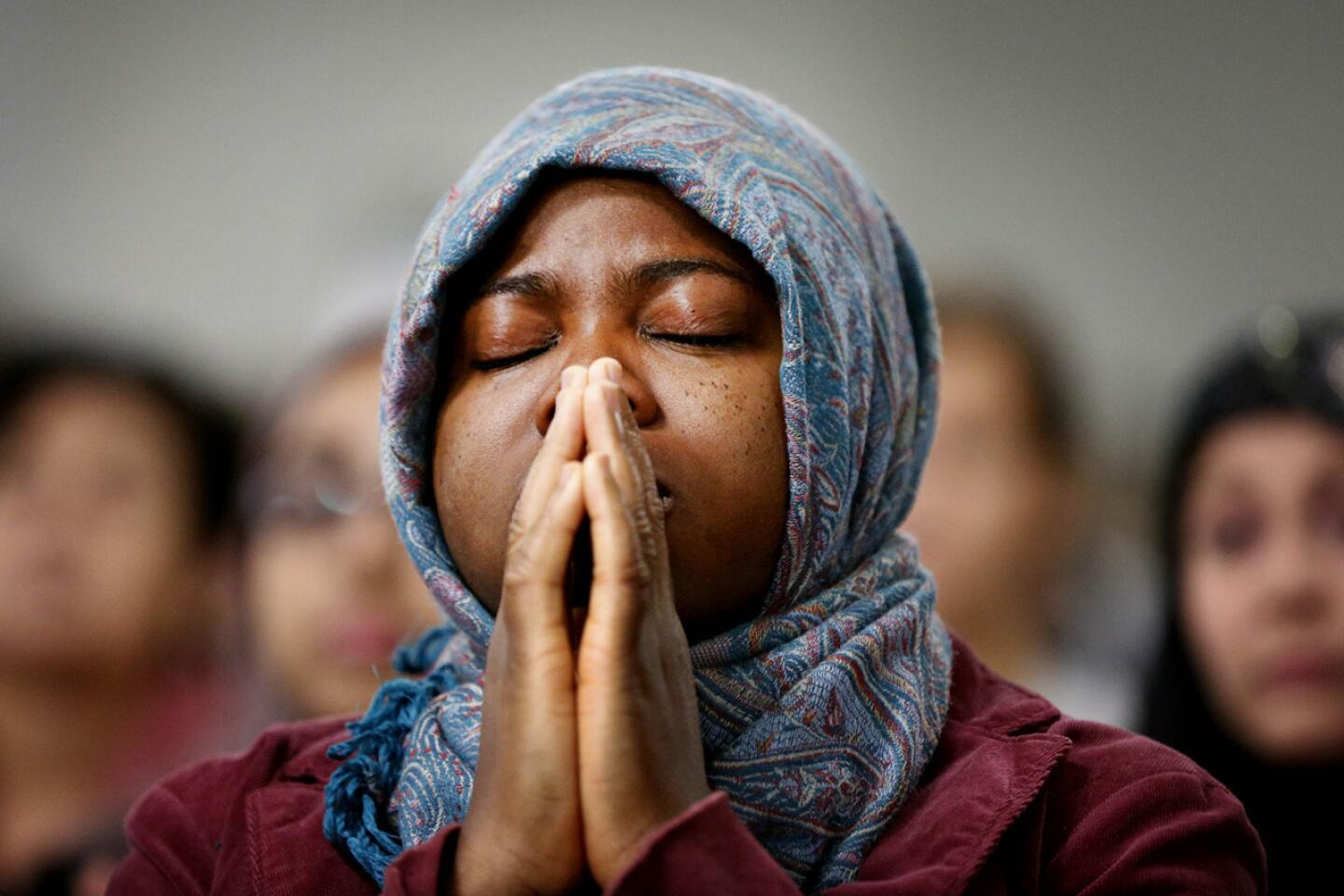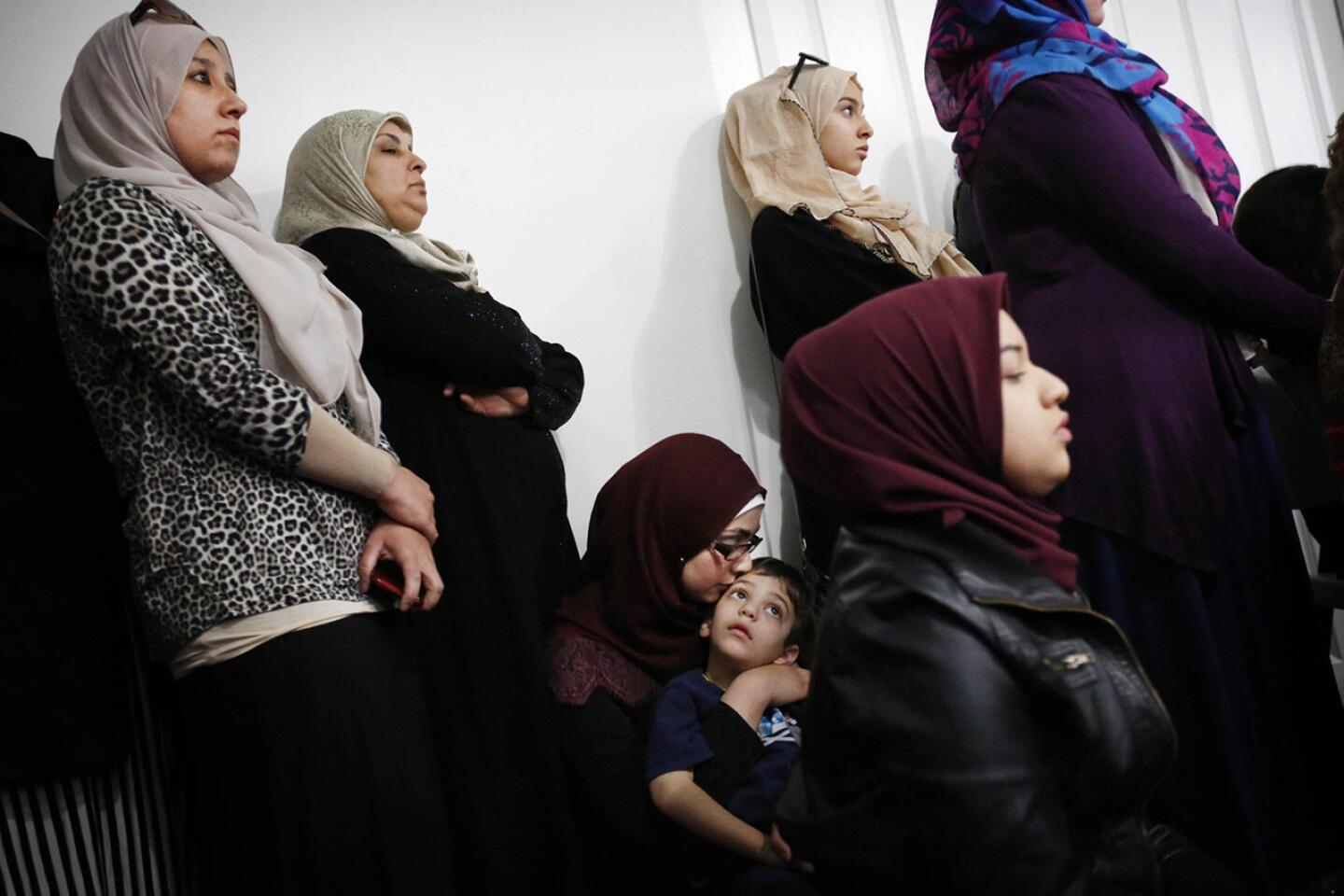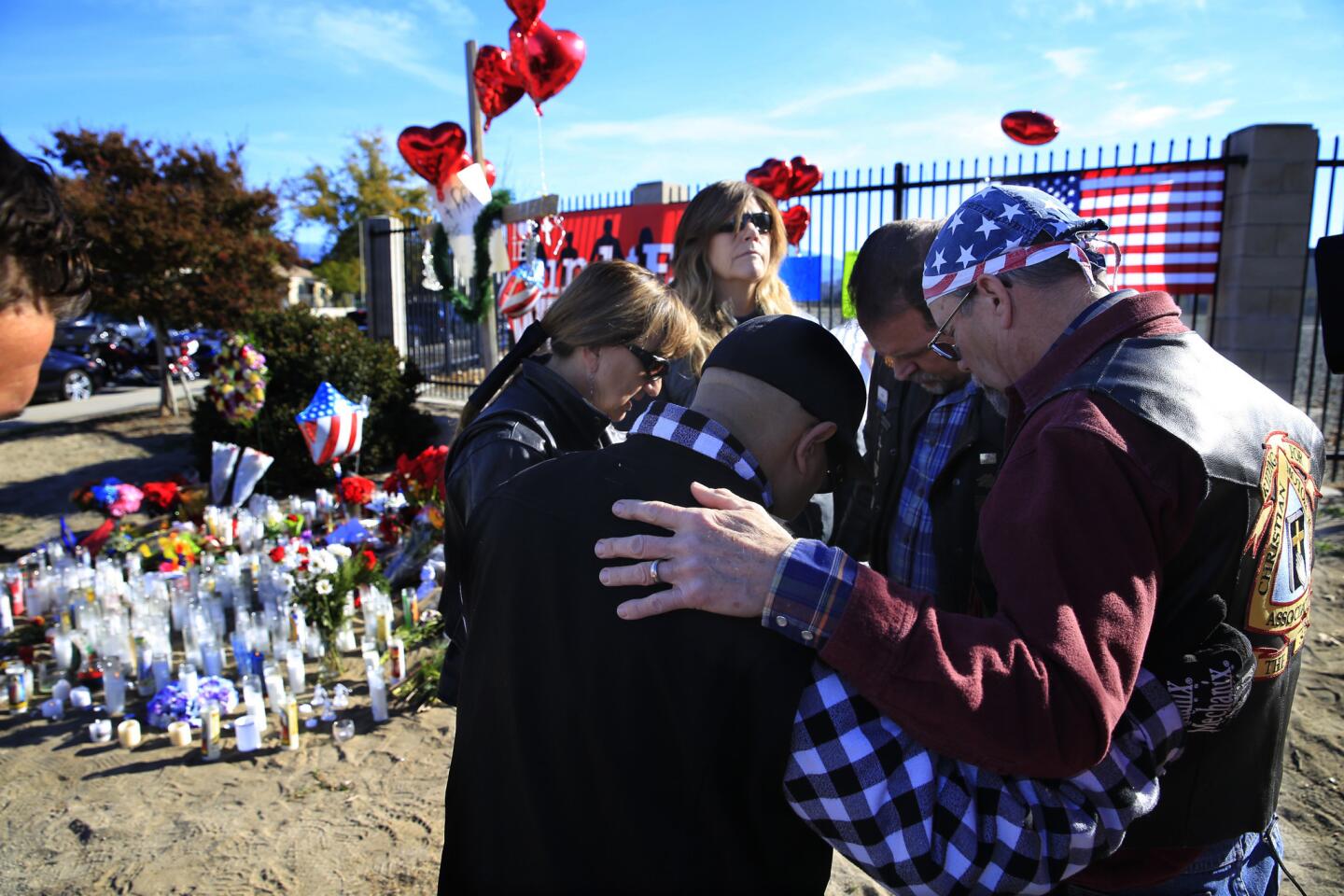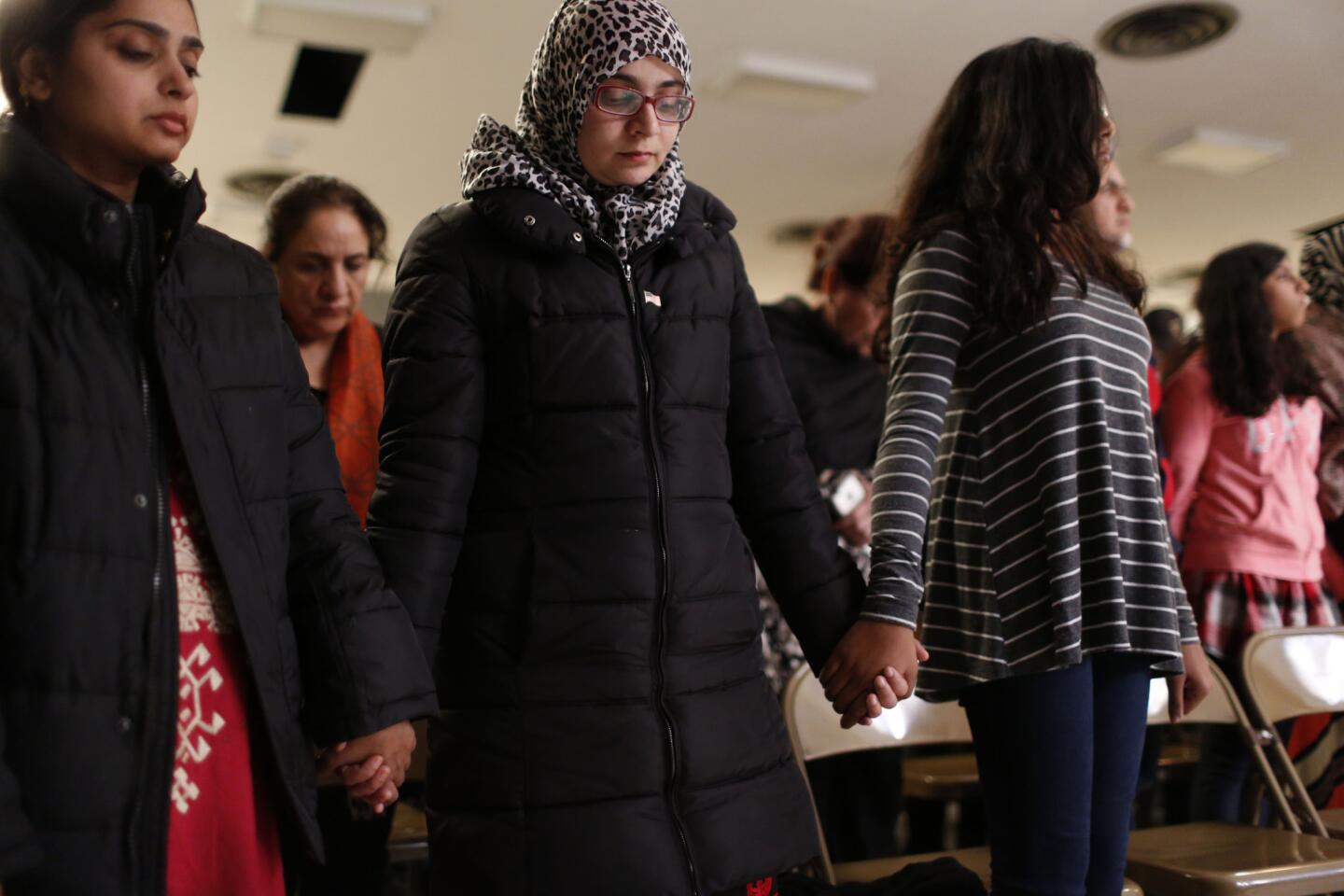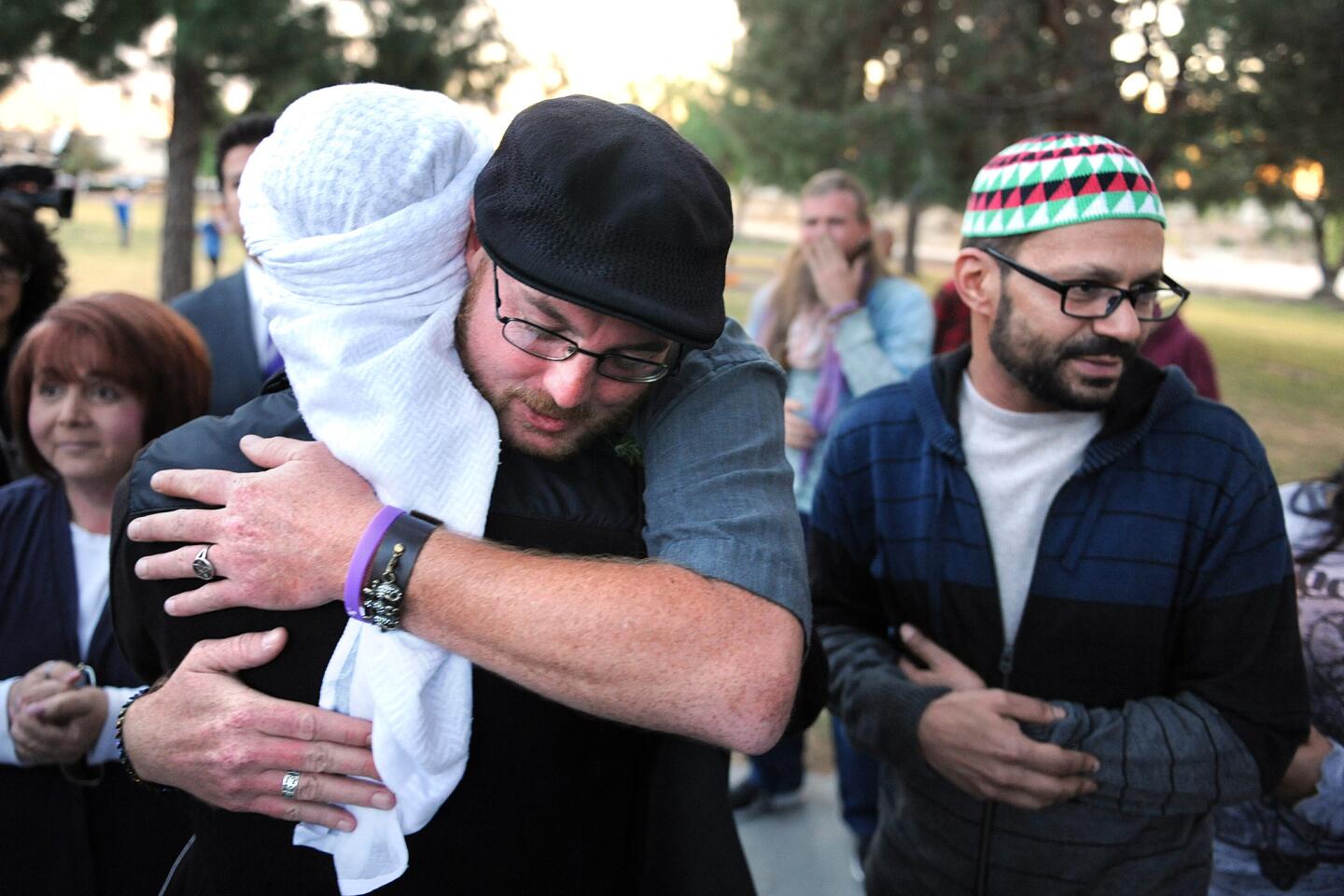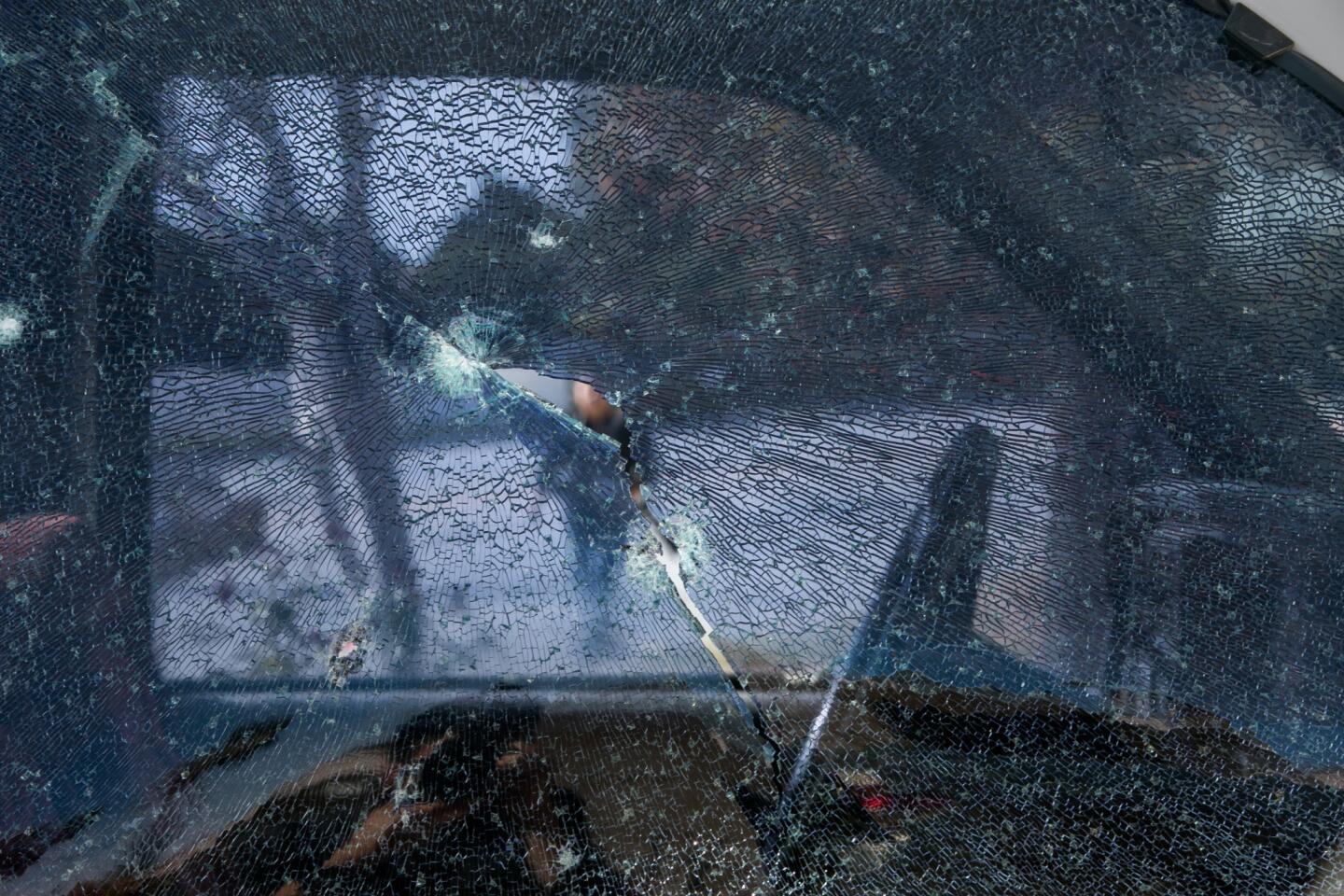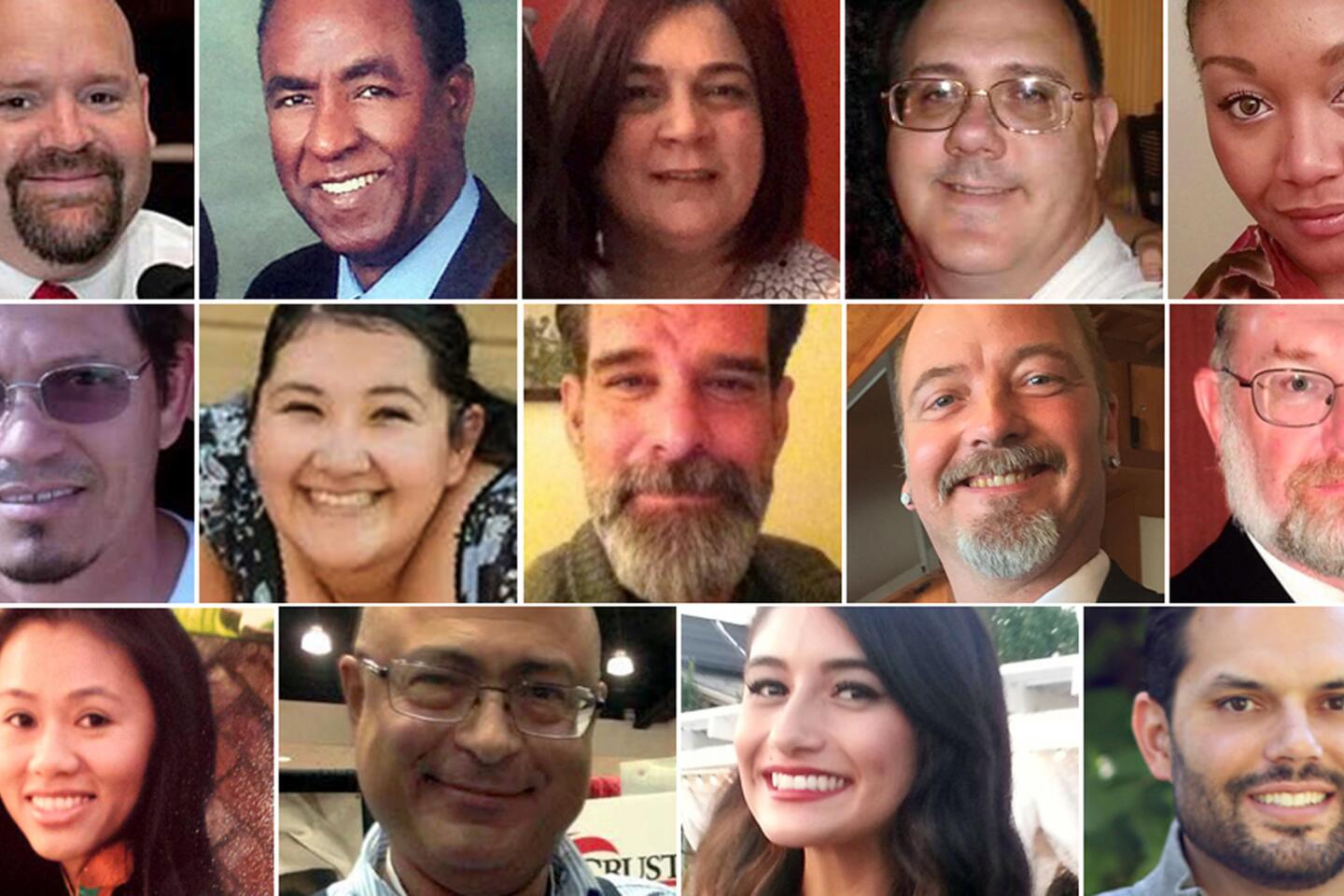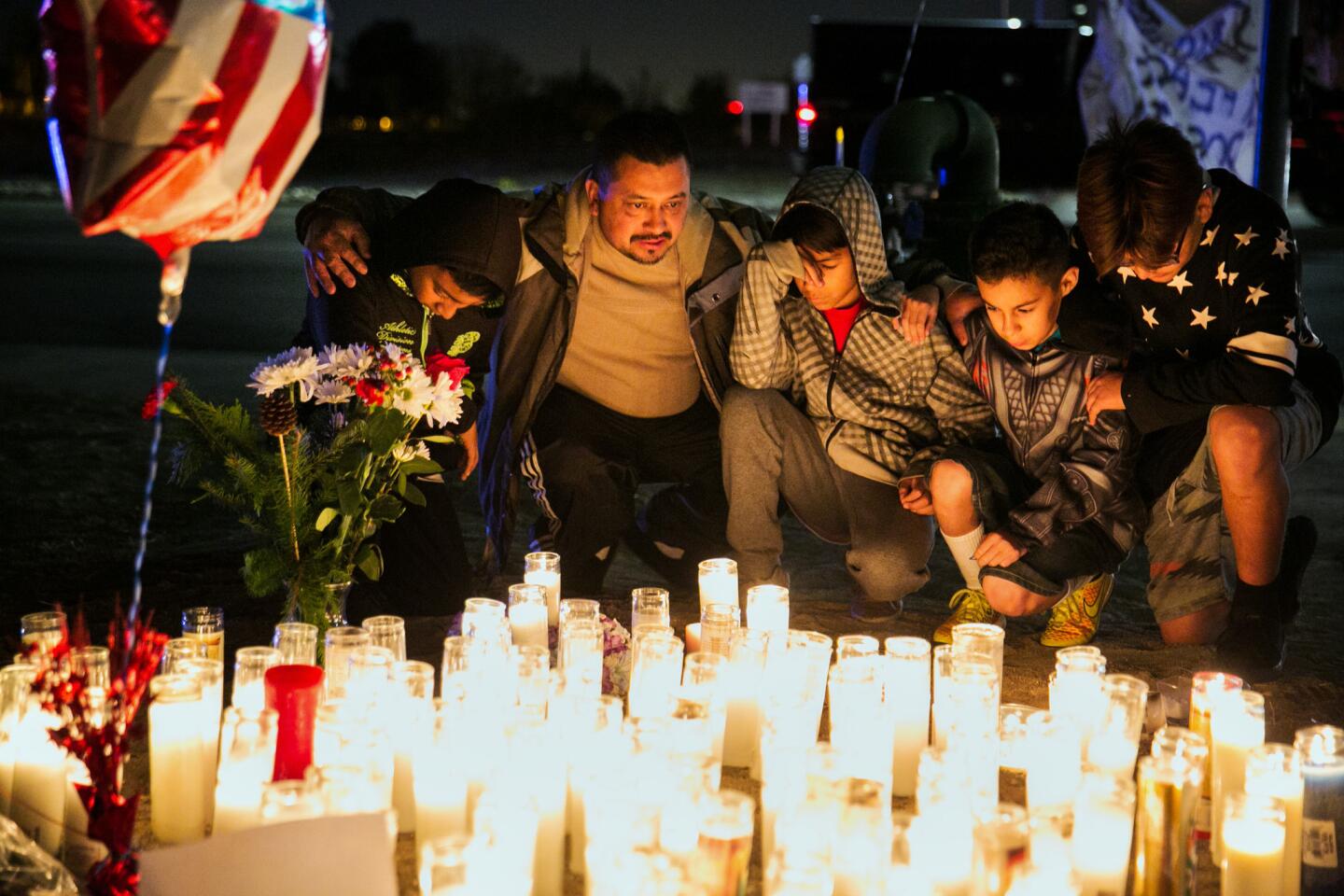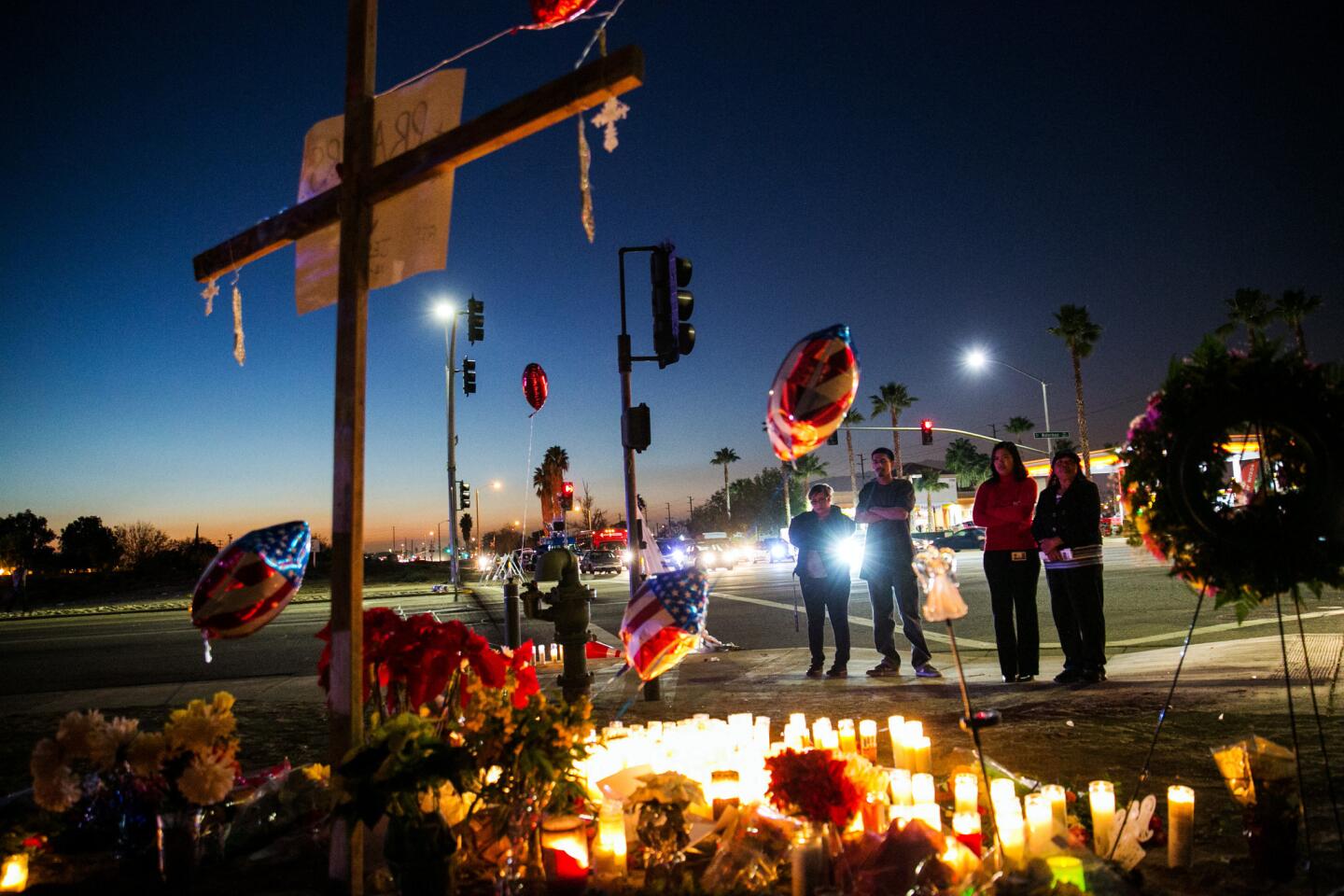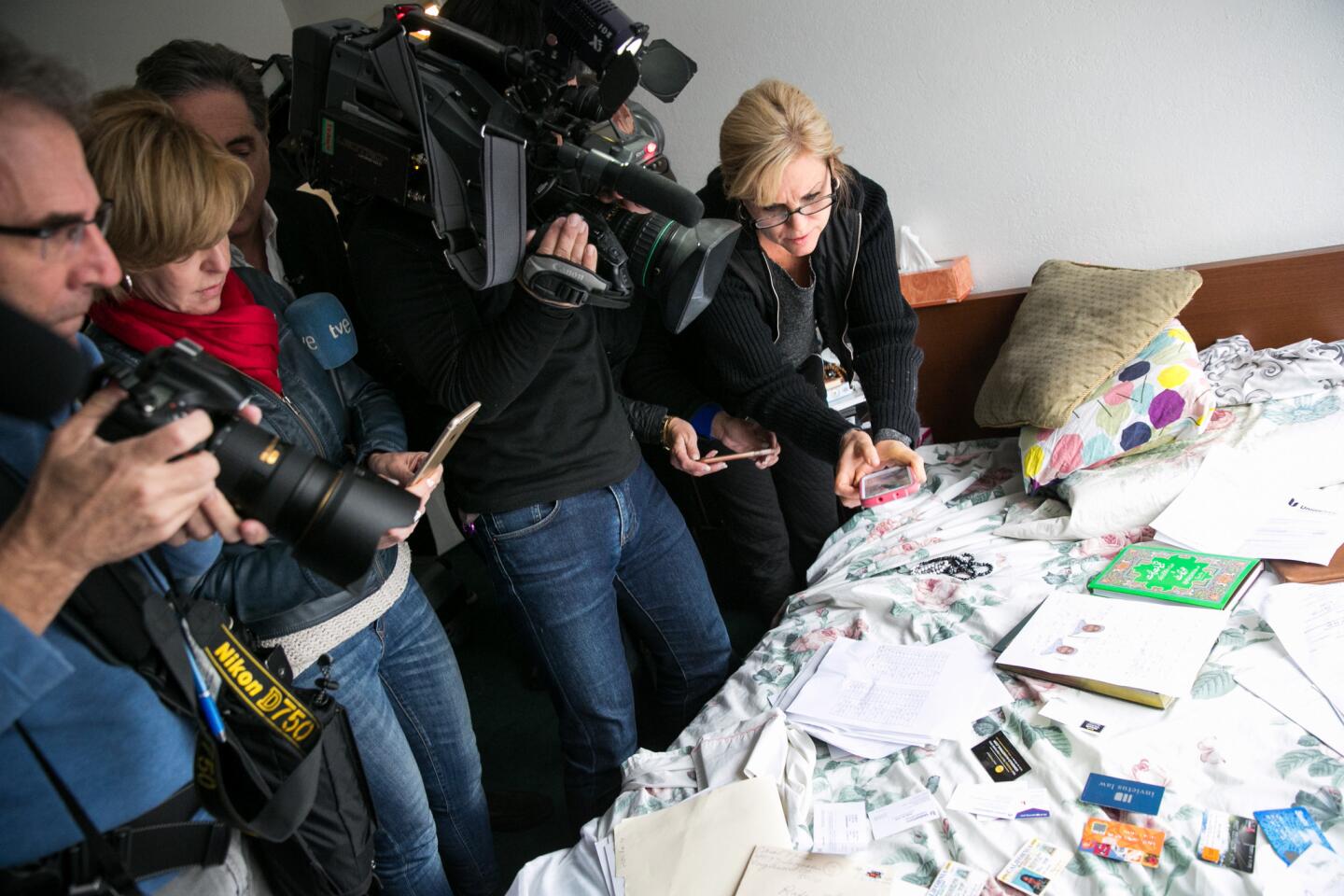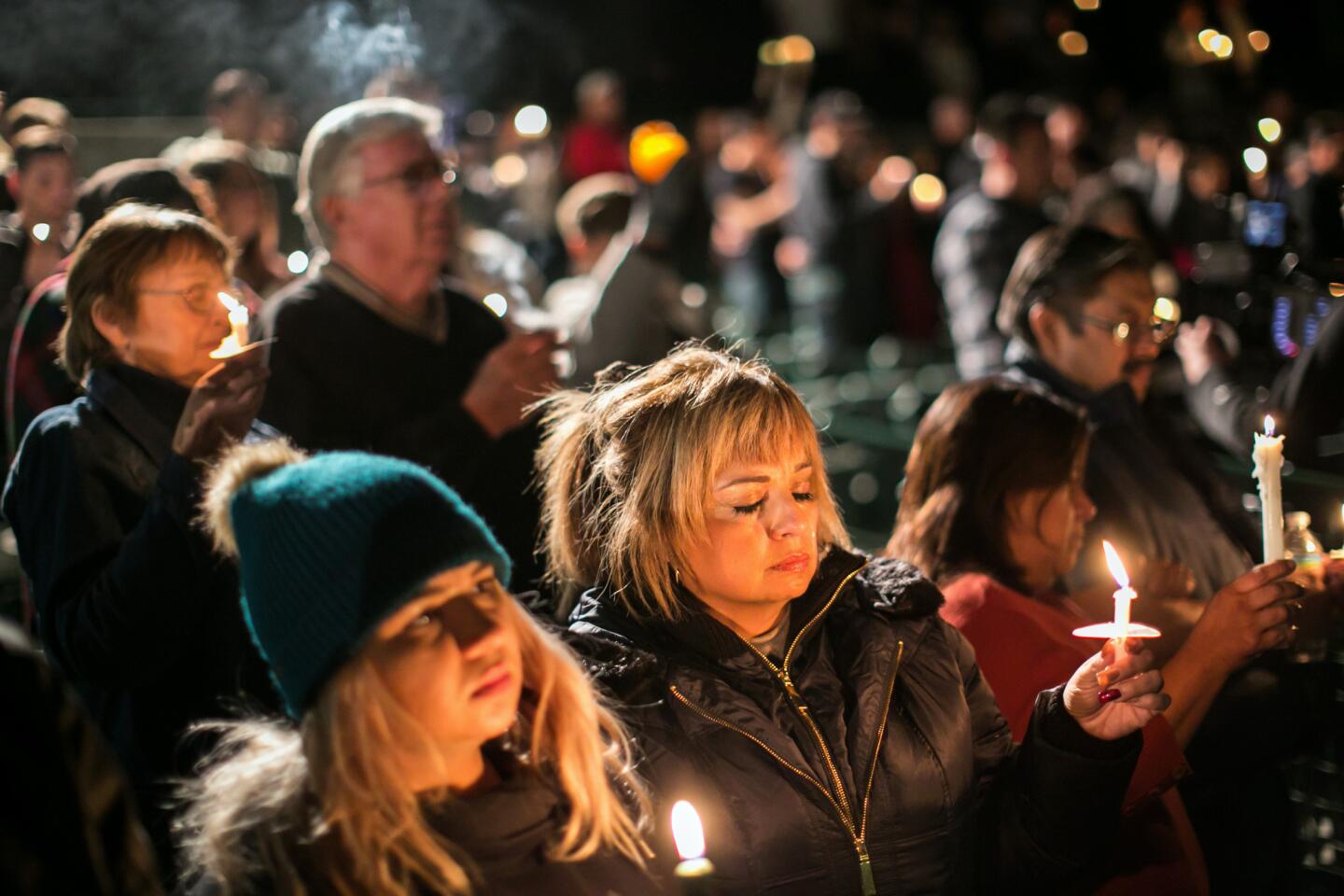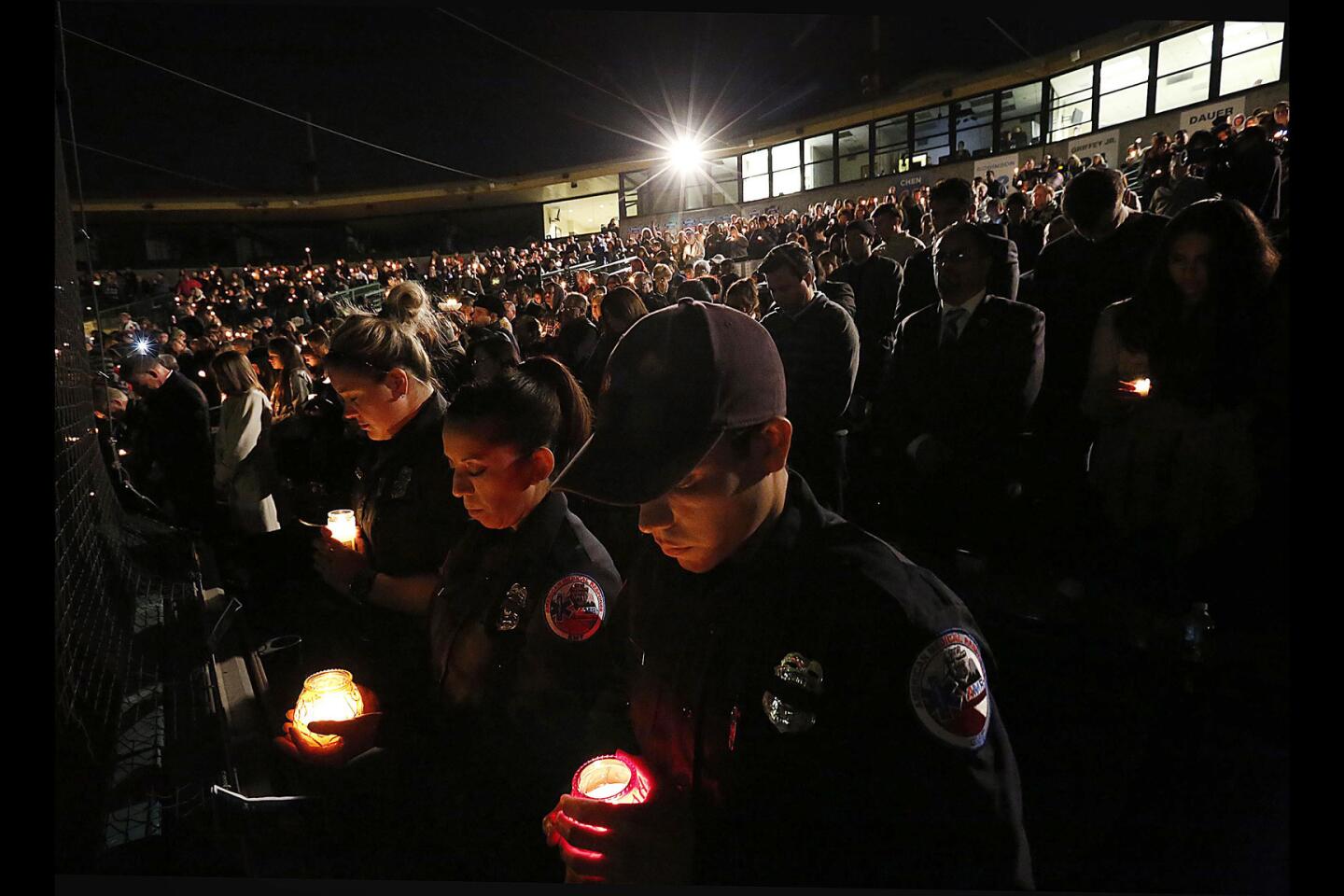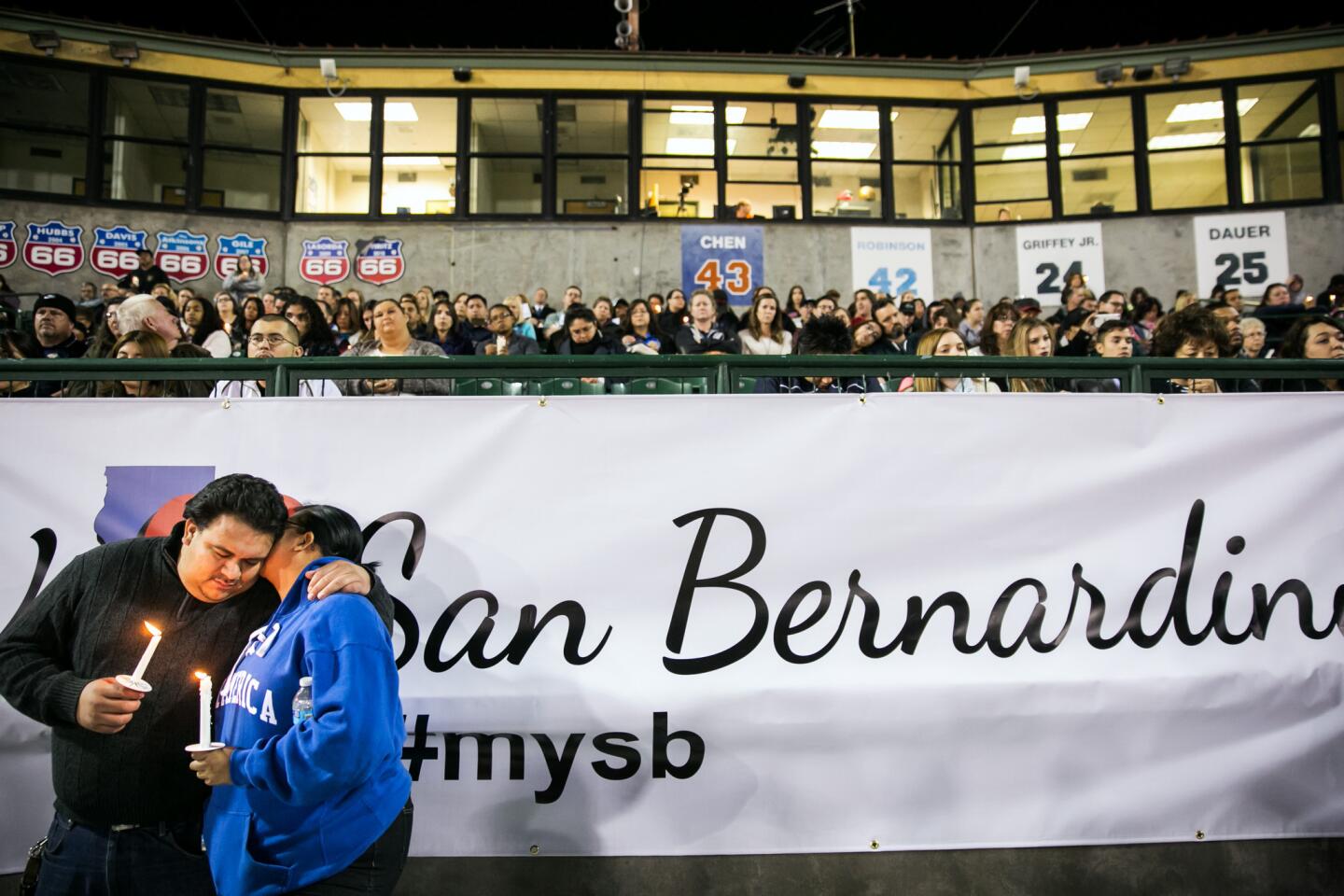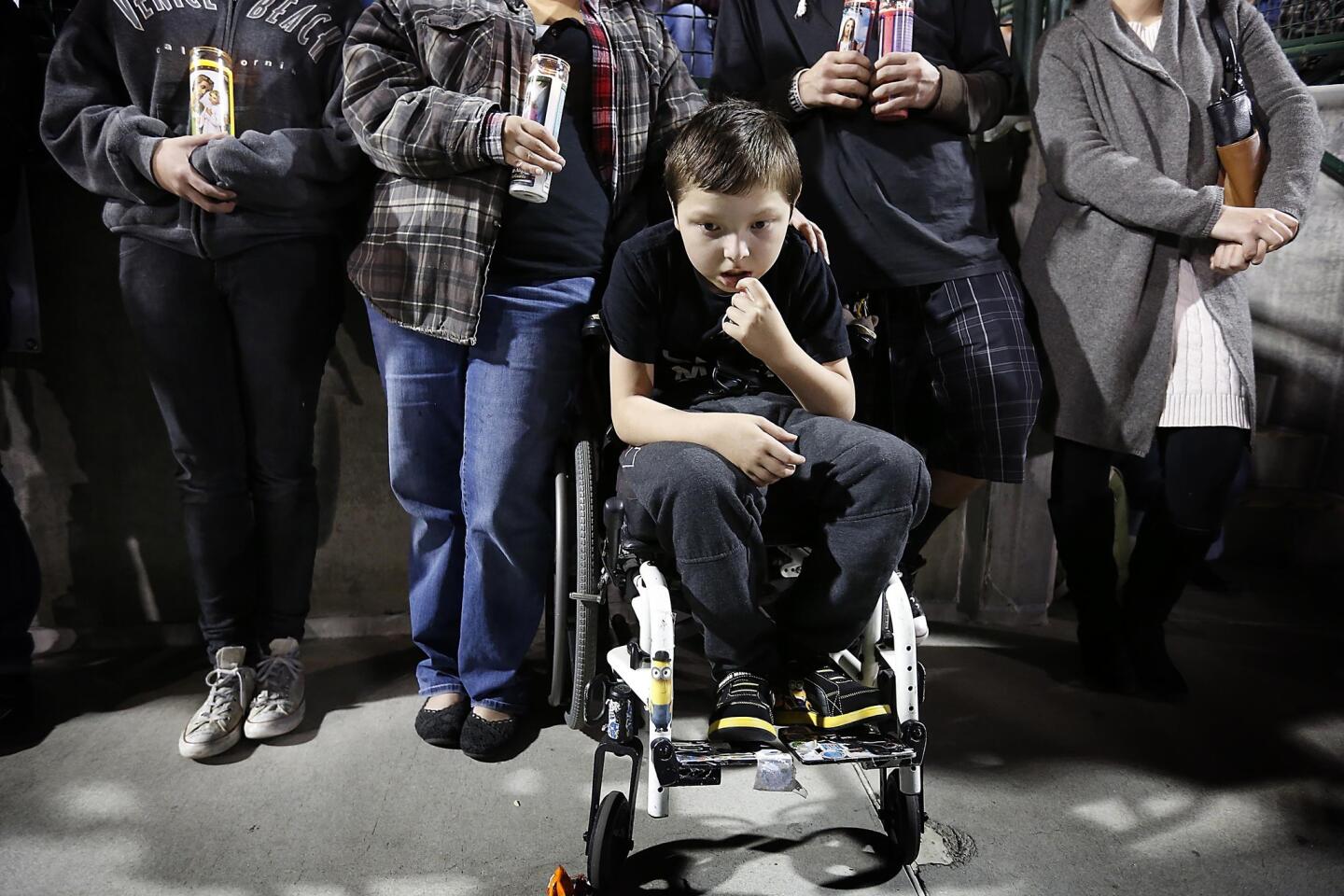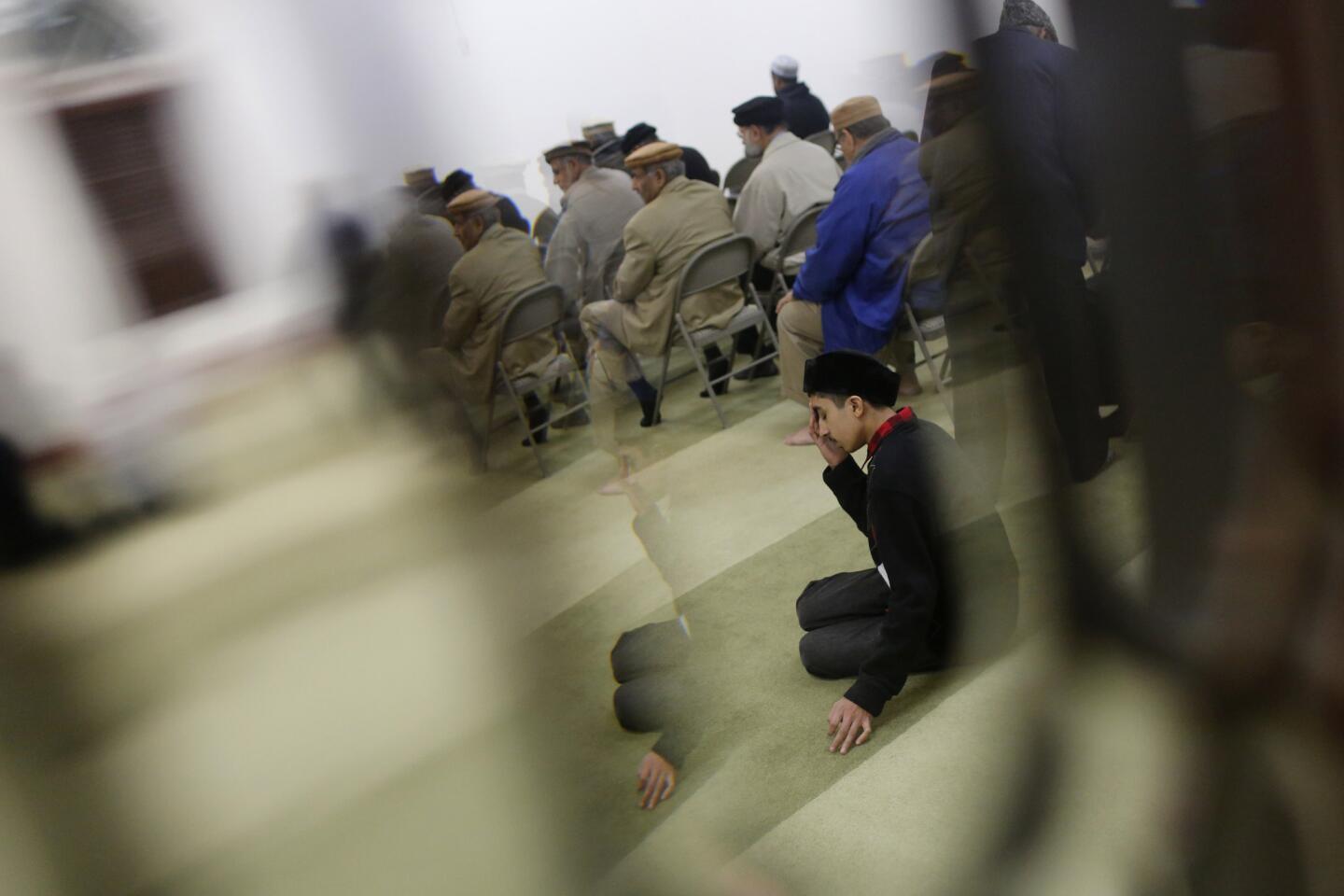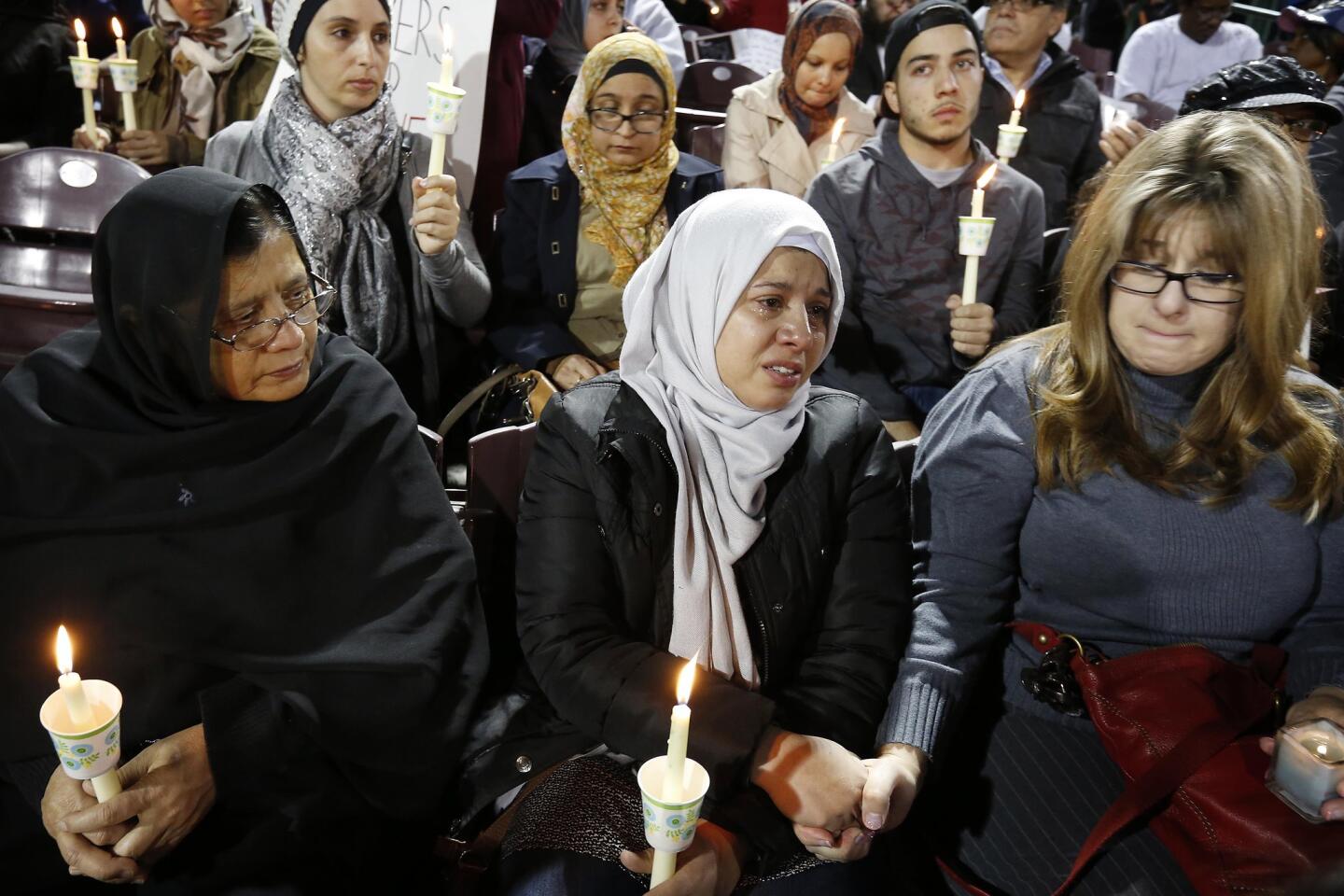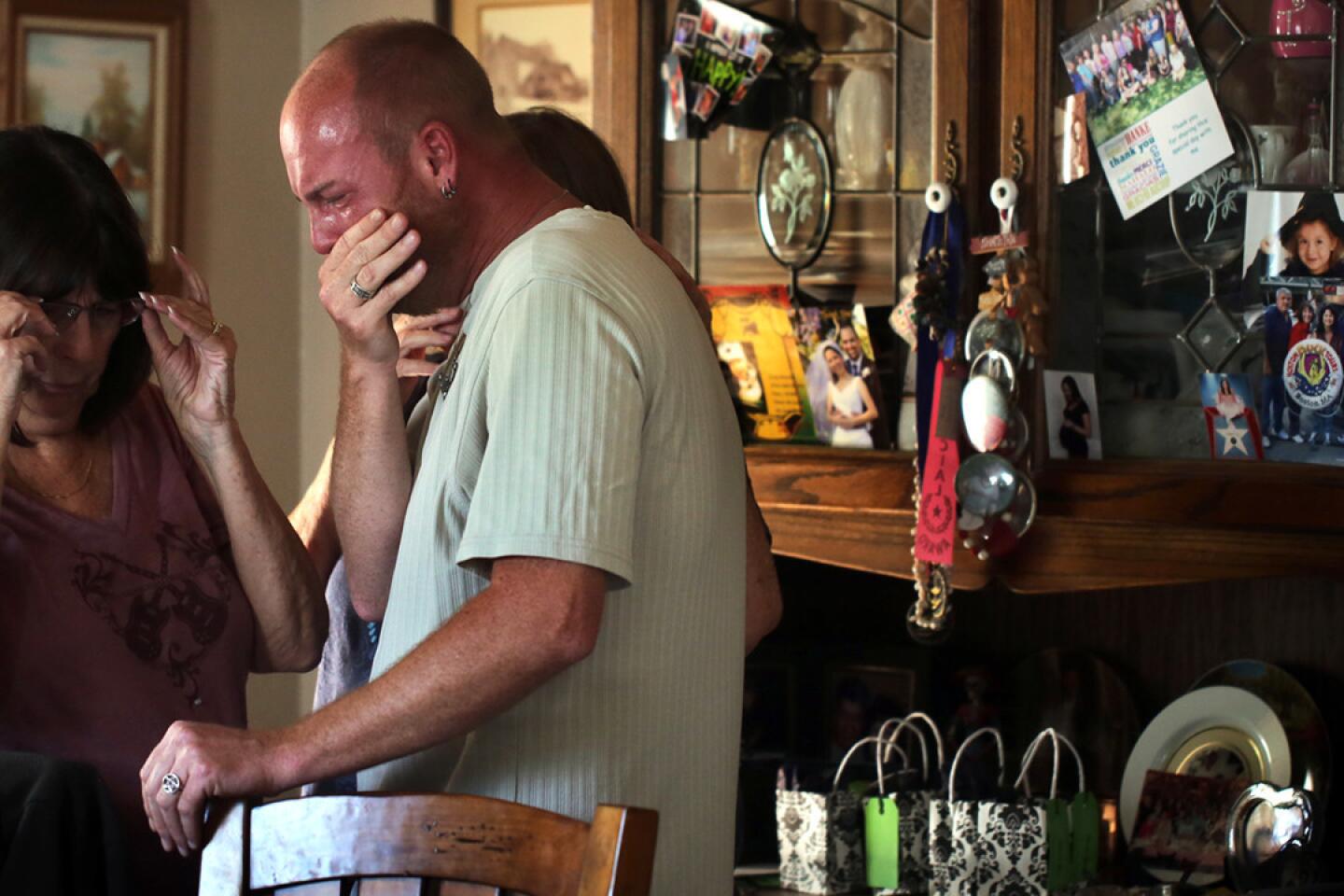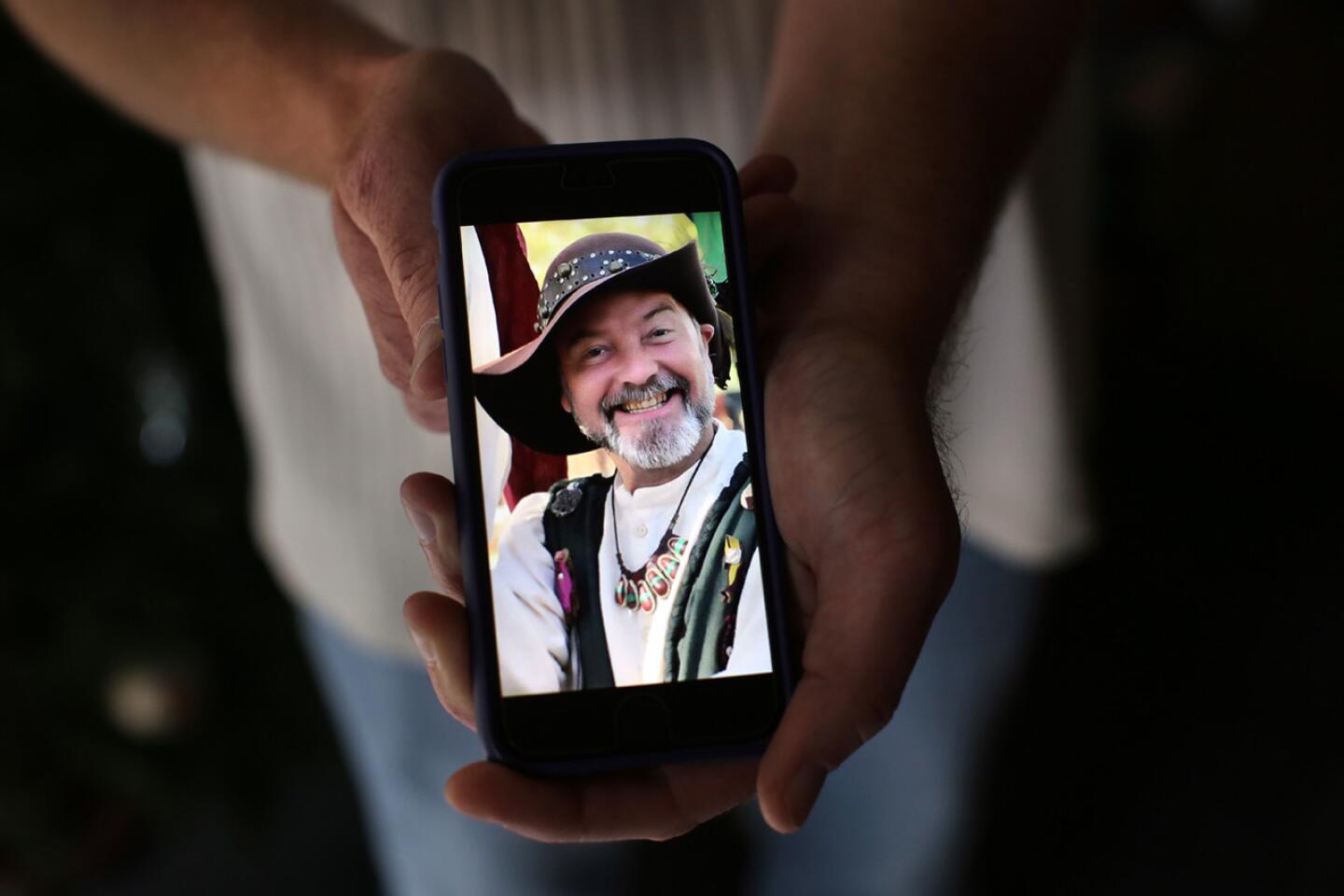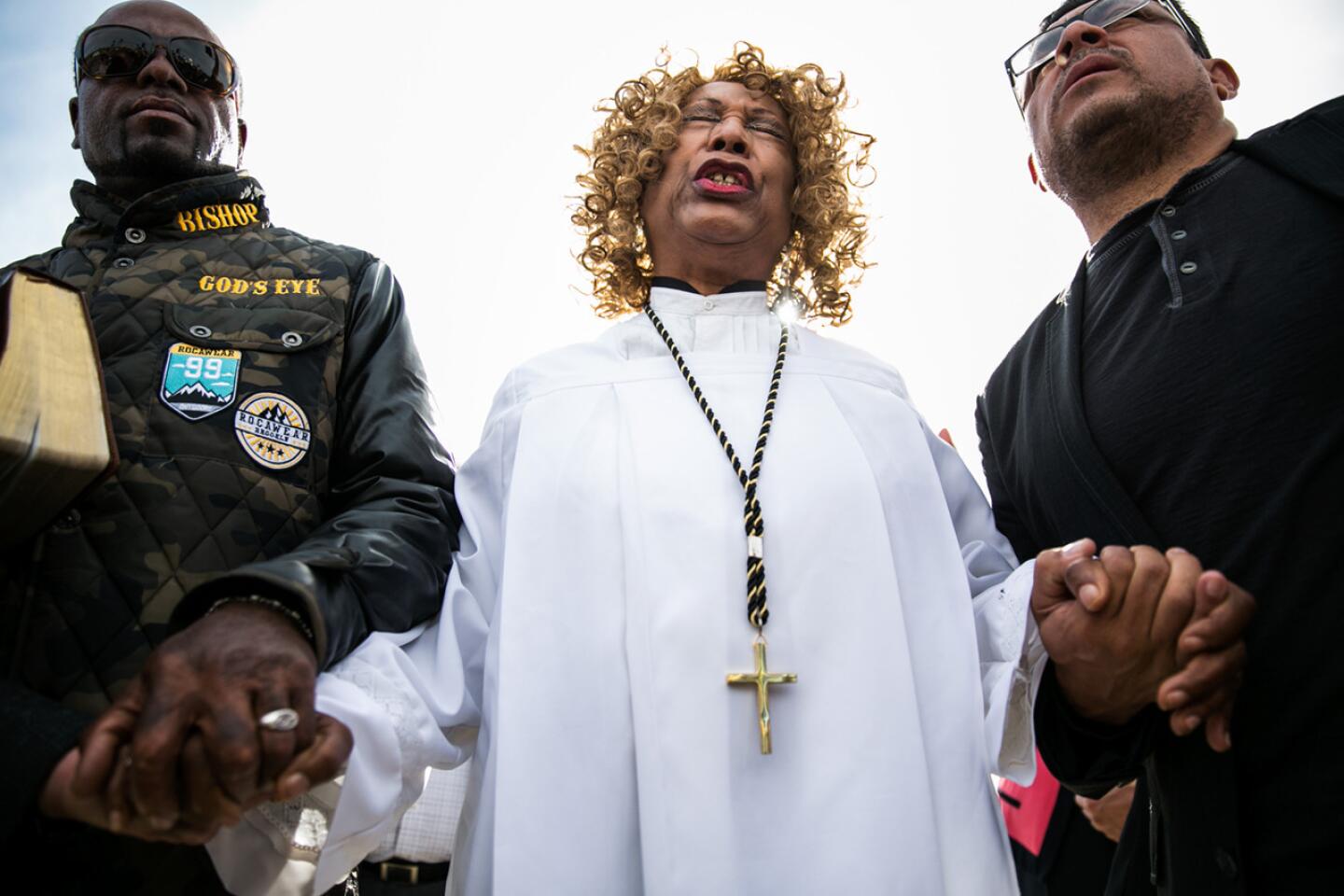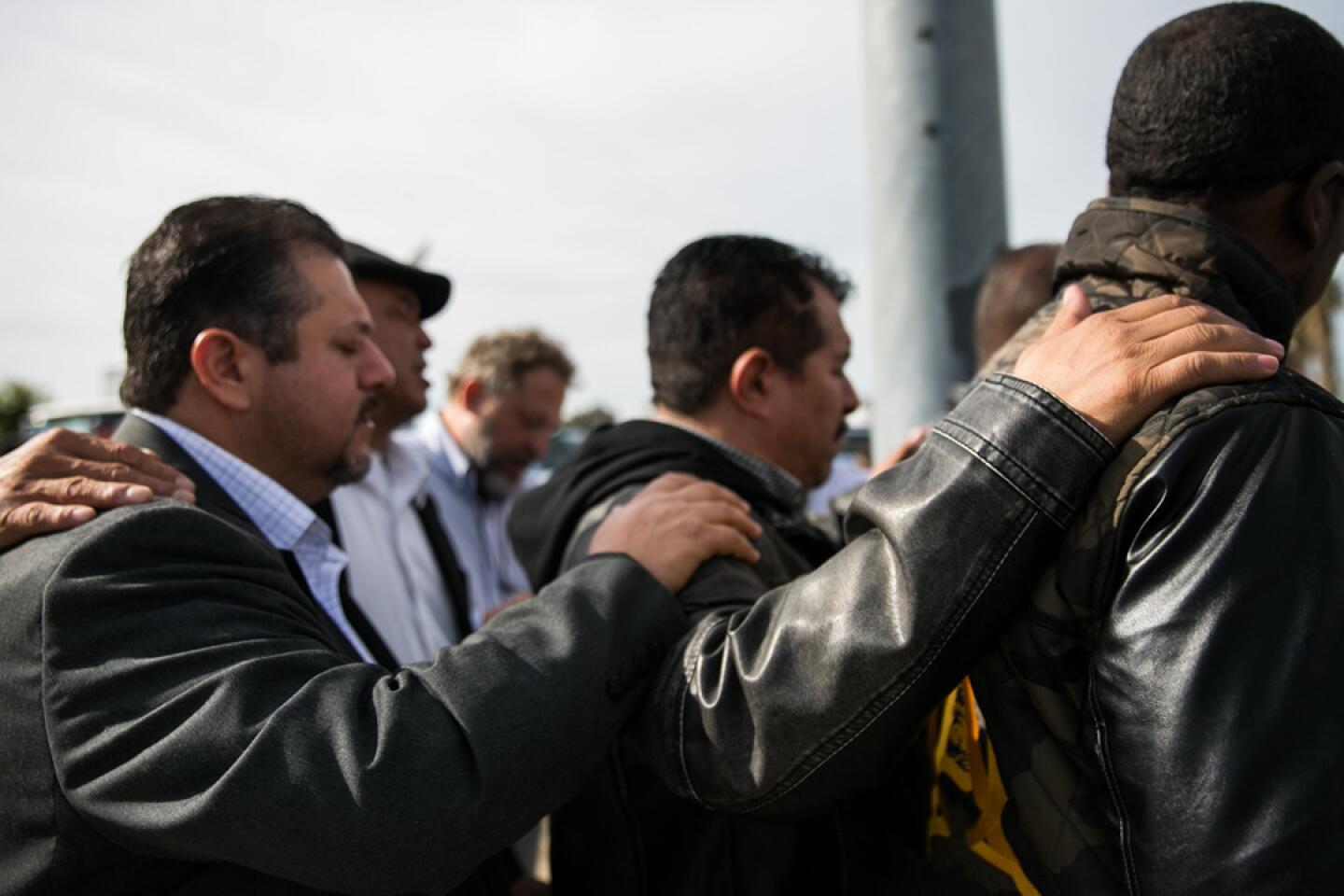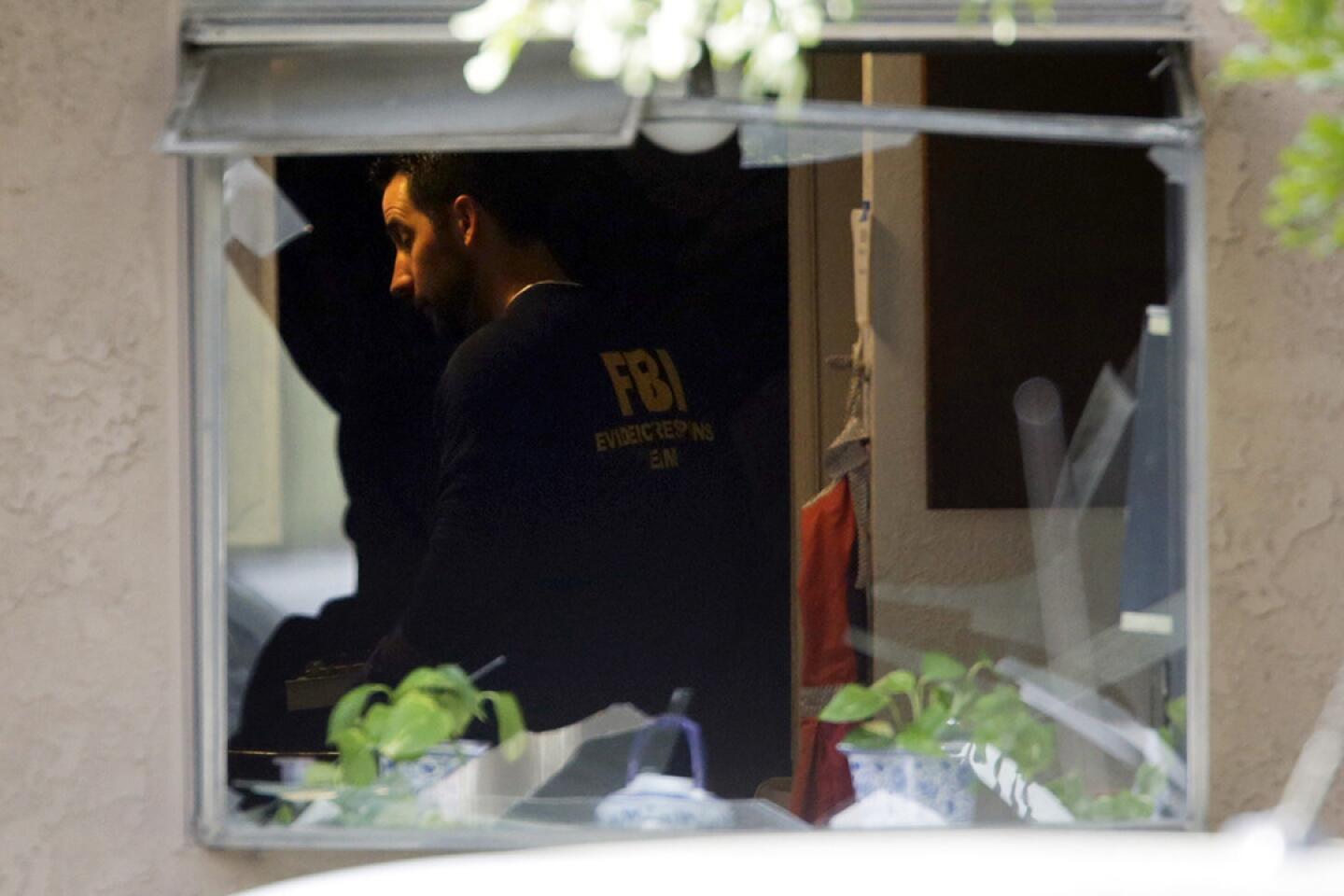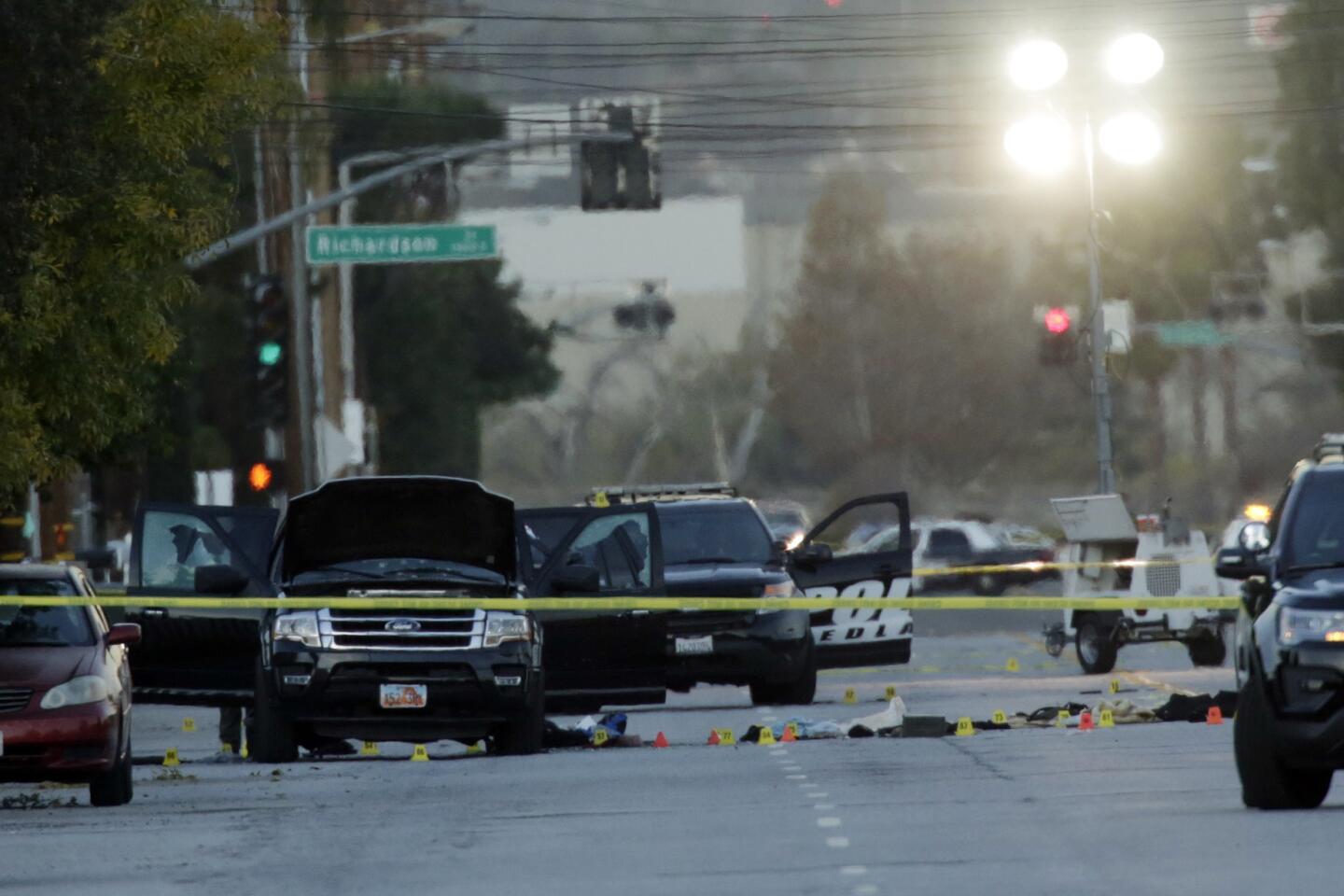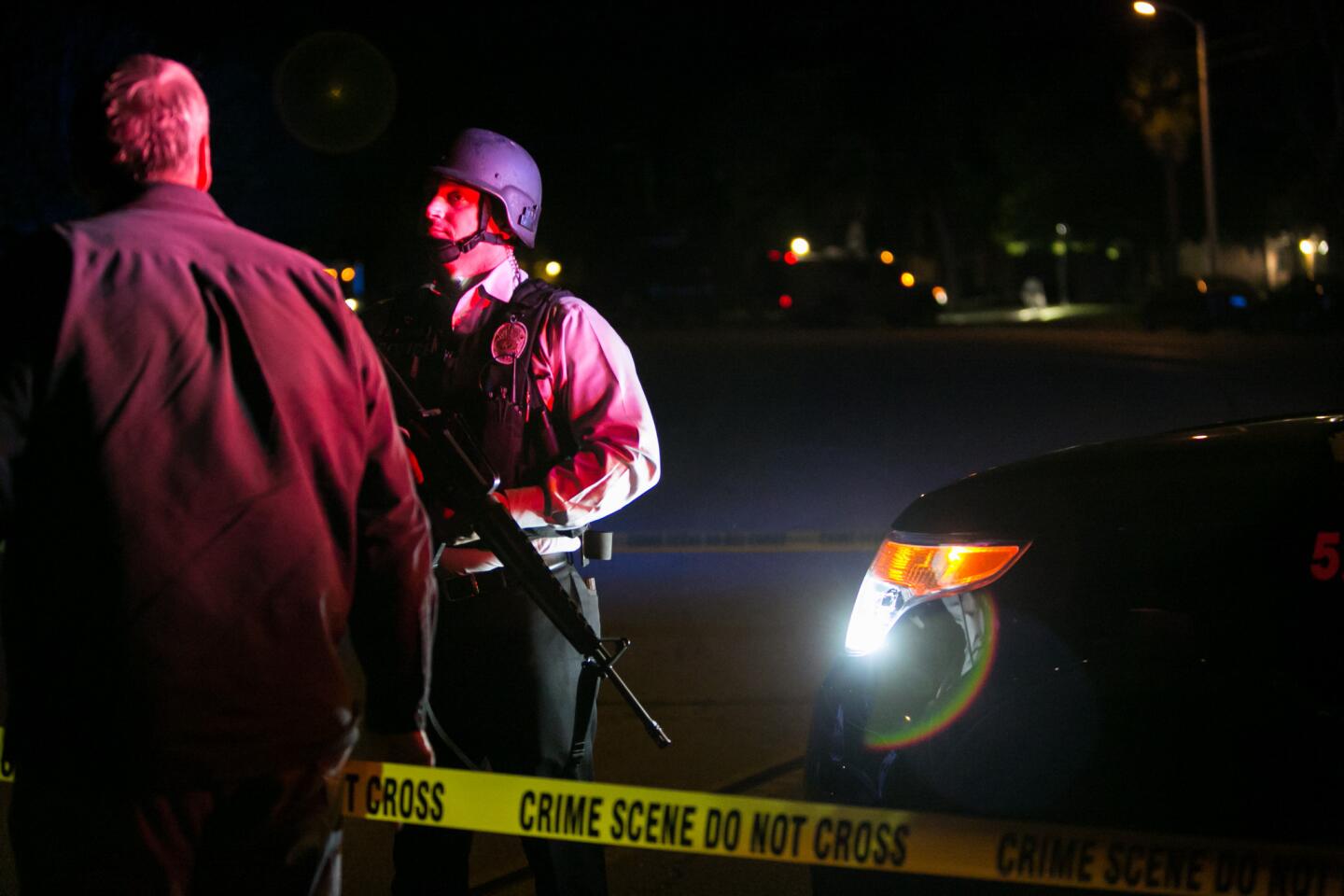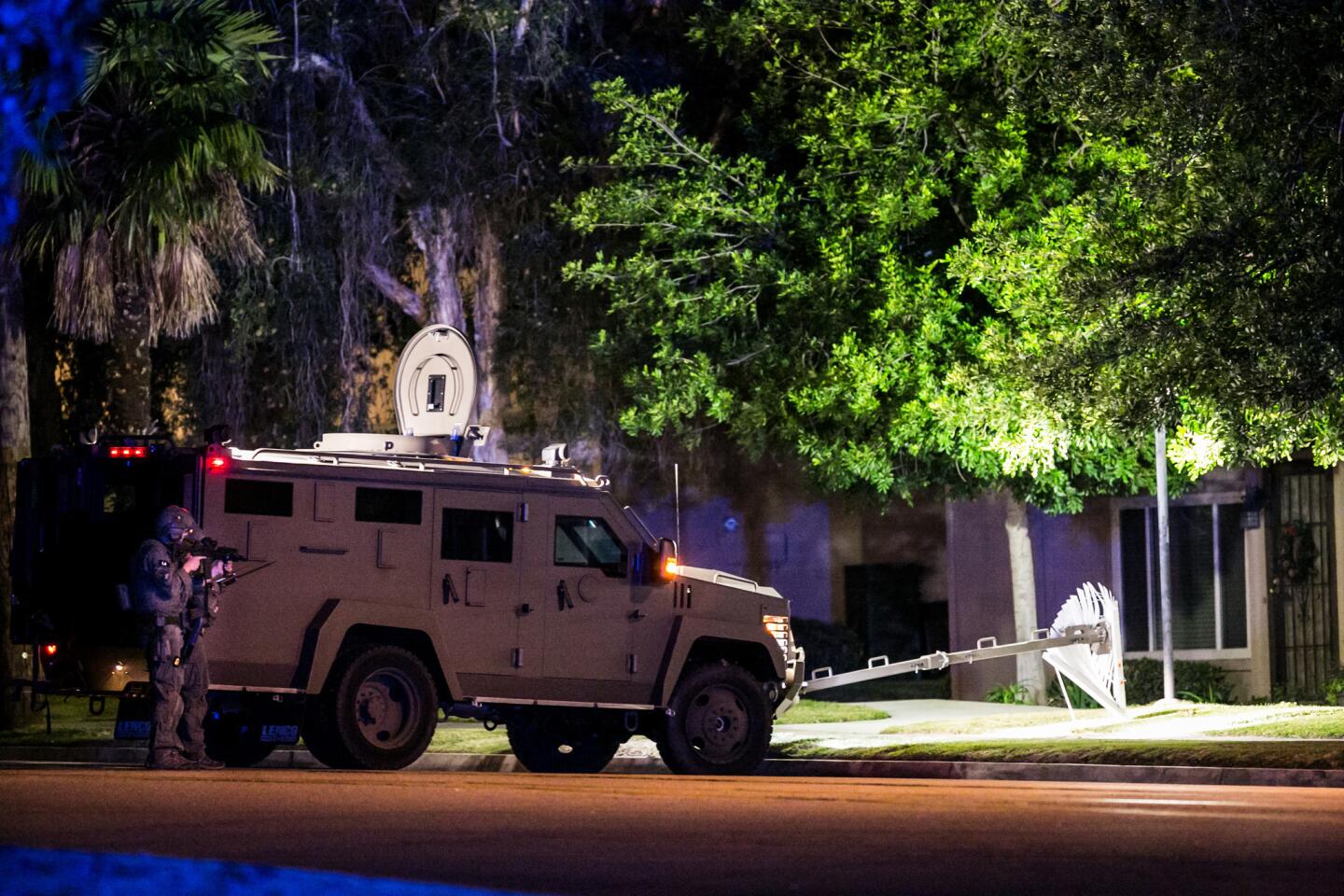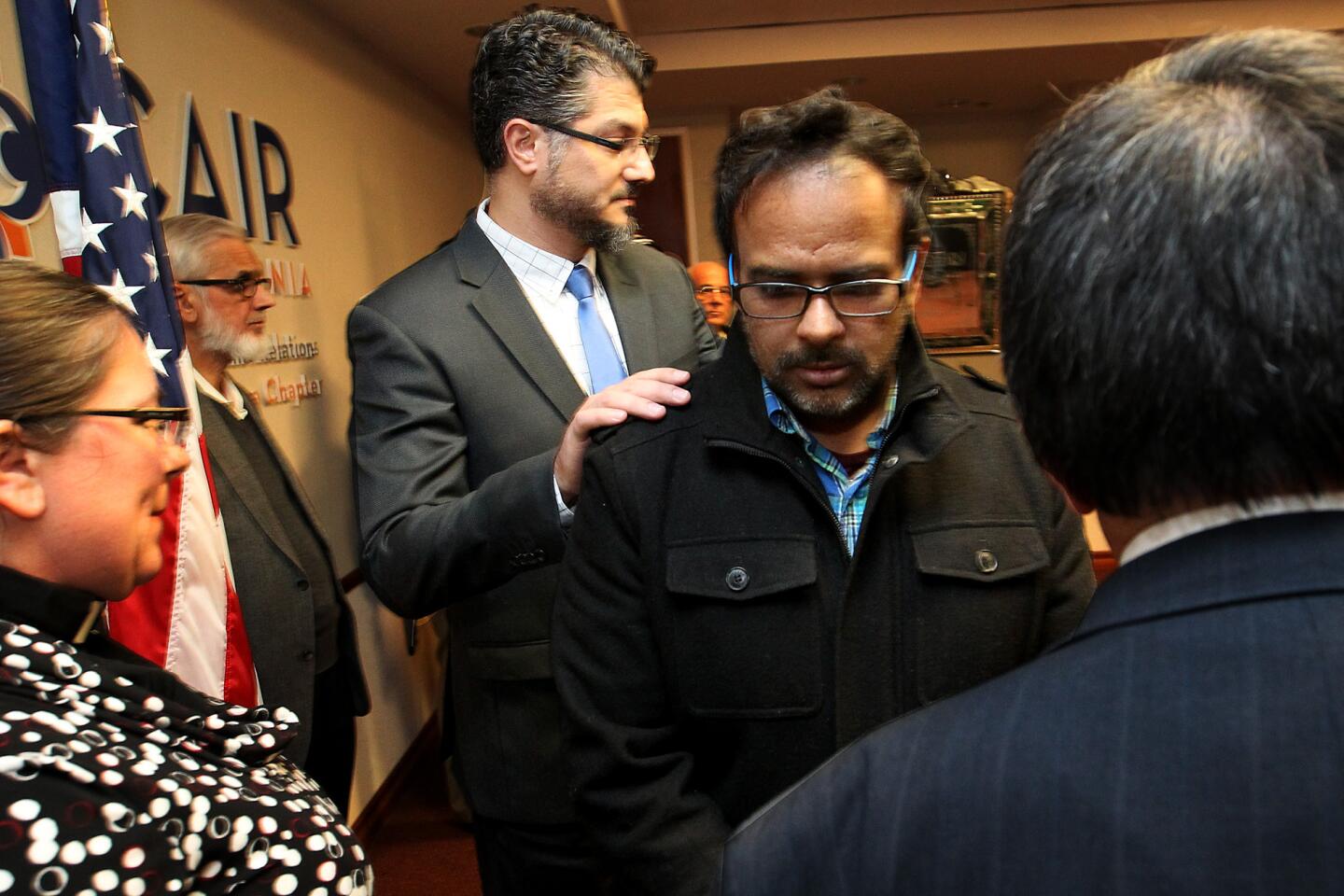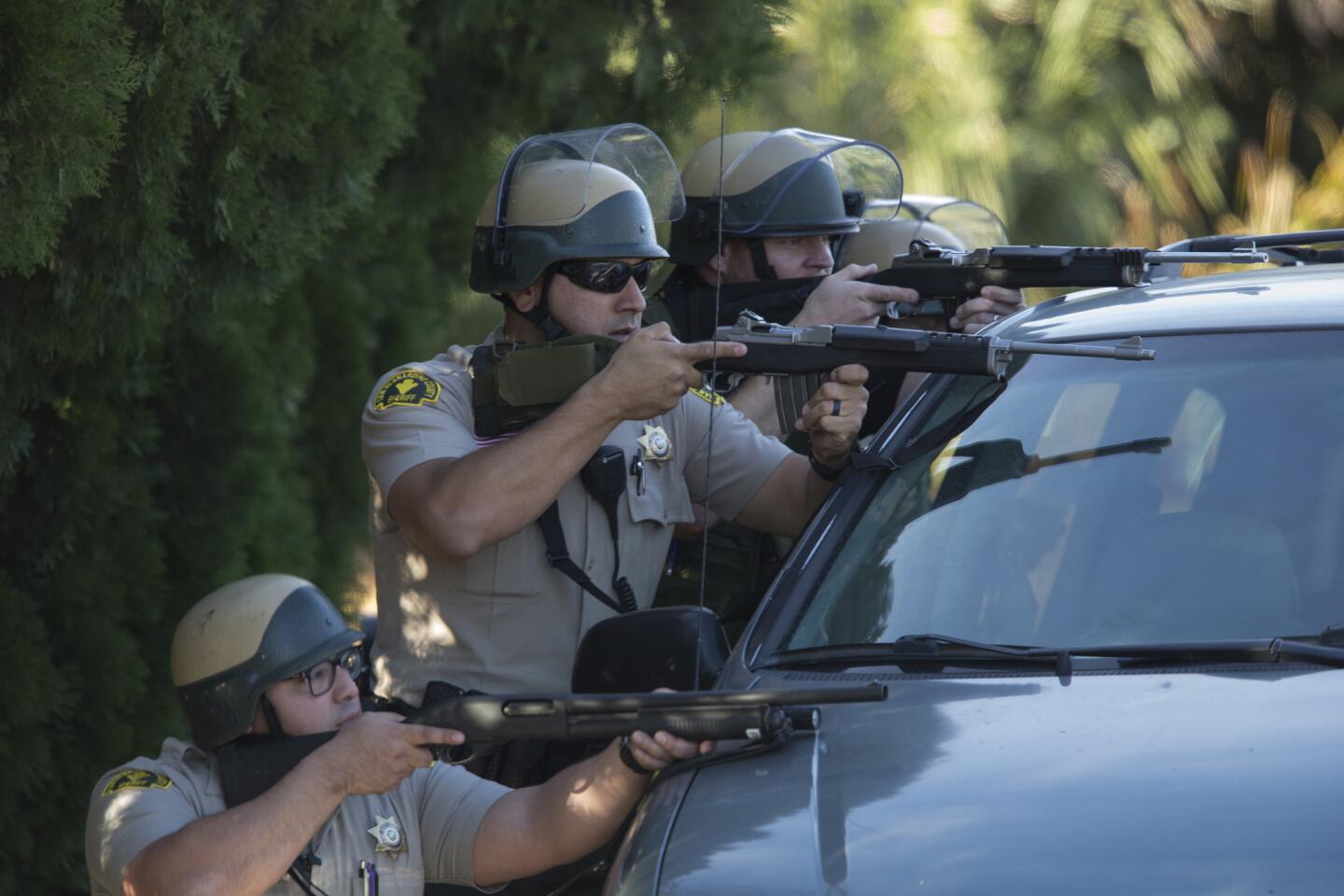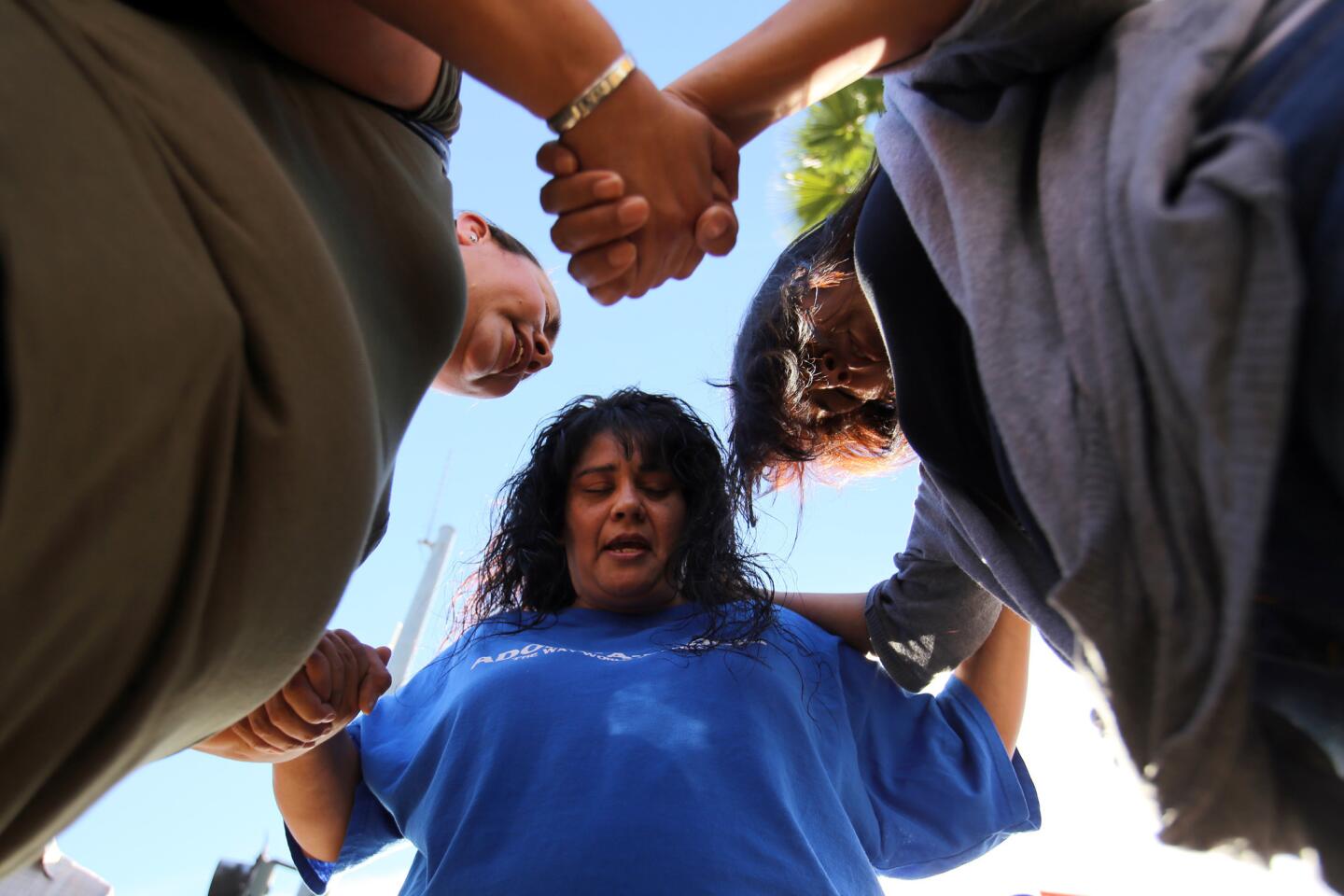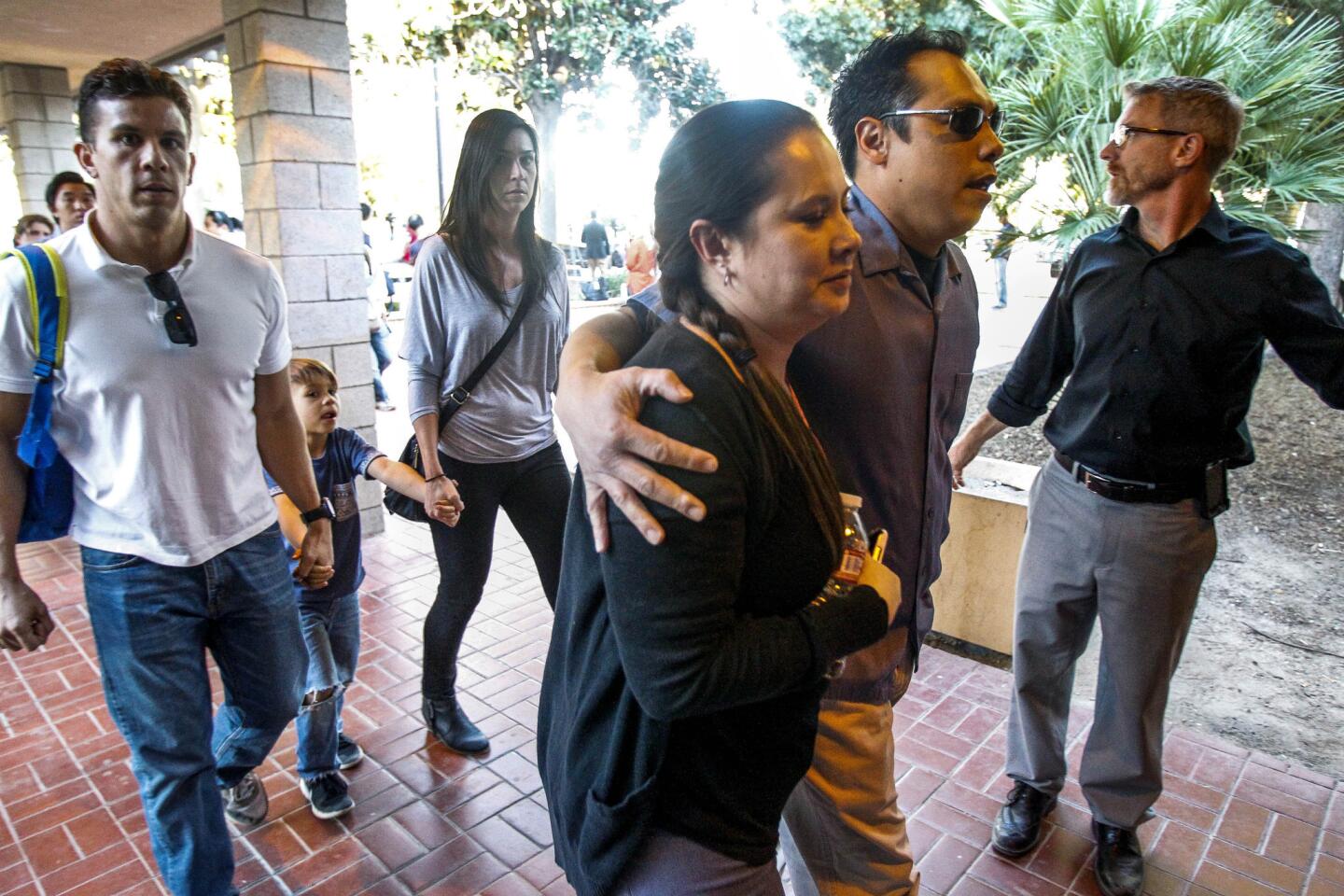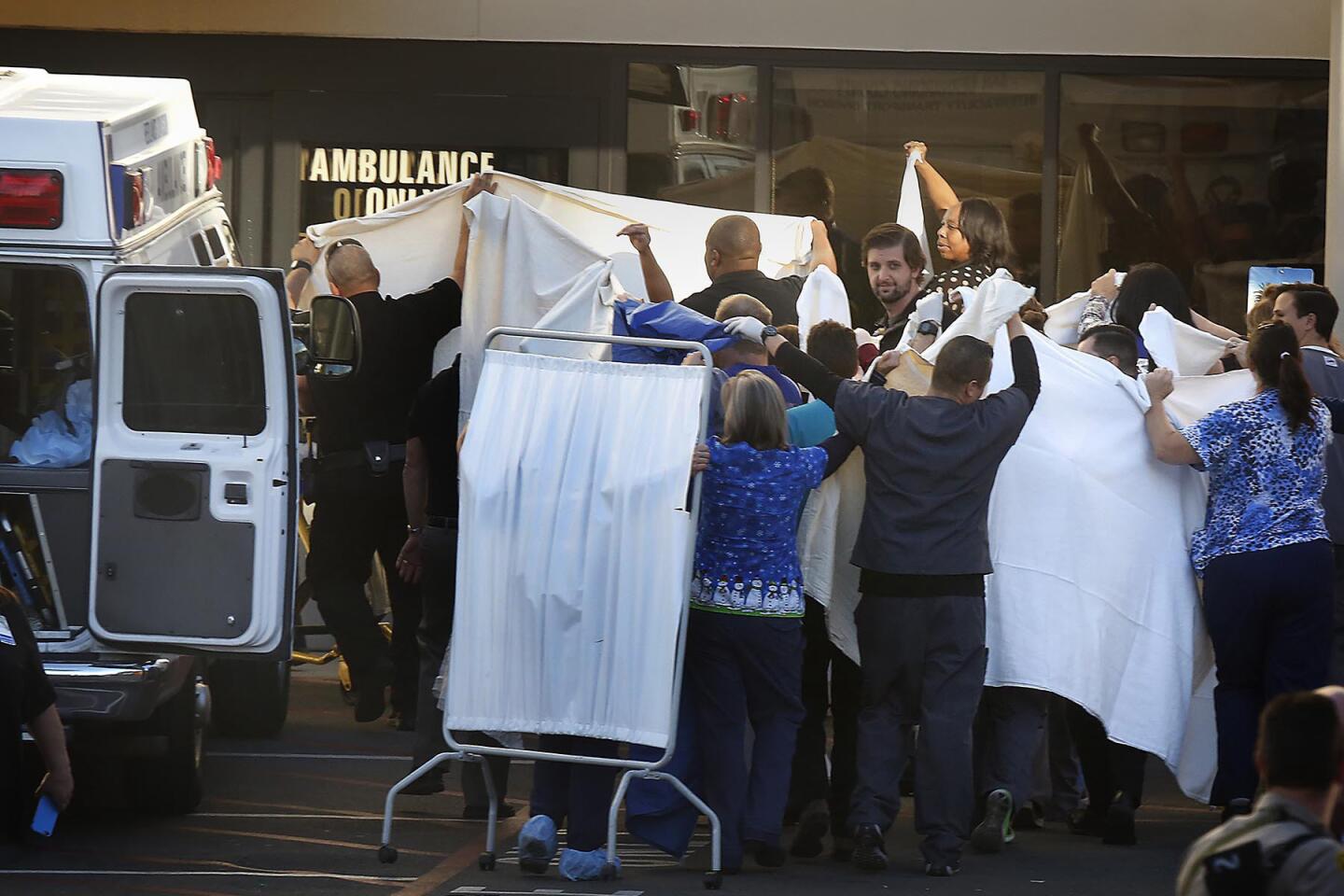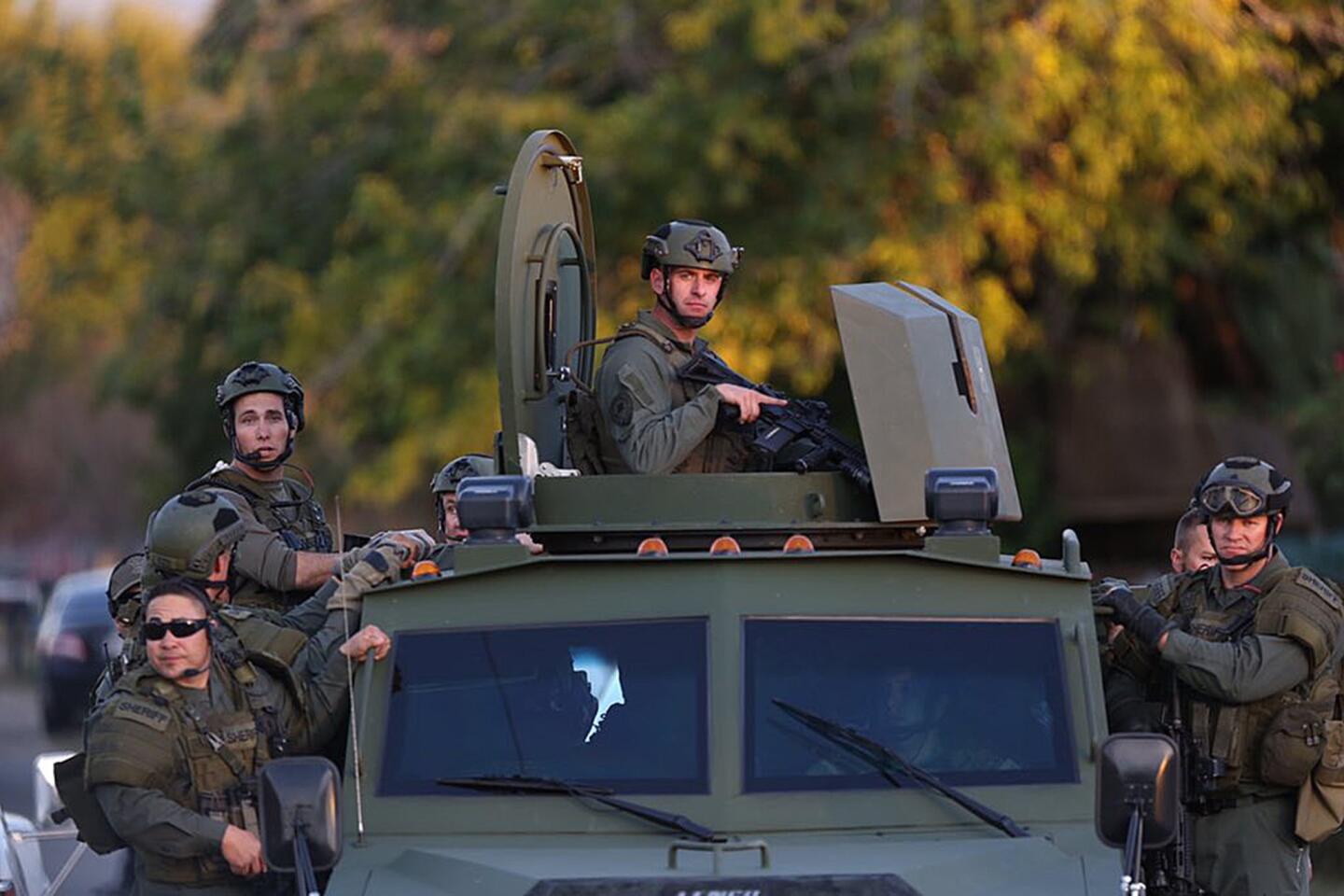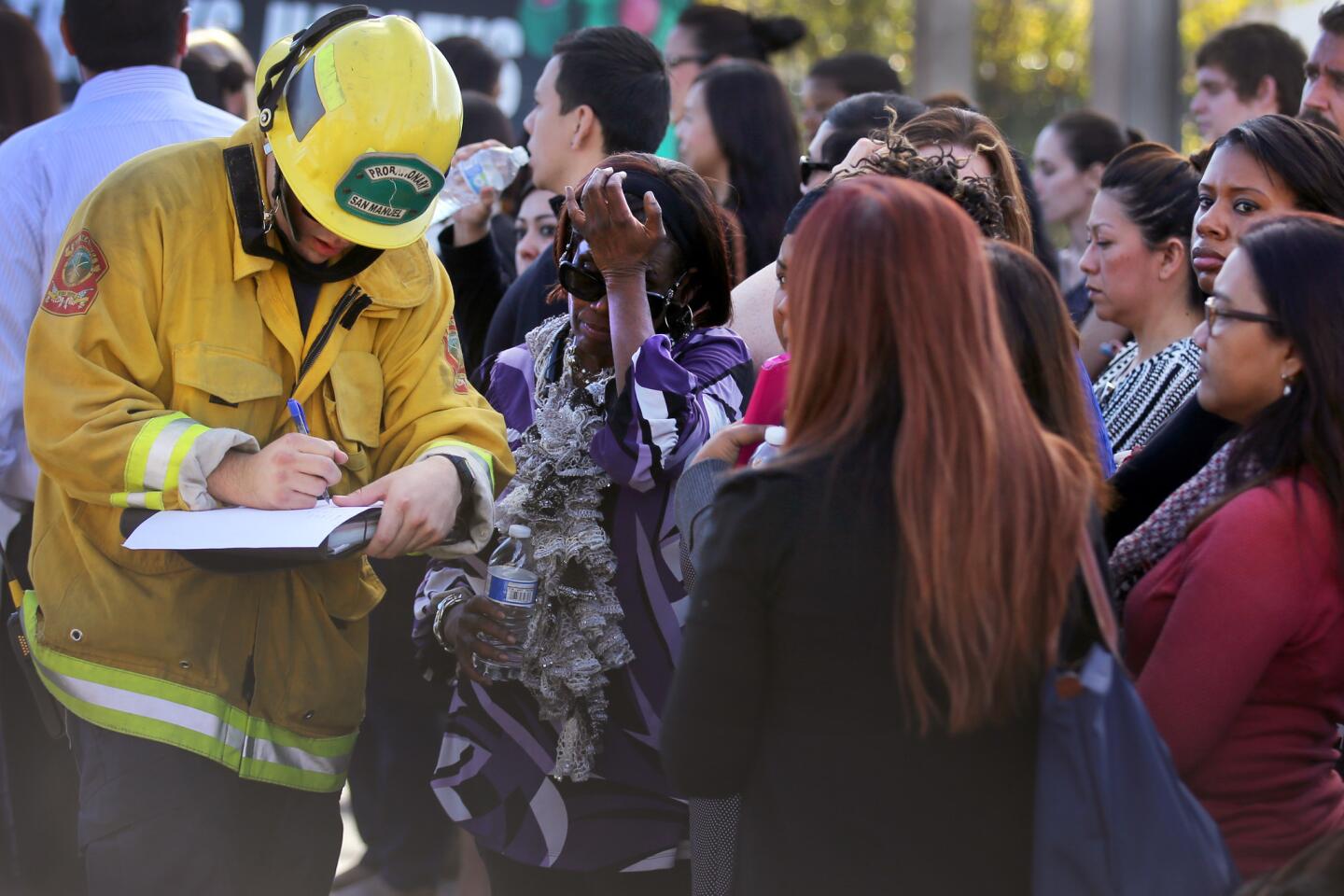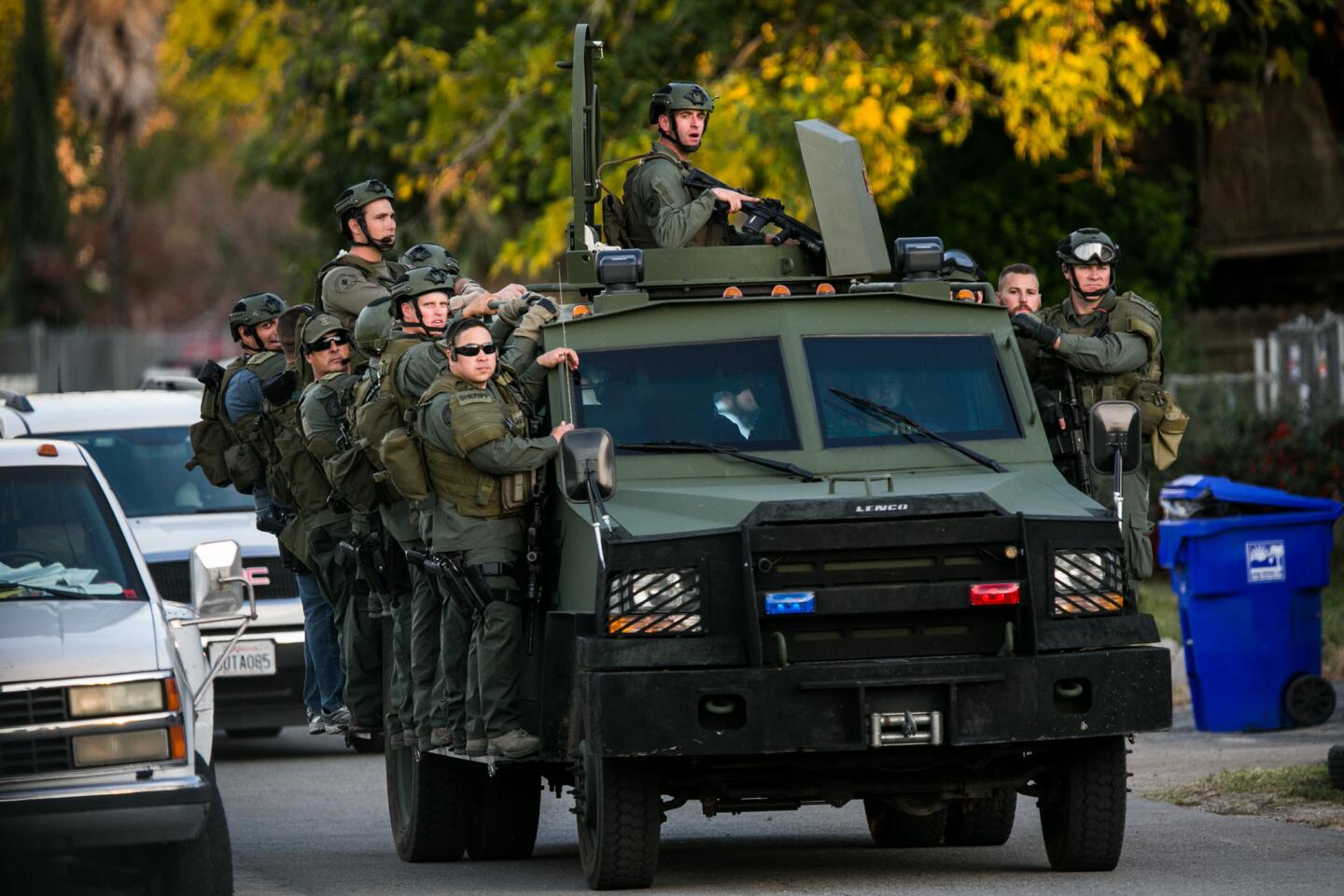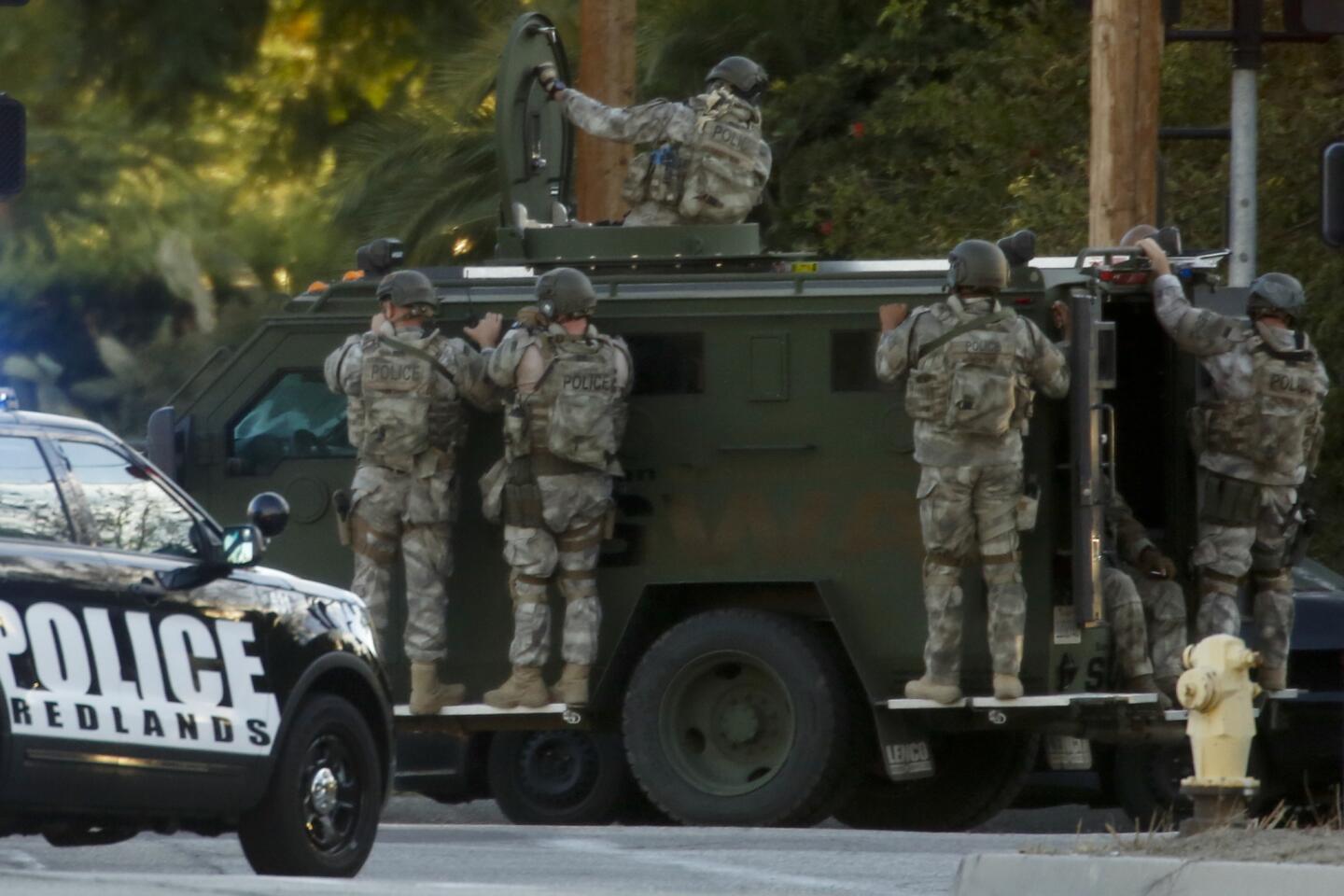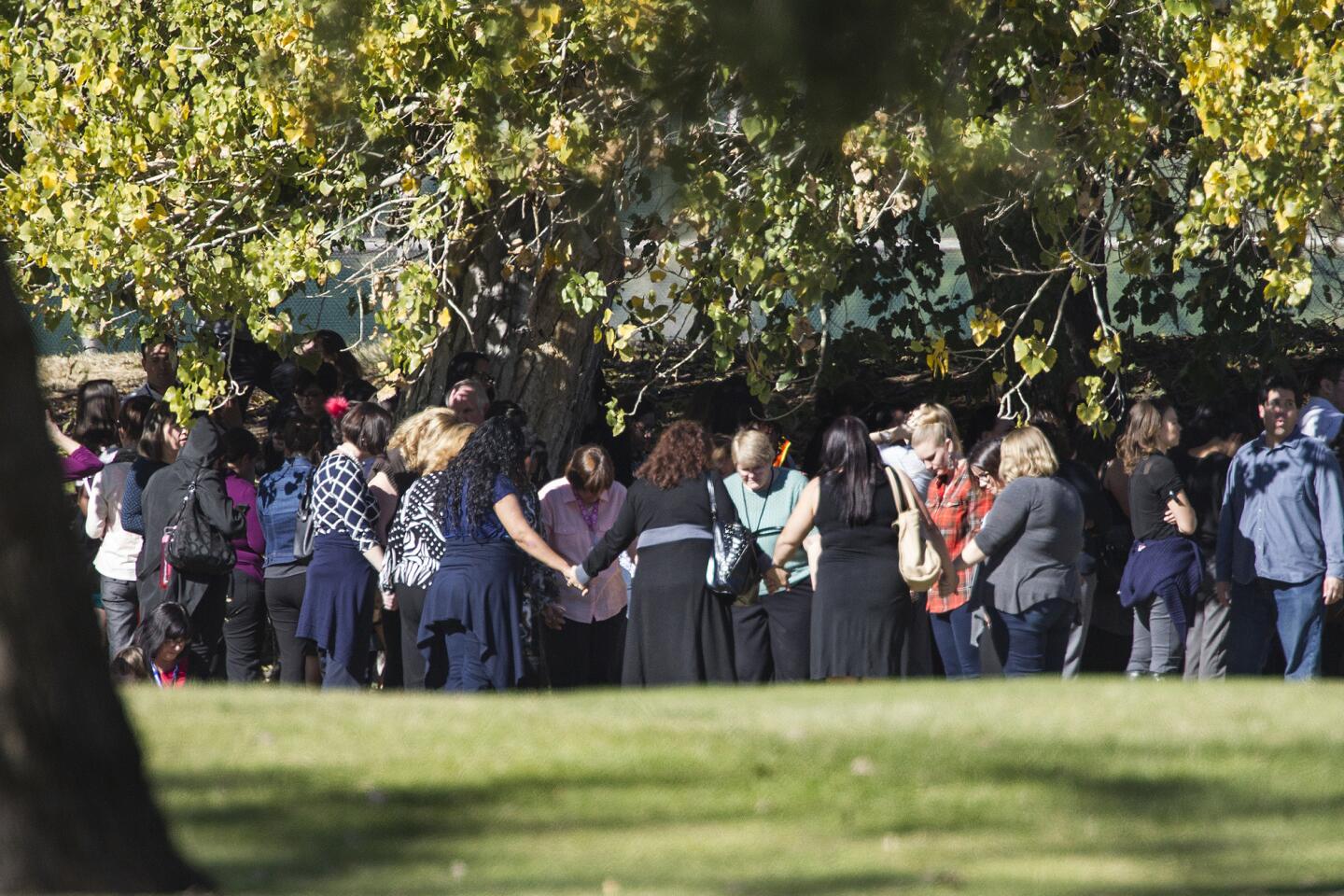San Bernardino attacker was ‘normal guy’ while practicing at shooting range
- Share via
One of the San Bernardino attackers practiced firing a military-style weapon at a Riverside County gun range, according to an employee who described him as a “normal guy.”
John Galletta, a firearms instructor at Riverside Magnum Range, said shooter Syed Rizwan Farook had practiced there before, but couldn’t comment on when or how frequently.
Galletta said Farook’s wife, Tashfeen Malik, had never been there.
As for Farook, a co-worker at the range described him as “a normal guy,” Galletta said.
The company has turned over surveillance footage and sign-in logs to the FBI, he said.
Galletta said Farook practiced with an AR-15 and that he brought his own weapon. It wasn’t clear if that is the only type of weapon he practiced with, Galletta said.
The FBI said Monday that the San Bernardino shooters had been radicalized “for quite some time,” but investigators were still trying to determine whether they had links to foreign terror organizations.
Officials also said Farook and Malik, had gone to gun ranges in the Los Angeles area in the days before Wednesday’s massacre, in which 14 people were killed and 21 were injured.
Federal investigators did not know how the couple had become radicalized, said David Bowdich, assistant director in charge of the FBI’s Los Angeles office.
“Remember, oftentimes it’s on the Internet,” he said.
John D’Angelo of the Bureau of Alcohol, Tobacco, Firearms and Explosives added that three of the guns recovered from the couple’s shootout with police after their attack and from the couple’s home were purchased by Farook between 2007 and 2012. The other two weapons were purchased by Farook’s friend, Enrique Marquez of Riverside.
Marquez entered a mental hospital after the attacks, according to two law enforcement sources.
Federal authorities interviewed Marquez over the weekend after discovering that he had given the assailants two semiautomatic weapons. A source said there was no indication at this time that Marquez had any knowledge of the plot.
On Sunday, the FBI seized items from Marquez’s home after having spent several hours there the day before, according to neighbors.
A law enforcement source said the weapons were purchased at least three years ago and that there is no paperwork of them being transferred to Farook.
Federal authorities continued to scour the backgrounds of Farook and Malik to determine what sparked their radical turn and whether they received any outside financial support to carry out the deadliest terrorist attack on U.S. soil since 9/11. The married couple died in the shootout with police hours after their rampage at the Inland Regional Center.
Bowdich called the investigation “massive.” About 400 interviews have been conducted with more expected, and about 320 pieces of evidence have been collected, some of which were transported to the agency’s explosive device center in Washington to be analyzed. He clarified Monday that 19 pipes -- not 12 as reported earlier -- that could be converted into bombs were removed from the shooters’ home.
In addition, a reconstruction team is attempting “to ultimately paint that picture of how everything transpired that day,” Bowdich said.
“Our job is to continue the investigation at breakneck speed as long as we need to do that,” he added.
Meanwhile, federal investigators are trying to determine if Farook was influenced Mohamed Abdullahi Hassan, a terrorism figure known as “Mujahid Miski,” who earlier this year sought to direct the attempted attack on a cartoon contest in Garland, Tex., a federal law enforcement official said Monday.
FBI officials have said that Farook had “some contact” with someone known to the FBI in this country and also reached out digitally to at least two members of foreign terror groups, including one in Somalia, said the official who was unauthorized to speak publicly.
The FBI has become increasingly “intrigued with” Hassan who became a recruiter for the Islamic State. The agency is trying to determine whether he and Farook were in any contact before last week’s attack.
The U.S. State Department said Monday that Hassan turned himself in to authorities in Somalia, where had been hiding.
In the days before the Garland, Tex., attack in May, one of the two radicalized assailants was in computer contact with Miski and was told that, “It was time for the brothers in the #US to do their part” following the Charlie Hebdo attacks in Paris.
But FBI agents apparently lost track of their digital conversation when they “went dark” and continued to communicate using encrypted devices.
U.S. Atty. Gen. Loretta Lynch said Sunday that investigators have gained the cooperation of foreign governments, including Pakistan, as part of the far-reaching probe of Farook and Malik, a Pakistani national. The interior minister of Pakistan, where Malik attended college and Farook’s parents were born, also announced the country had launched its own inquiry.
As the investigation unfolded, friends and family of the shooters came forward to offer snapshots that may point to what motivated Wednesday’s attack, including Farook’s apparent fixation on Israel and Malik’s devotion to a fundamentalist strain of Islam.
Lynch, speaking on NBC’s “Meet the Press,” cautioned against drawing conclusions about the couple and said the probe was a “marathon” effort to chart all aspects of their lives.
“We are trying to learn everything we can about both of these individuals,” Lynch said. “We are trying to run everything to ground.”
Federal officials have said the couple’s plot appeared to be inspired, but not directed, by foreign terrorist organizations. President Obama said in a Sunday evening address that no evidence pointed to the two being part of a “broader conspiracy here at home.”
Describing Malik as the “wild card” in the plot, the chairman of the House Homeland Security Committee, Rep. Michael McCaul (R-Texas), said investigators were looking into her activities in Pakistan and Saudi Arabia.
Malik, 29, was born to a politically influential family in Pakistan’s southern Punjab province, moved to Saudi Arabia as a child and returned to Pakistan to begin studying pharmacology in 2007.
Two classmates of Malik at Bahauddin Zakariya University said that while she was enrolled at the college, she also studied at Al Huda, a chain of religious institutes that promote a fundamentalist strain of Islam.
“She used to go to attend sessions in Al Huda almost every day,” one of Malik’s former classmates told the Los Angeles Times, speaking on condition that she not be identified.
A Pakistani security analyst, Dr. Ayesha Siddiqa, said Al Huda teaches women “fundamentalist” ideas, though it does not necessarily promote a jihadist agenda. Most of the women who attend Al Huda institutes wear a veil and usually come from affluent families like Malik’s, Siddiqa and other experts said.
A family member in Pakistan told The Times in an interview that Malik became deeply religious during college and began posting extremist messages on Facebook after arriving in the United States.
In 2014, she came to the United States on a K-1 visa, also called a fiancee visa, with Farook, who worked as an inspector with San Bernardino County.
The limited salary of a county employee has aroused suspicion that the cache of weapons found in the couple’s Redlands home -- including pipe bombs and ammunition -- may have been purchased with funds from a foreign source, McCaul said.
“I believe on his salary, he was not able to buy this on his own,” McCaul said on “Fox News Sunday.”
Farook’s father told the Italian newspaper La Stampa that his son agreed with the ideology of Islamic State leaders and was “obsessed” with Israel.
But a local activist, speaking alongside one of the family’s attorneys, later backtracked and said the elder Farook did not recall the comments he made to the publication.
Hussam Ayloush, executive director of the Council on American-Islamic Relations in the L.A. area, said the father, like the rest of the family, is “dealing with a lot of stress.”
“He’s on medication,” he said. “He doesn’t recall saying that.”
The younger Farook, who grew up in Riverside and has family spread across the Inland Empire, met Malik on a dating website. The couple were married last year in Islam’s holy city of Mecca in Saudi Arabia, and Saudi officials confirmed that Farook spent nine days in the kingdom in the summer of 2014. In May, the couple’s daughter was born, according to records.
This outwardly normal life masked the couple’s seeming march down the path of radical terrorism.
Farook and Malik had amassed an arsenal of 2,000 9-millimeter rounds, 2,500 .223-caliber rifle rounds and “hundreds of tools” that could have been used to make explosive devices, authorities said.
The couple fired at least 65 shots when they stormed a holiday party at the Inland Regional Center, where about 80 of Farook’s co-workers at the San Bernardino Department of Public Health had gathered. Twelve of the 14 who died and 18 of the 21 injured were county employees, police said.
Hours later, the couple exchanged gunfire with police on San Bernardino streets, in a battle that launched bullets into homes and that terrified residents.
Authorities are also fielding numerous tips since the attack.
Over the weekend, the Los Angeles Police Department got a tip that several weeks ago, a man matching Farook’s description and another man tried to get into a high-rise building in downtown L.A., according to a law enforcement source. Both the LAPD and FBI are investigating, said the source, who stressed such reports are fairly common and they have no evidence Farook was the man.
Times staff writer Joseph Serna, Veronica Rocha, Matt Hamilton and Corina Knoll contributed to this report.
ALSO:
President Obama seeks to reassure Americans fearful of terrorism
They met online, built a life in San Bernardino — and silently planned a massacre
Timeline: How the rampage unfolded
More to Read
Sign up for Essential California
The most important California stories and recommendations in your inbox every morning.
You may occasionally receive promotional content from the Los Angeles Times.
